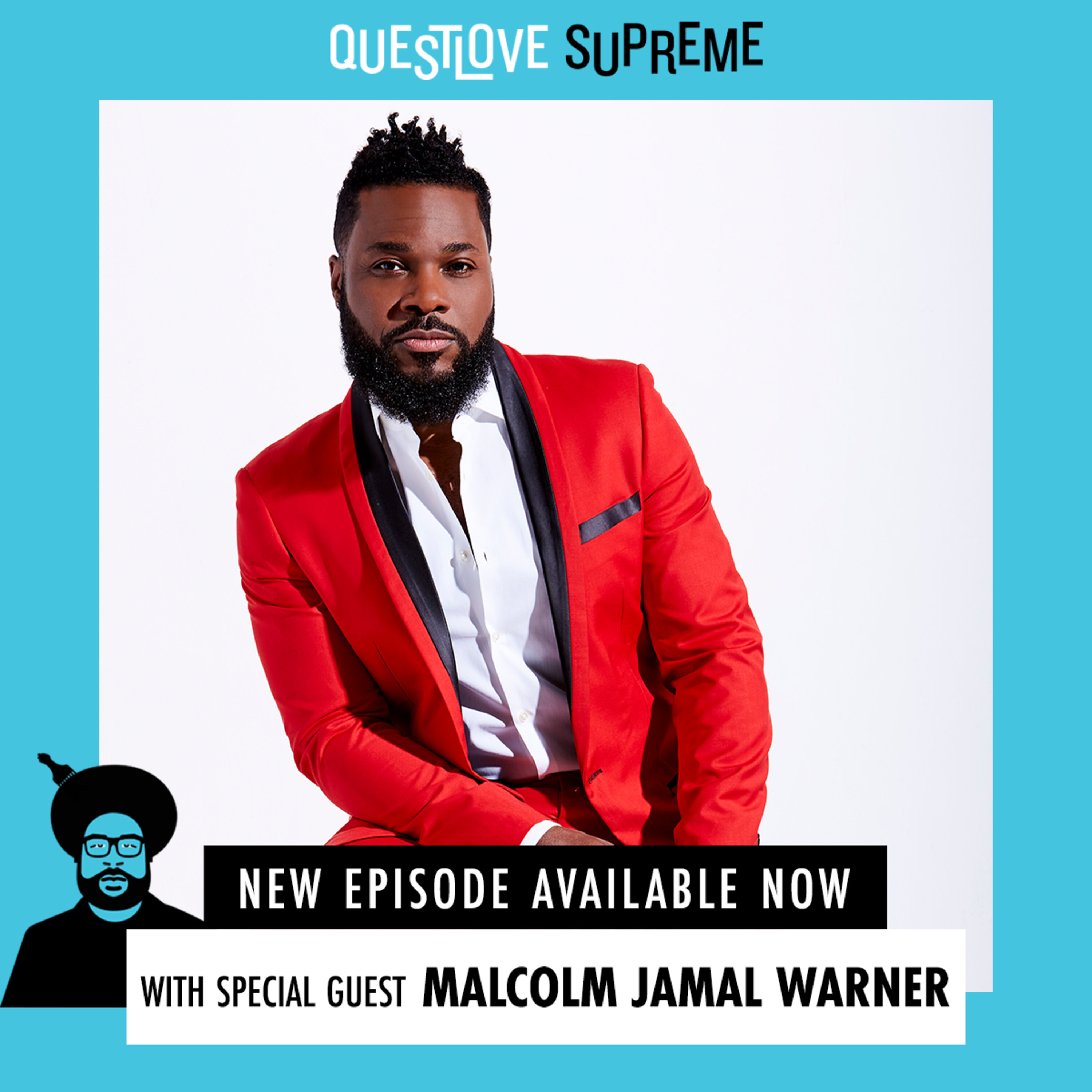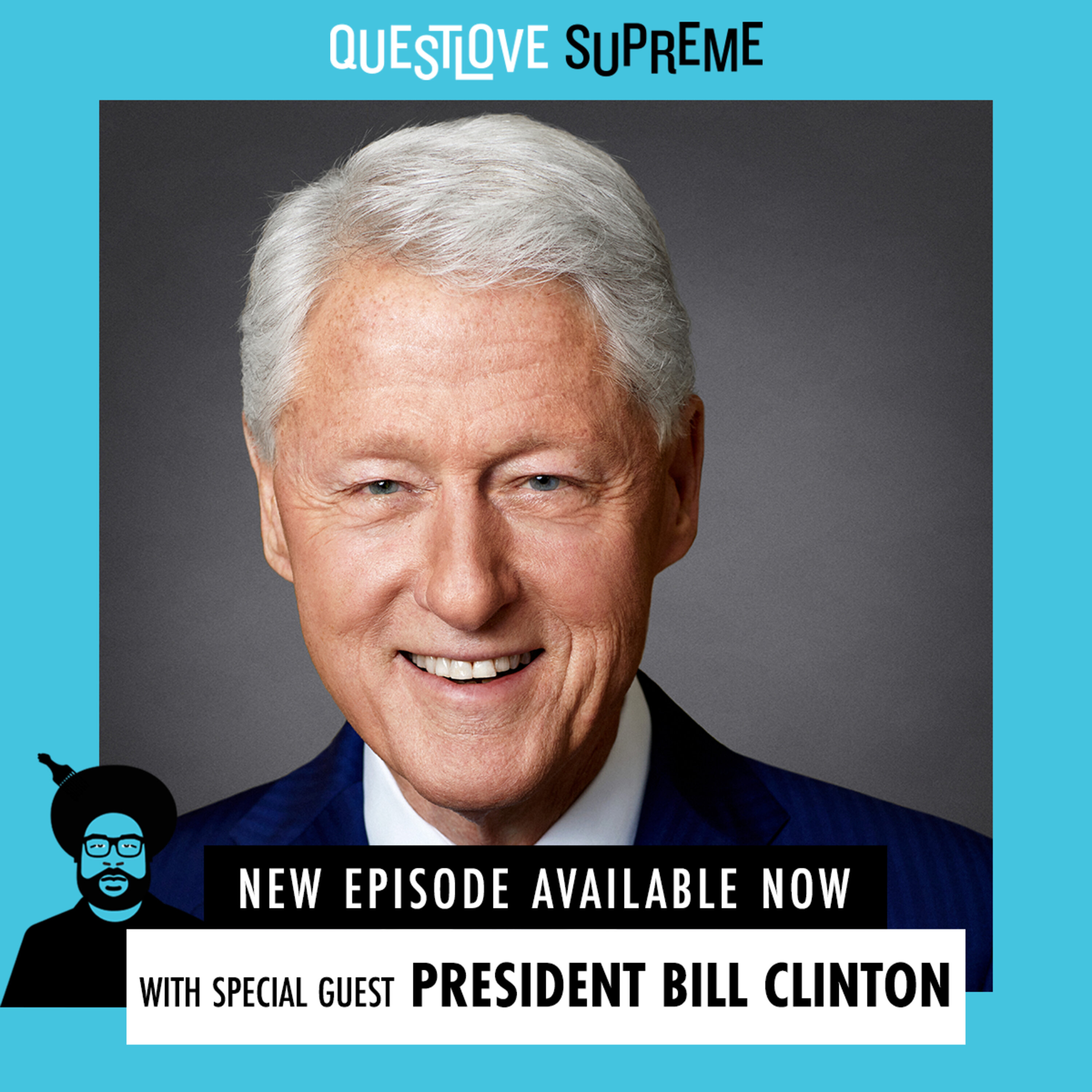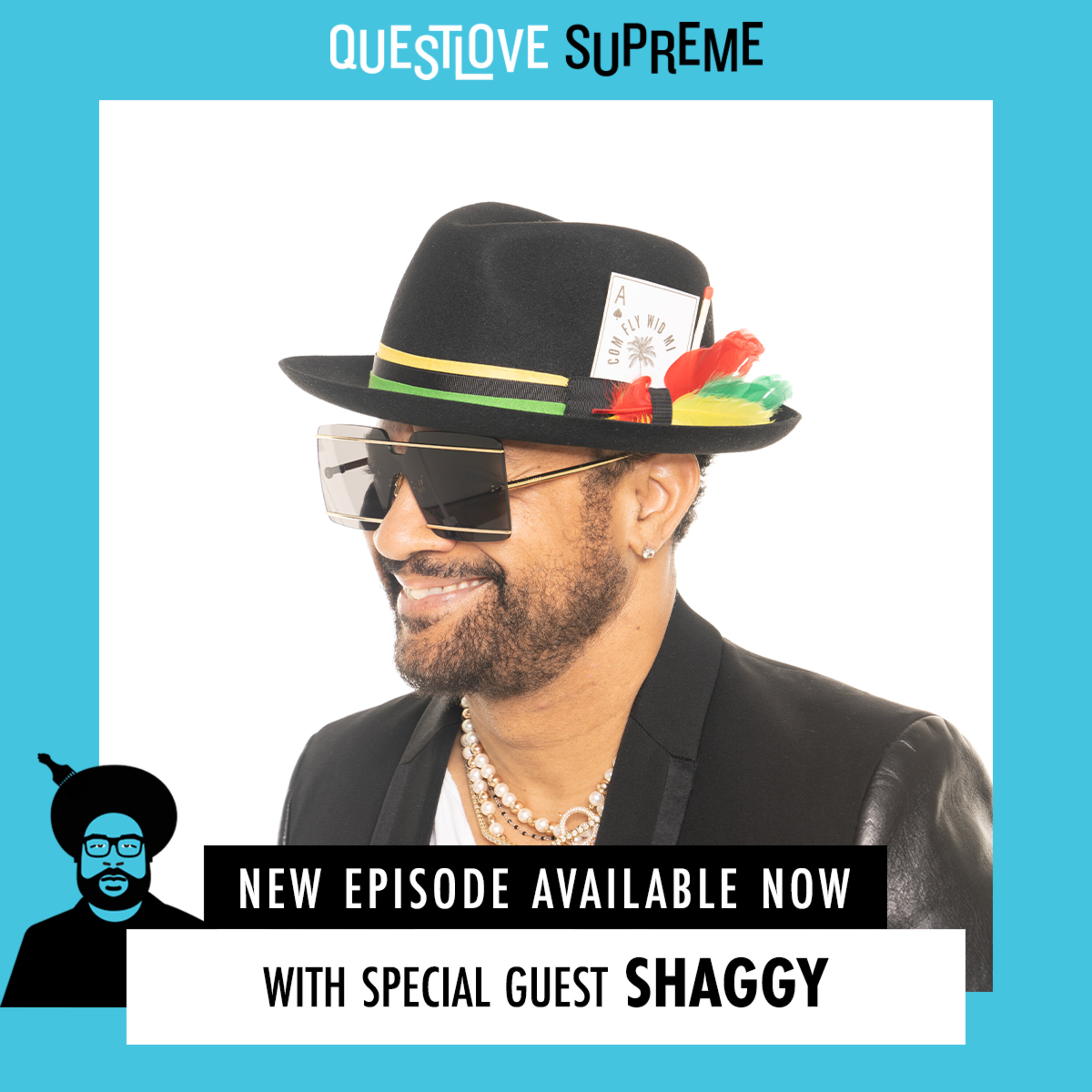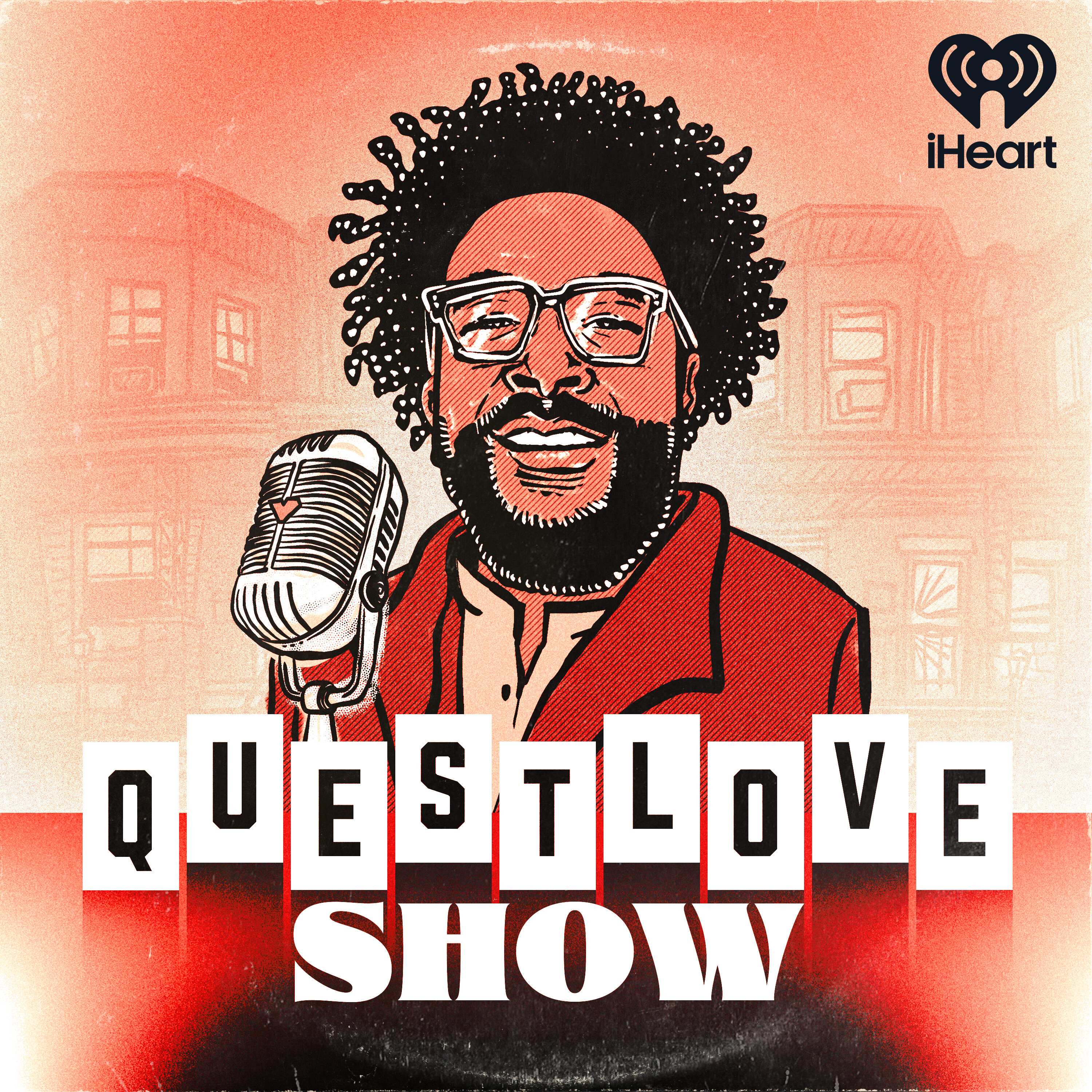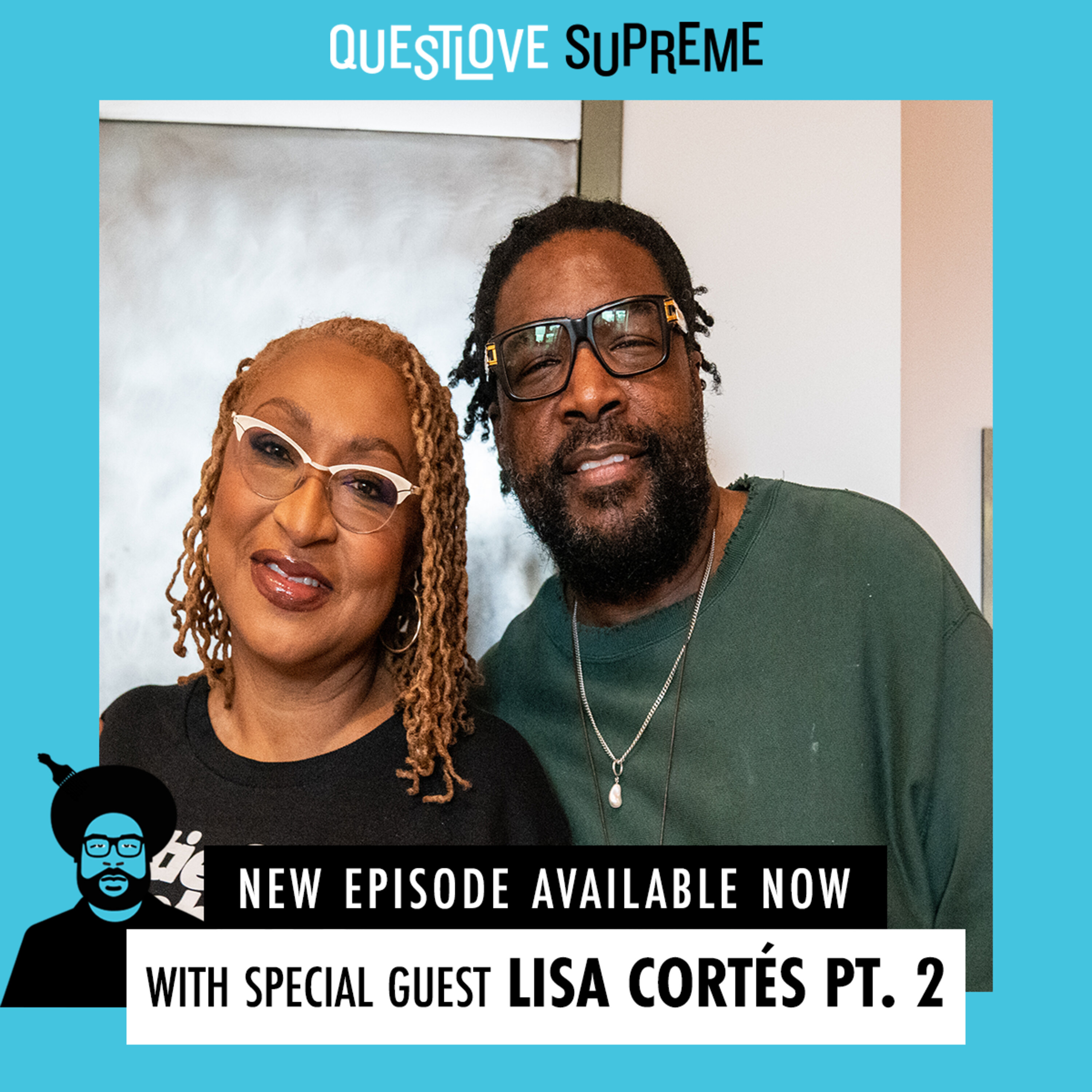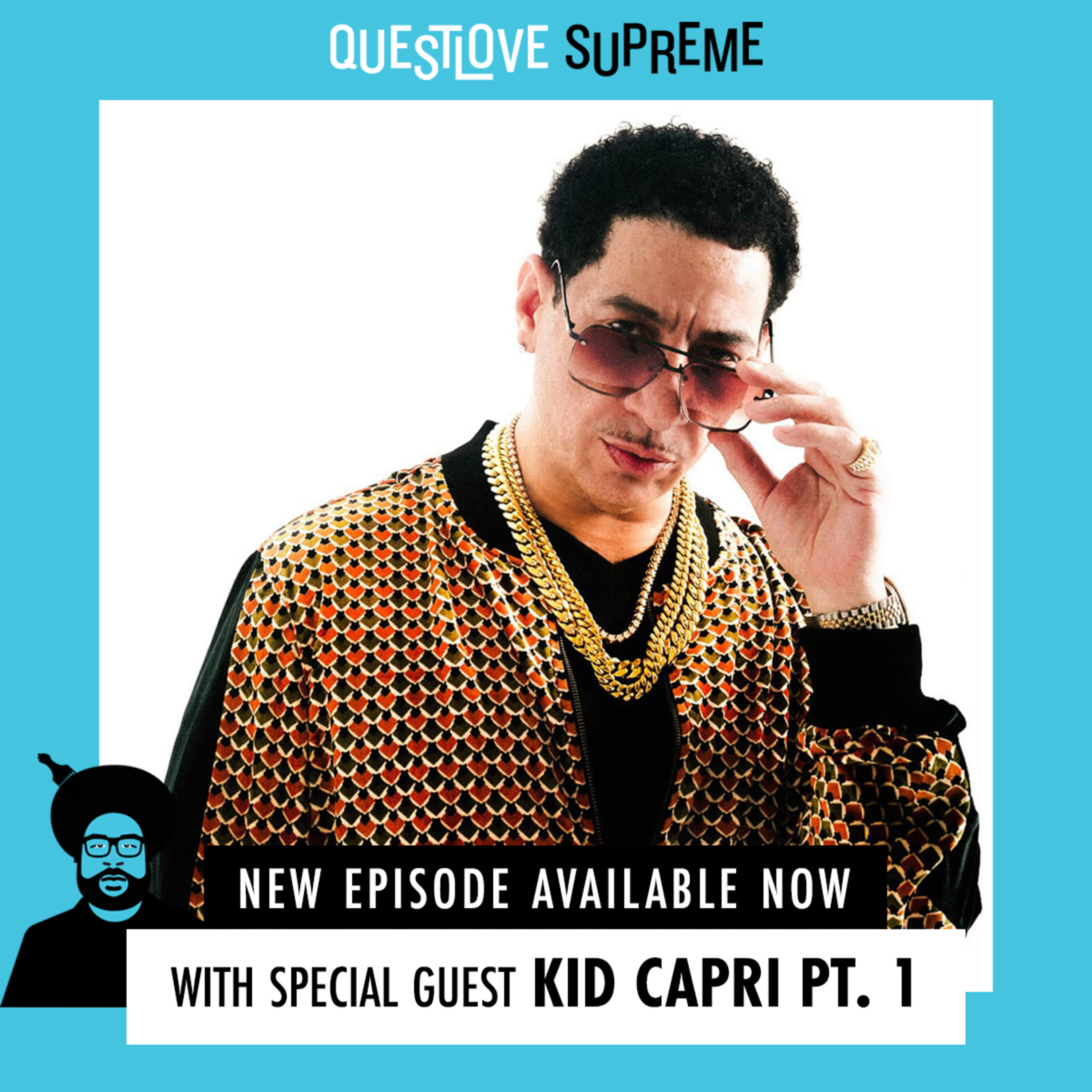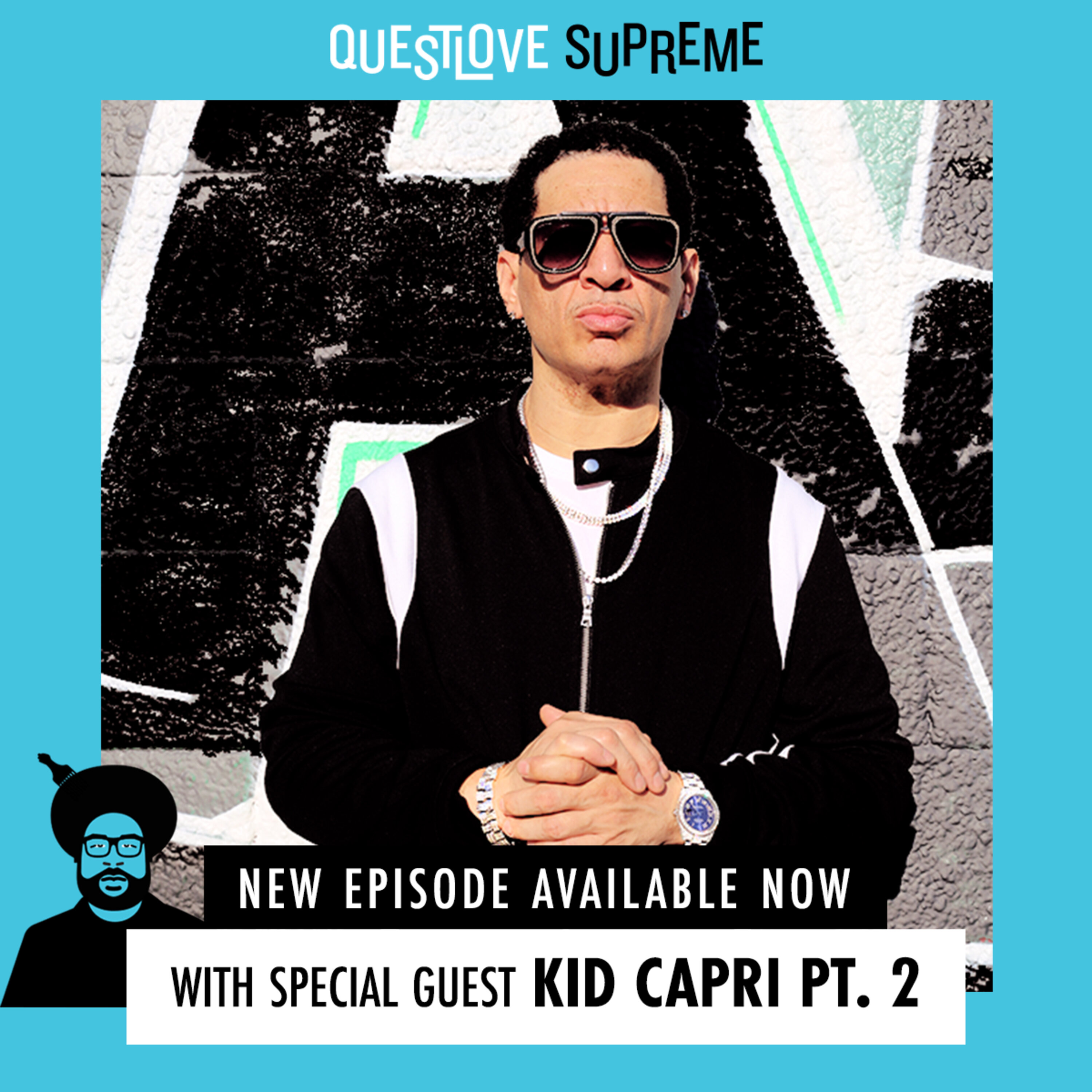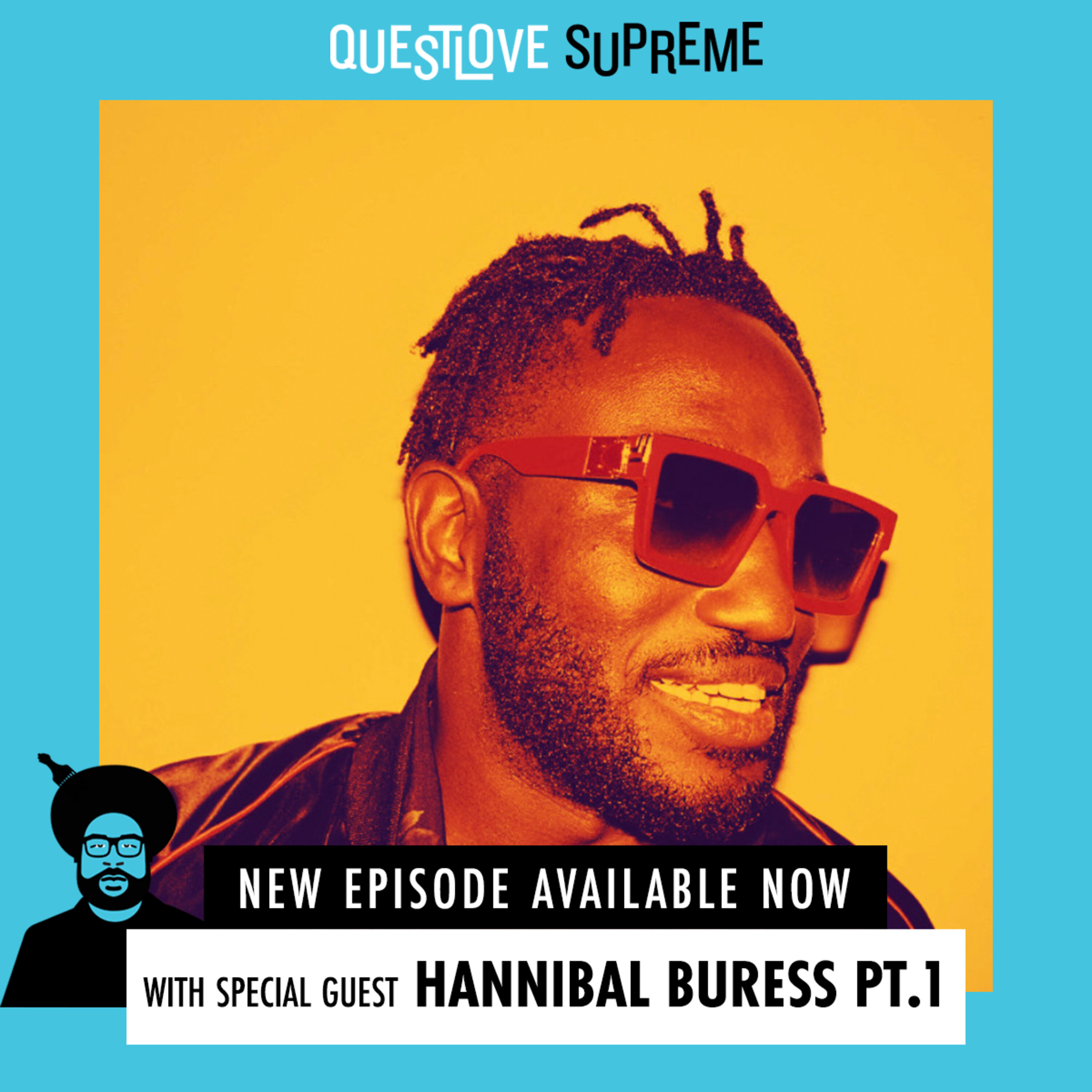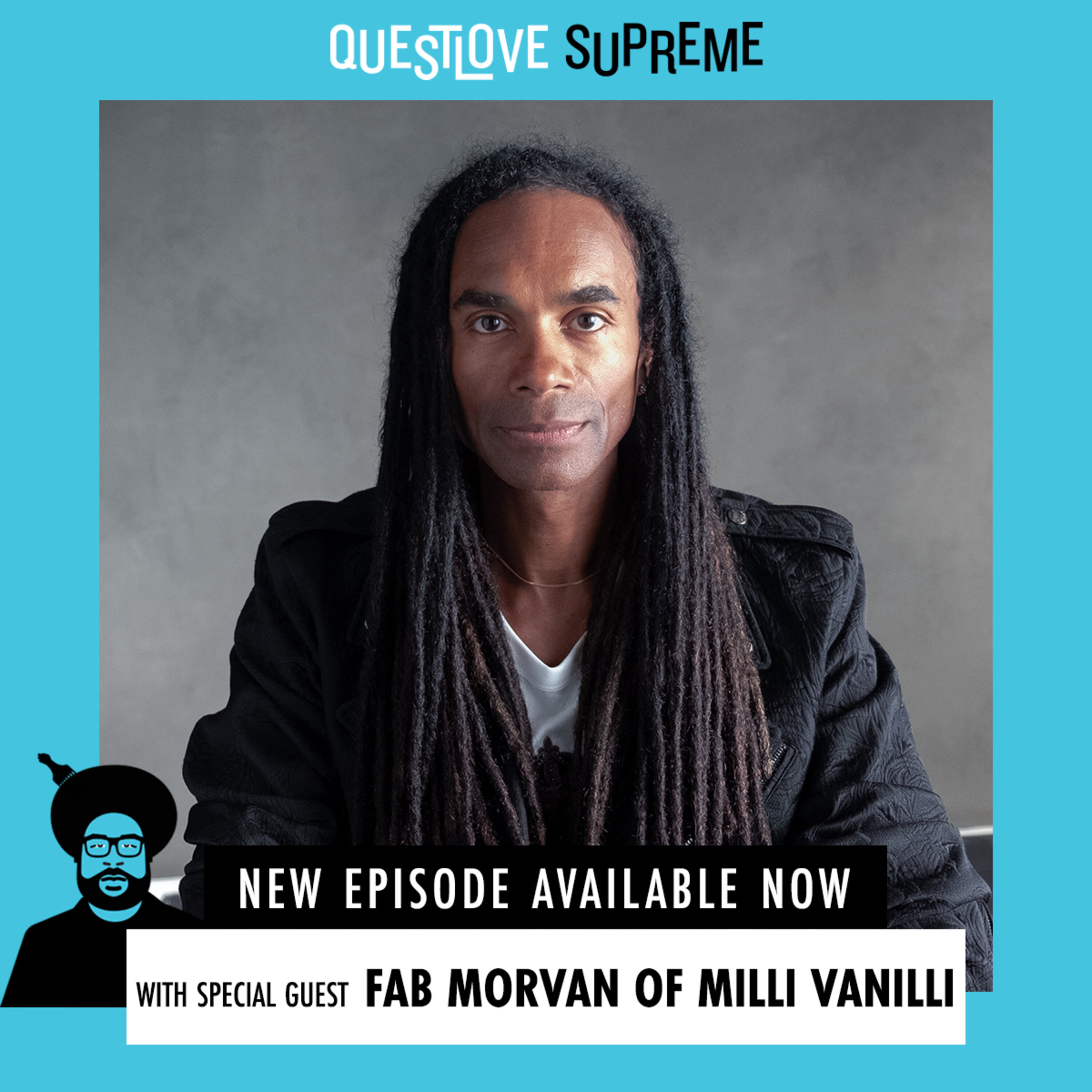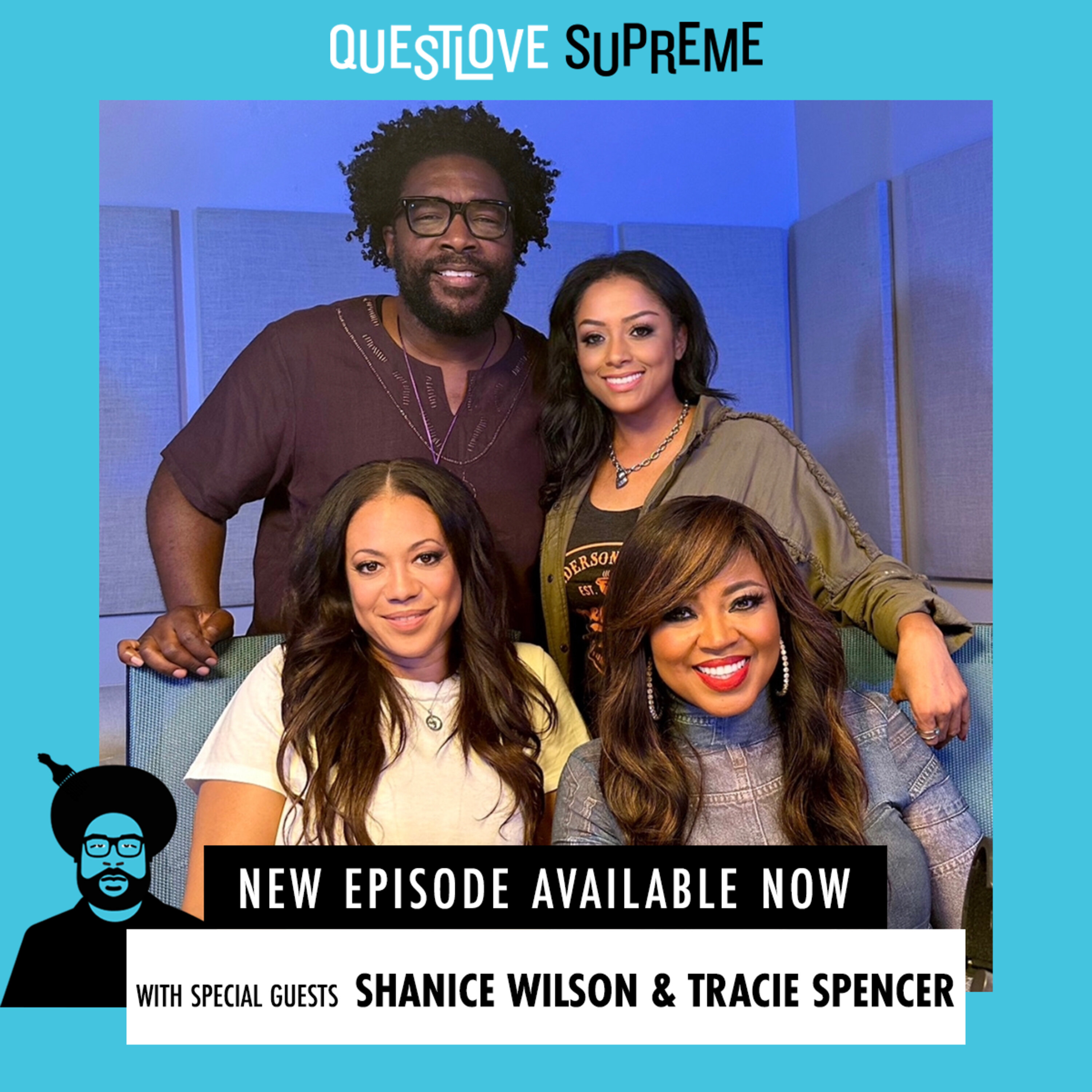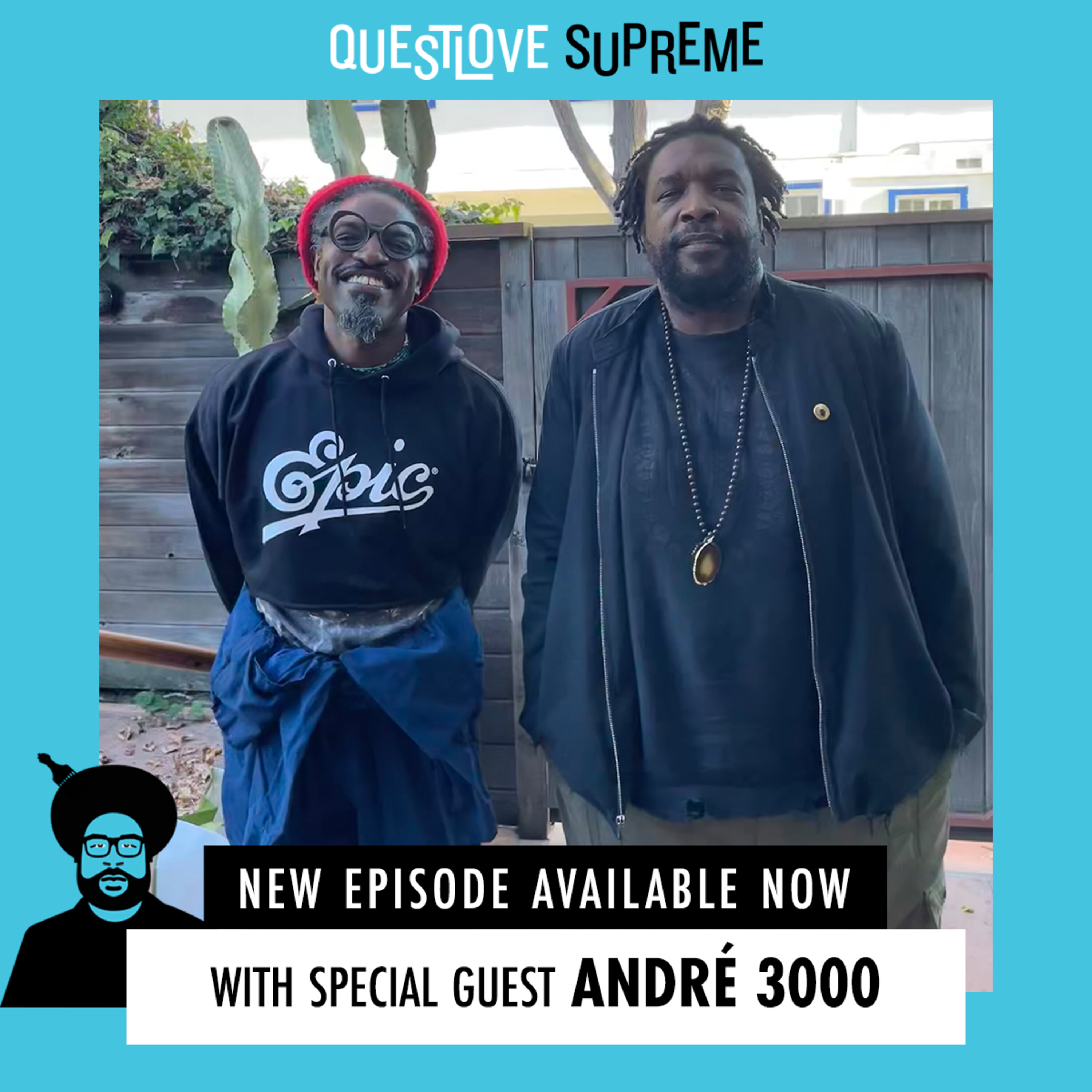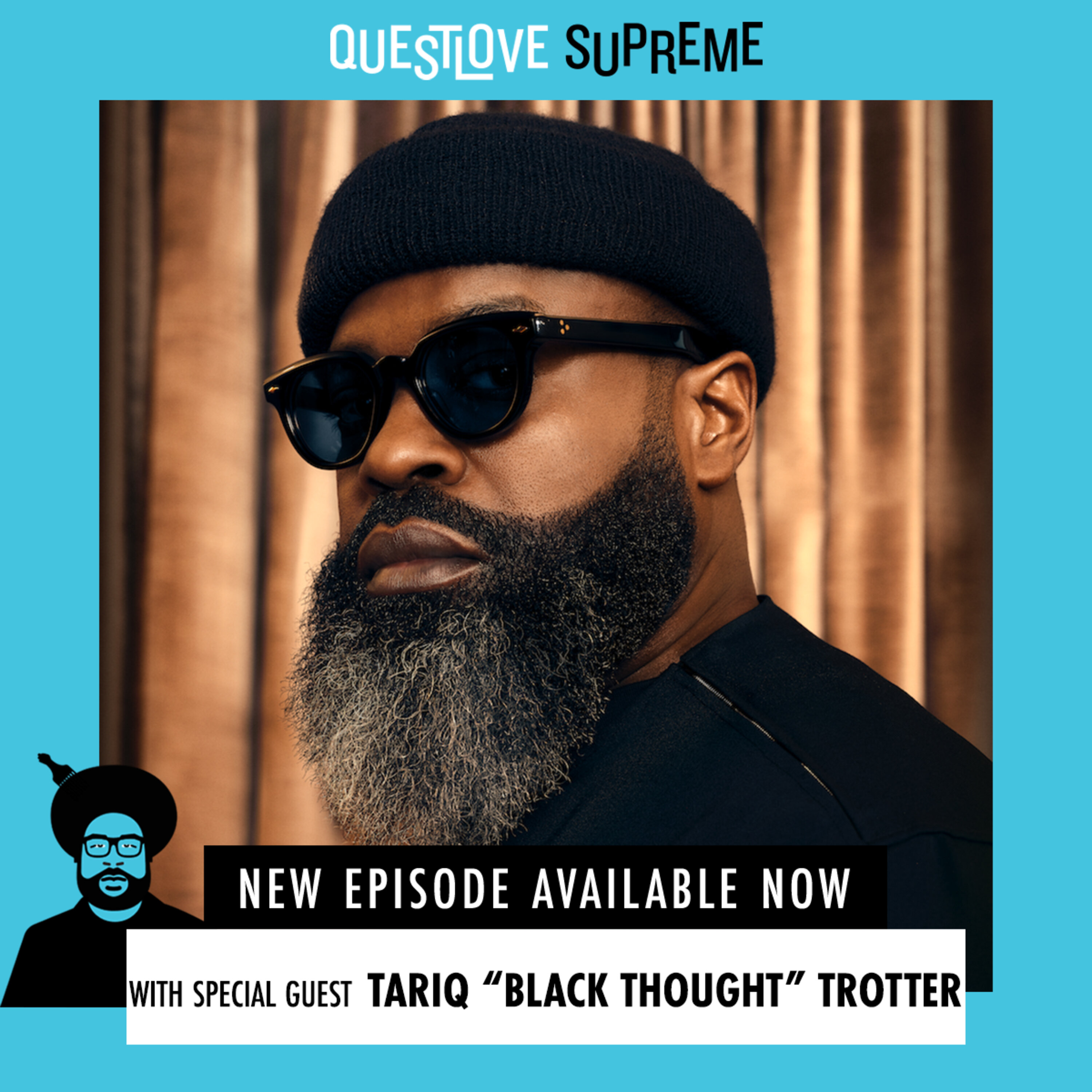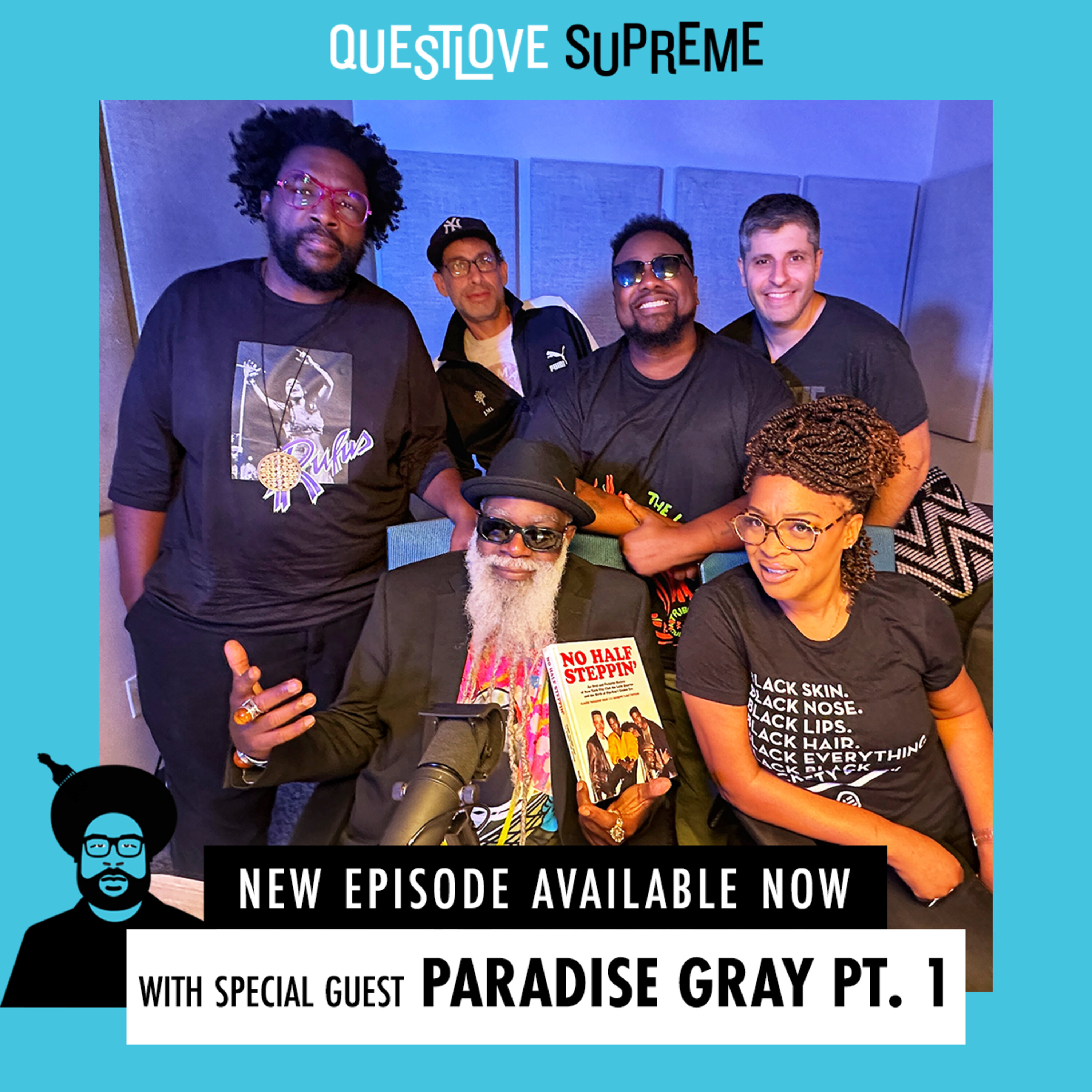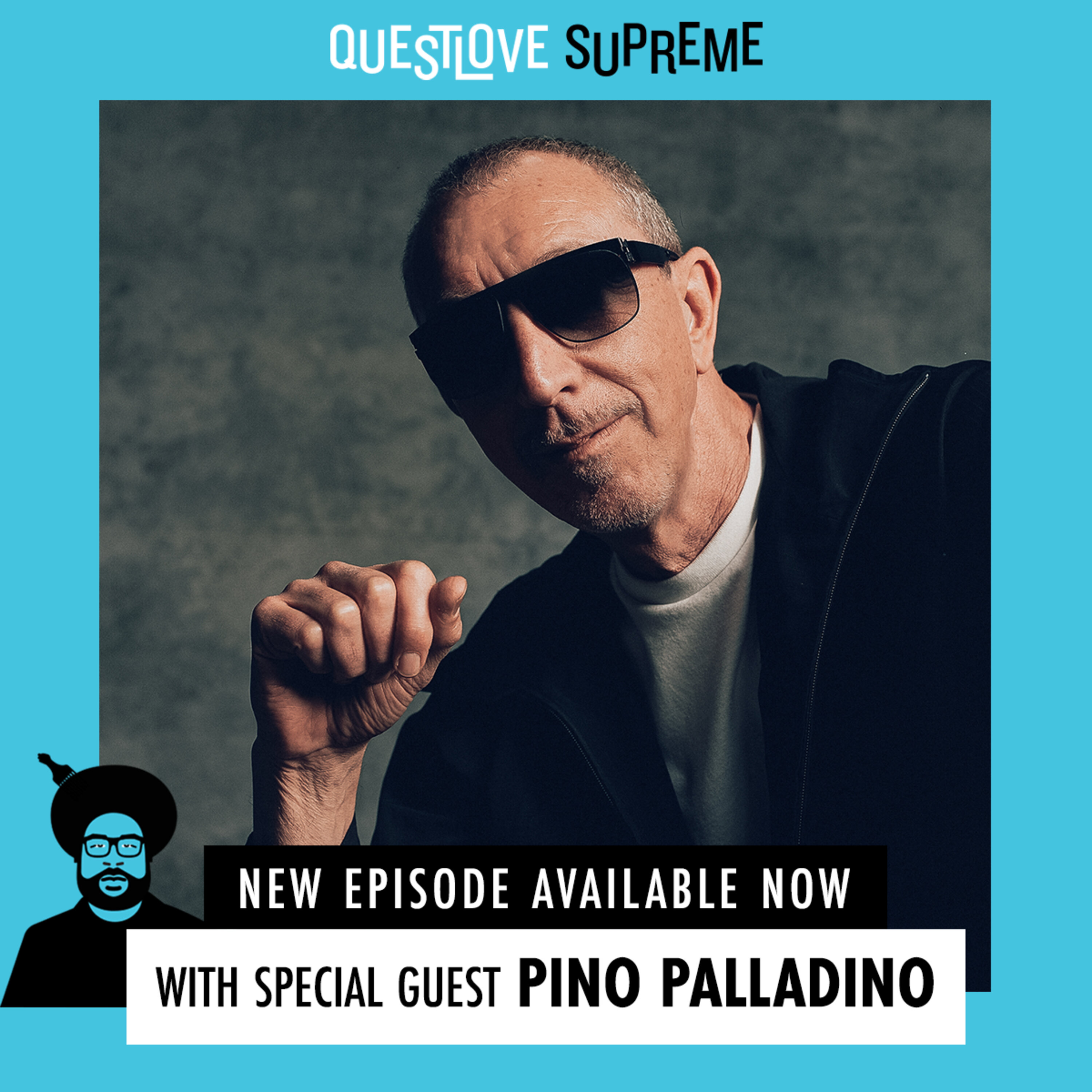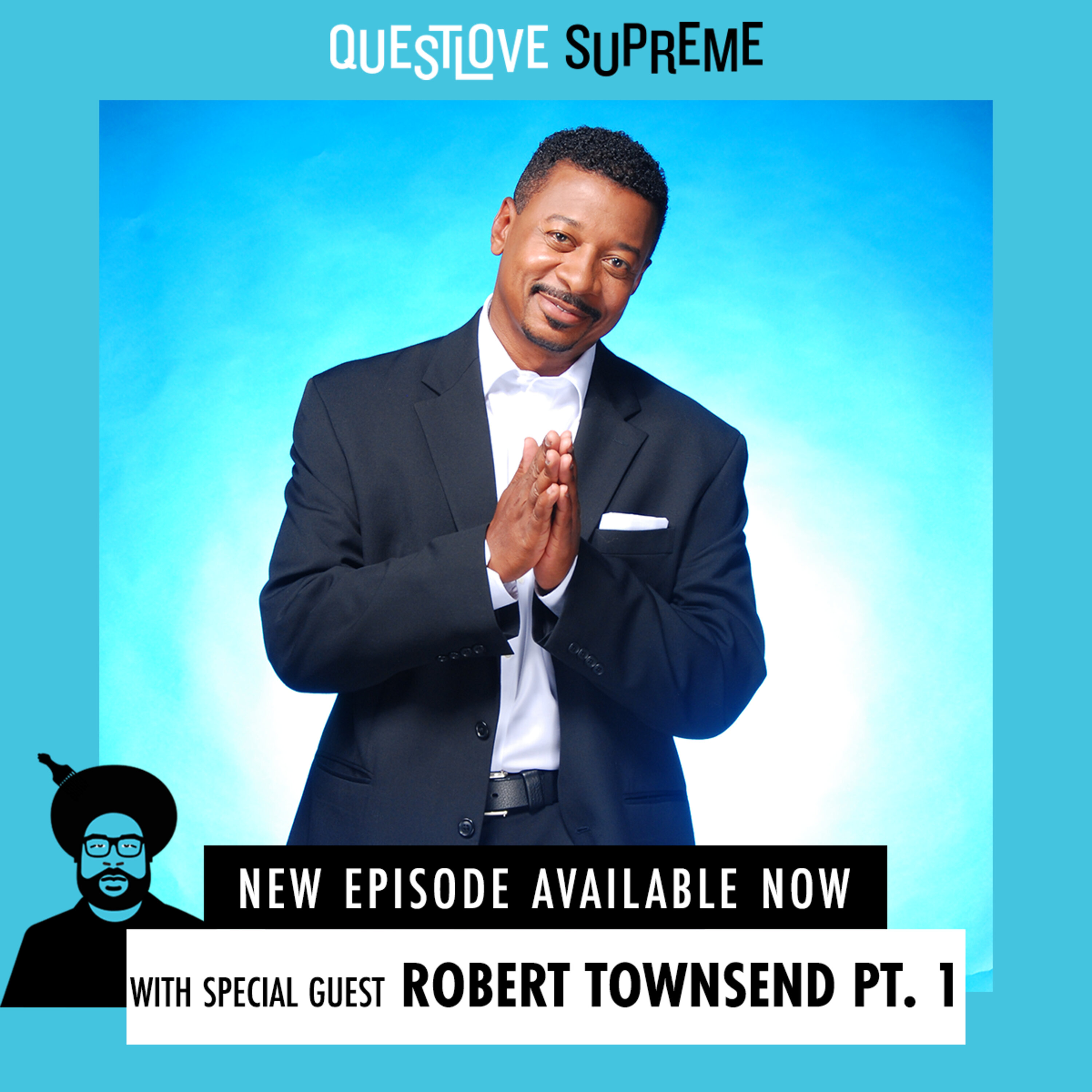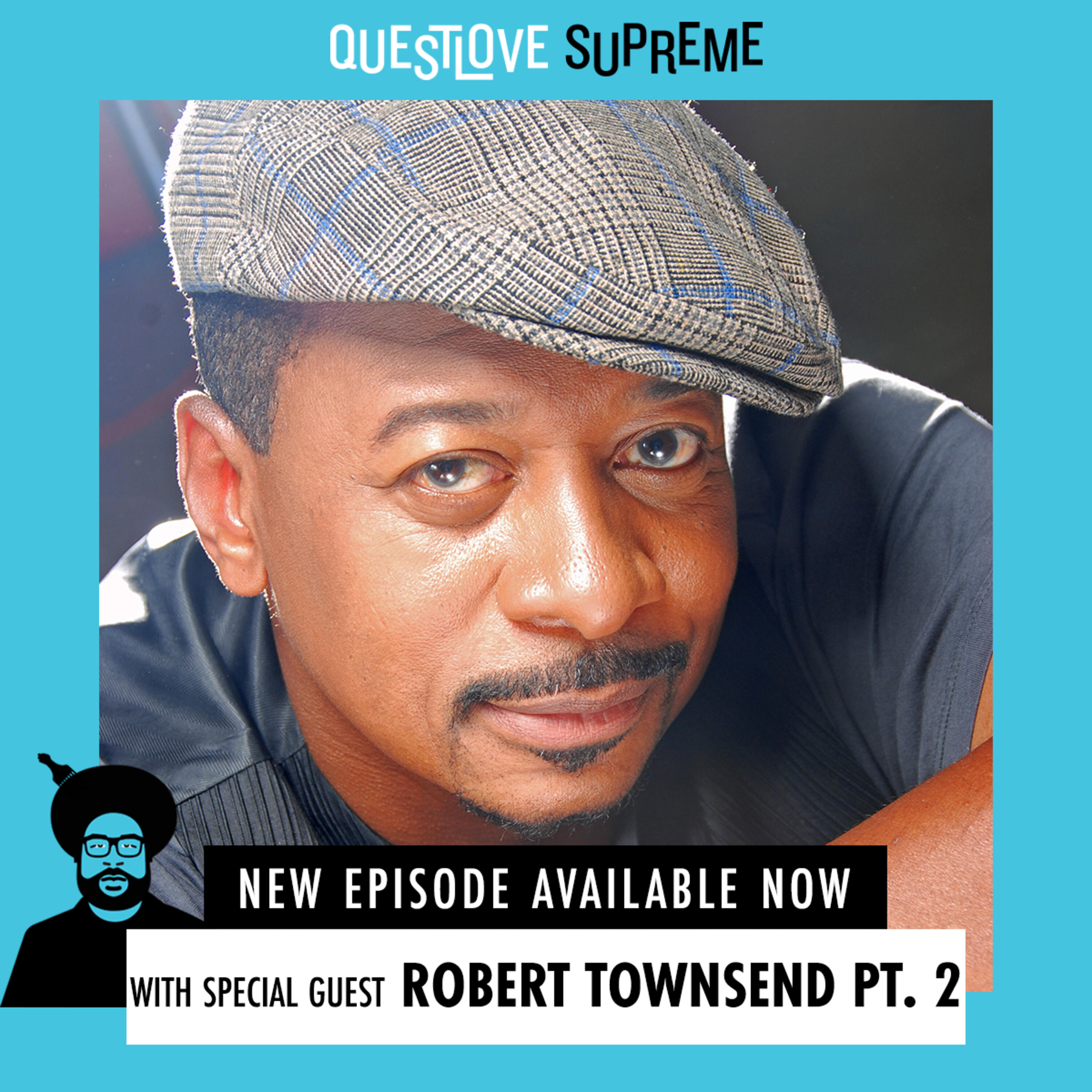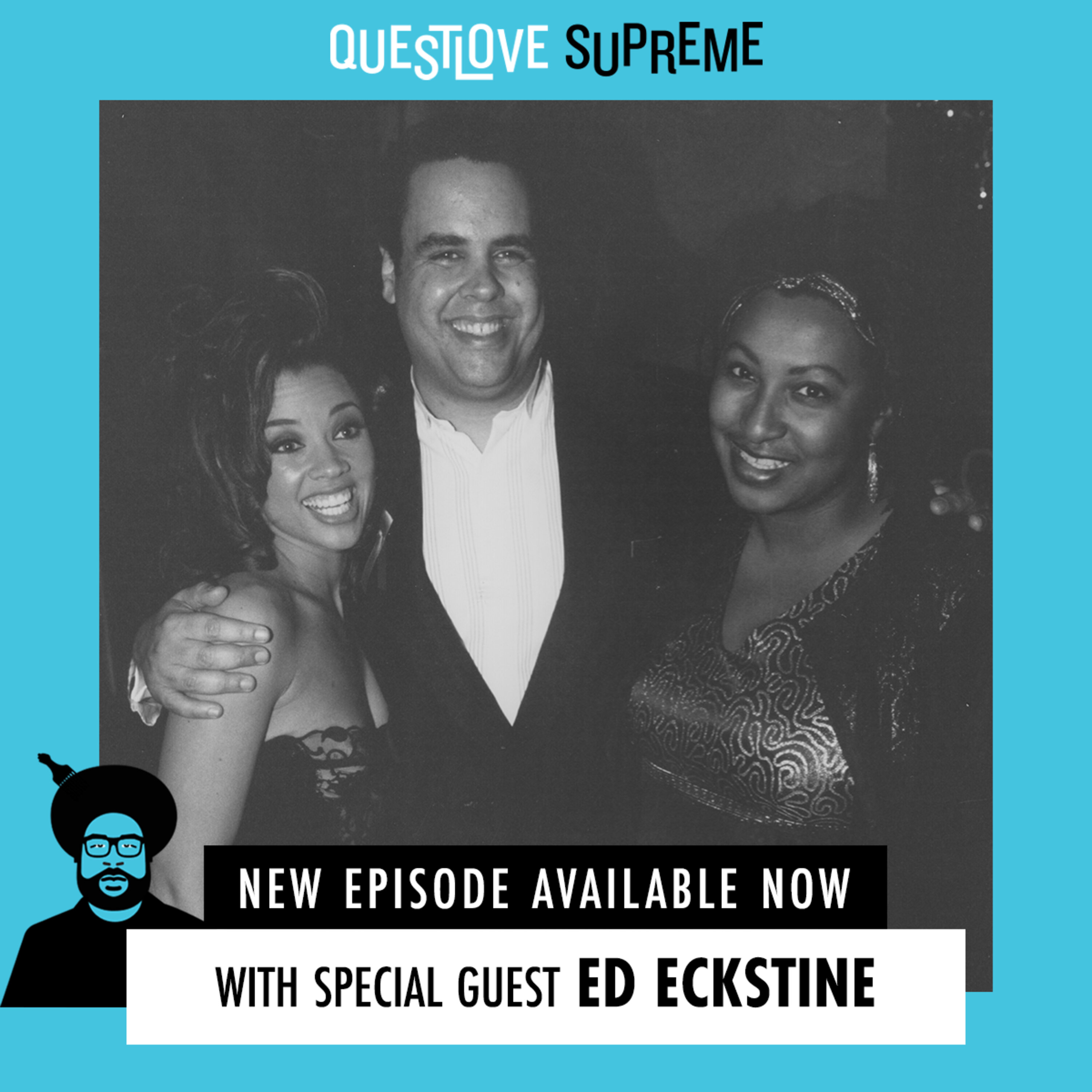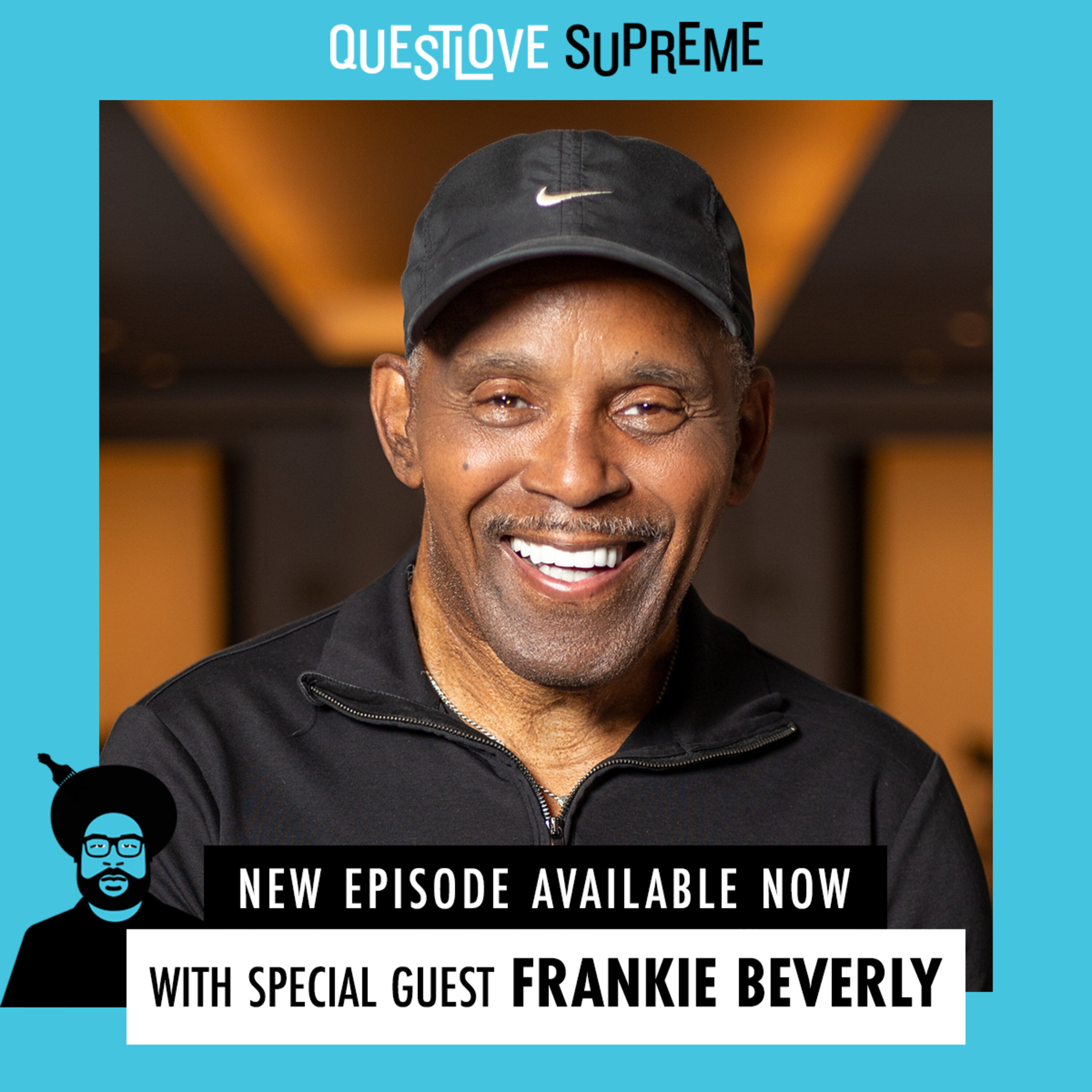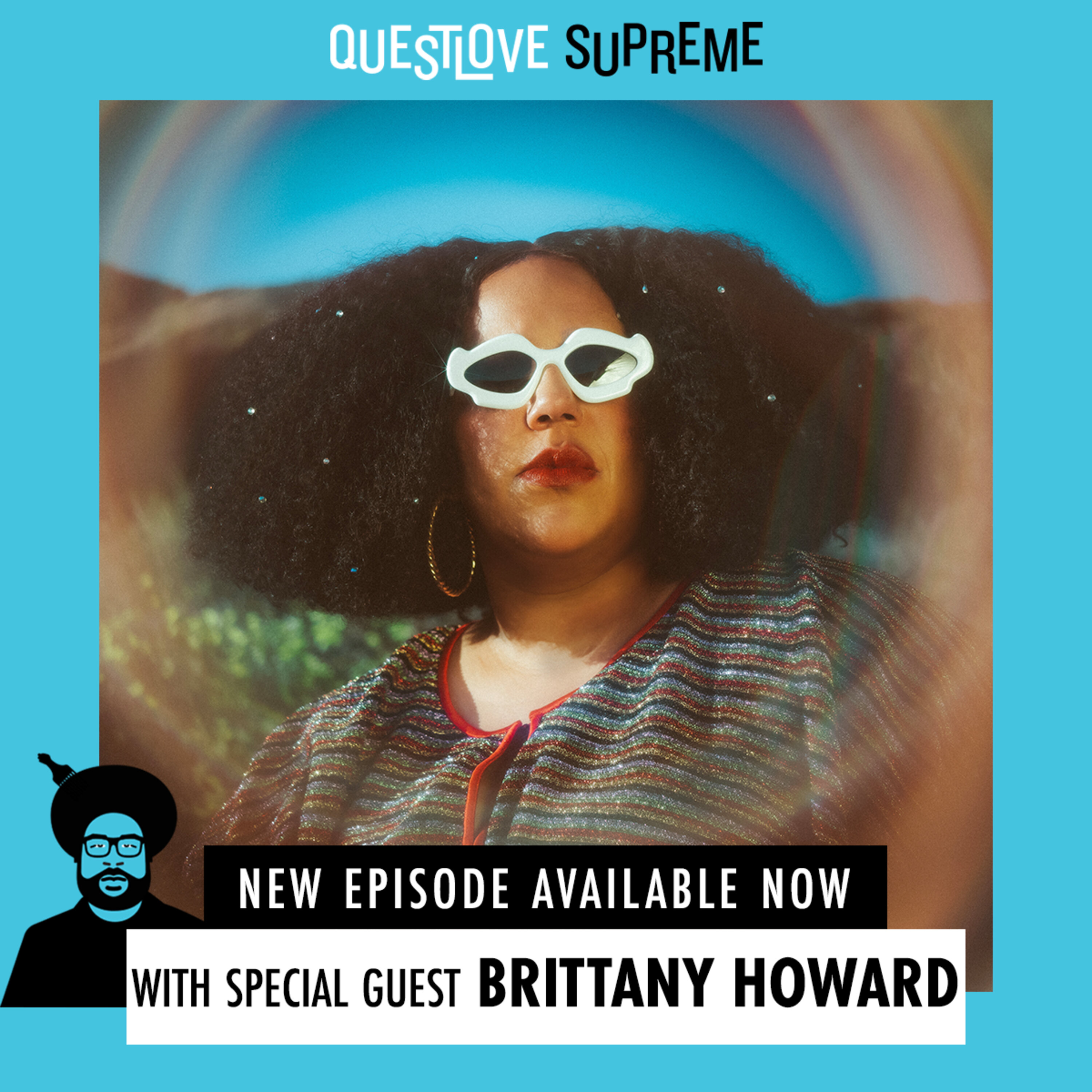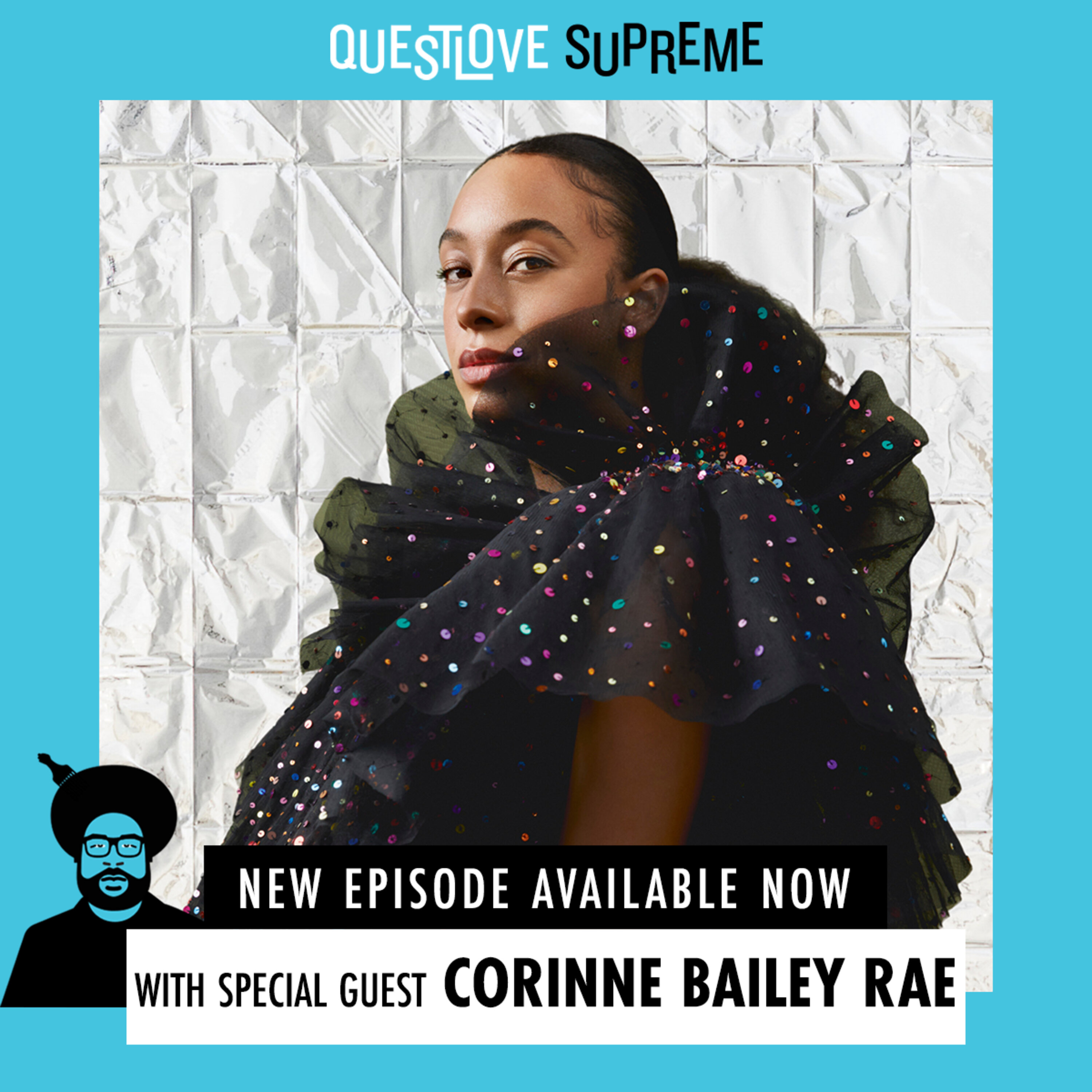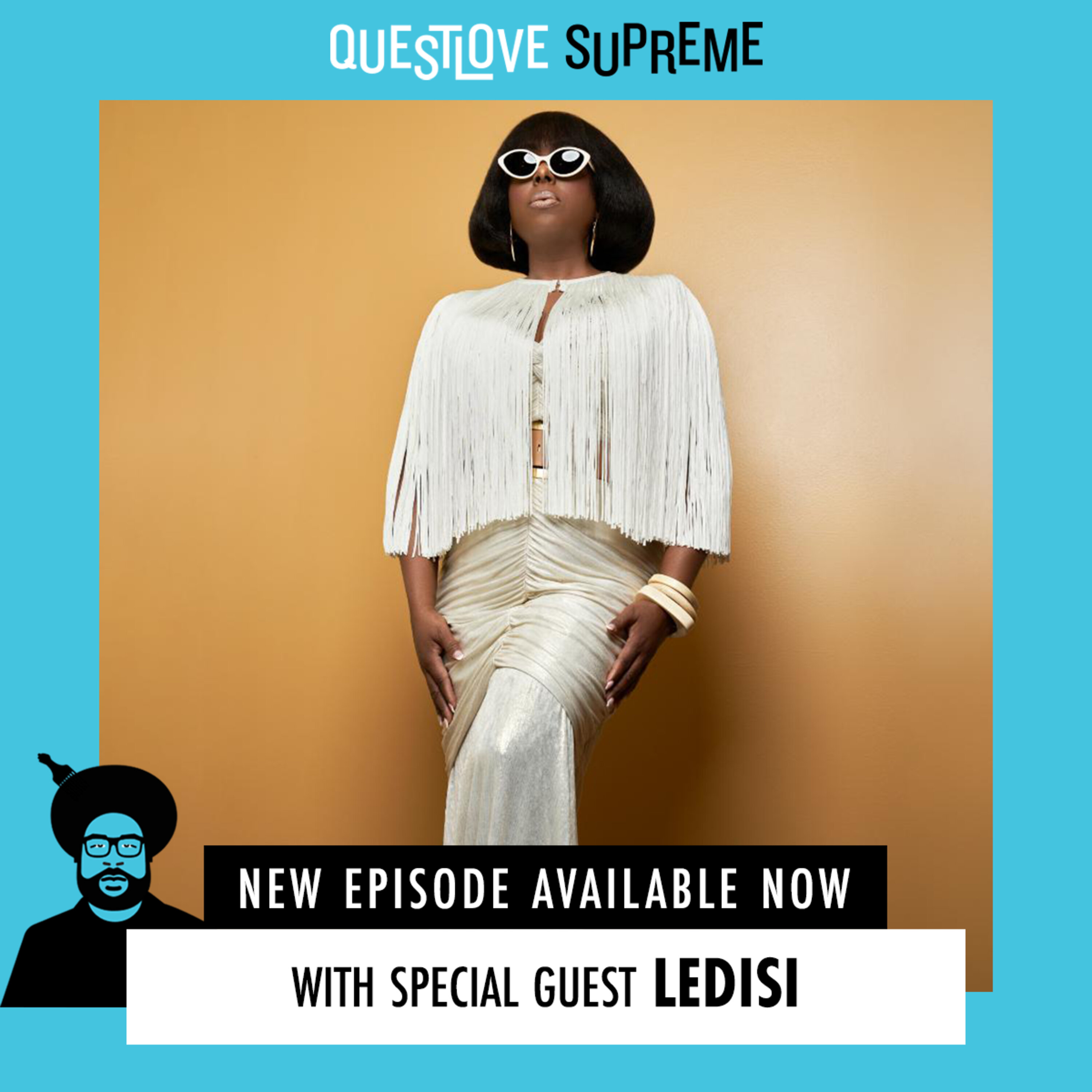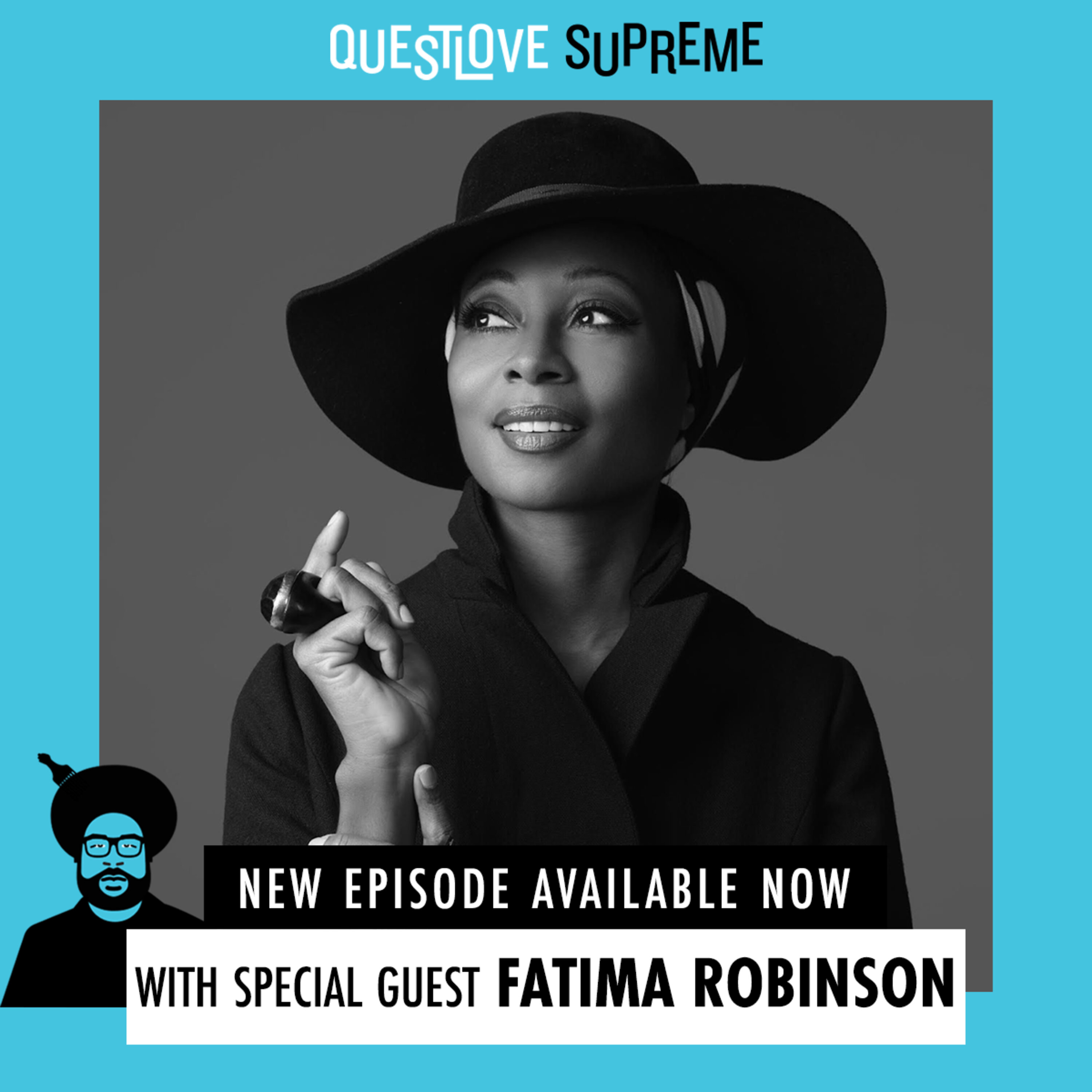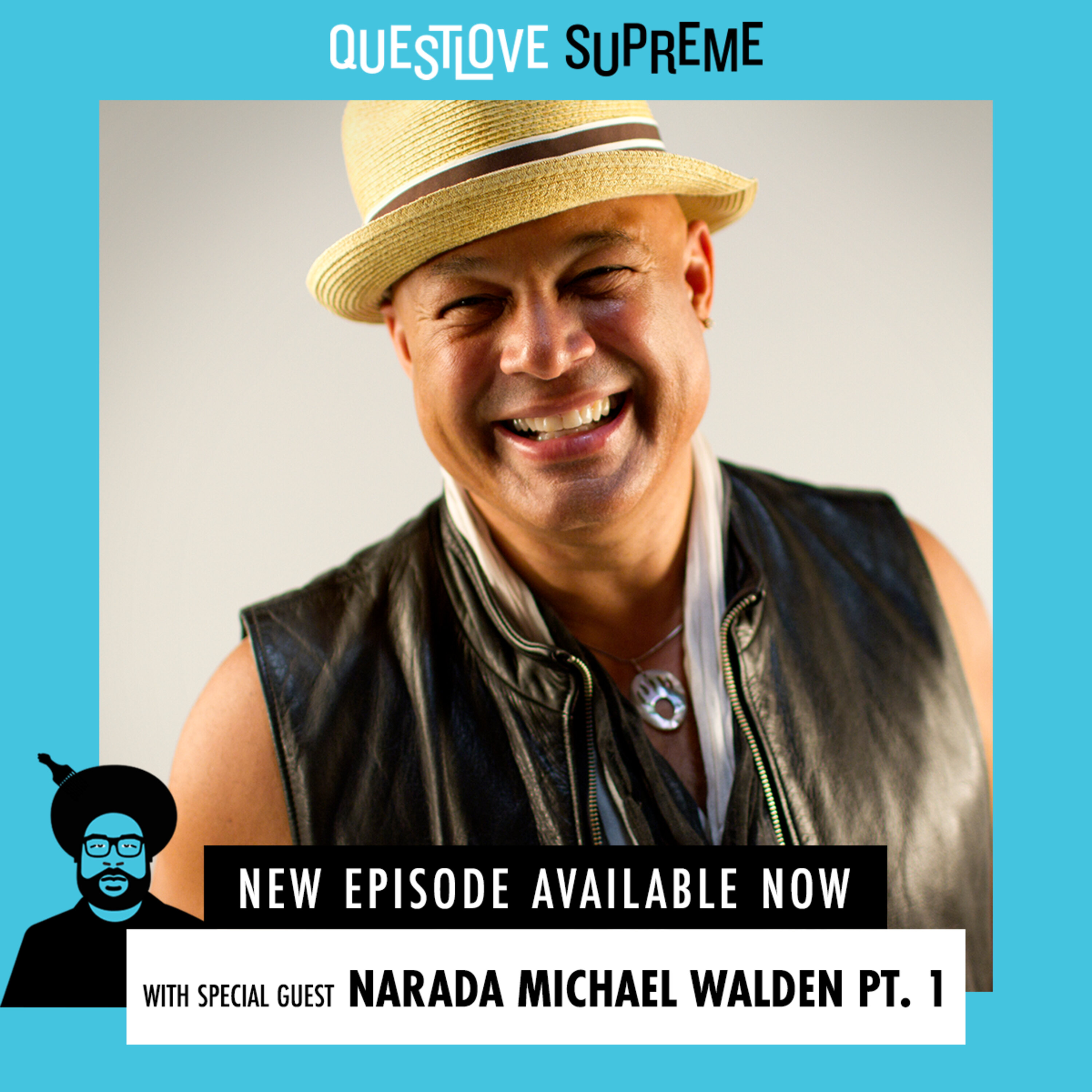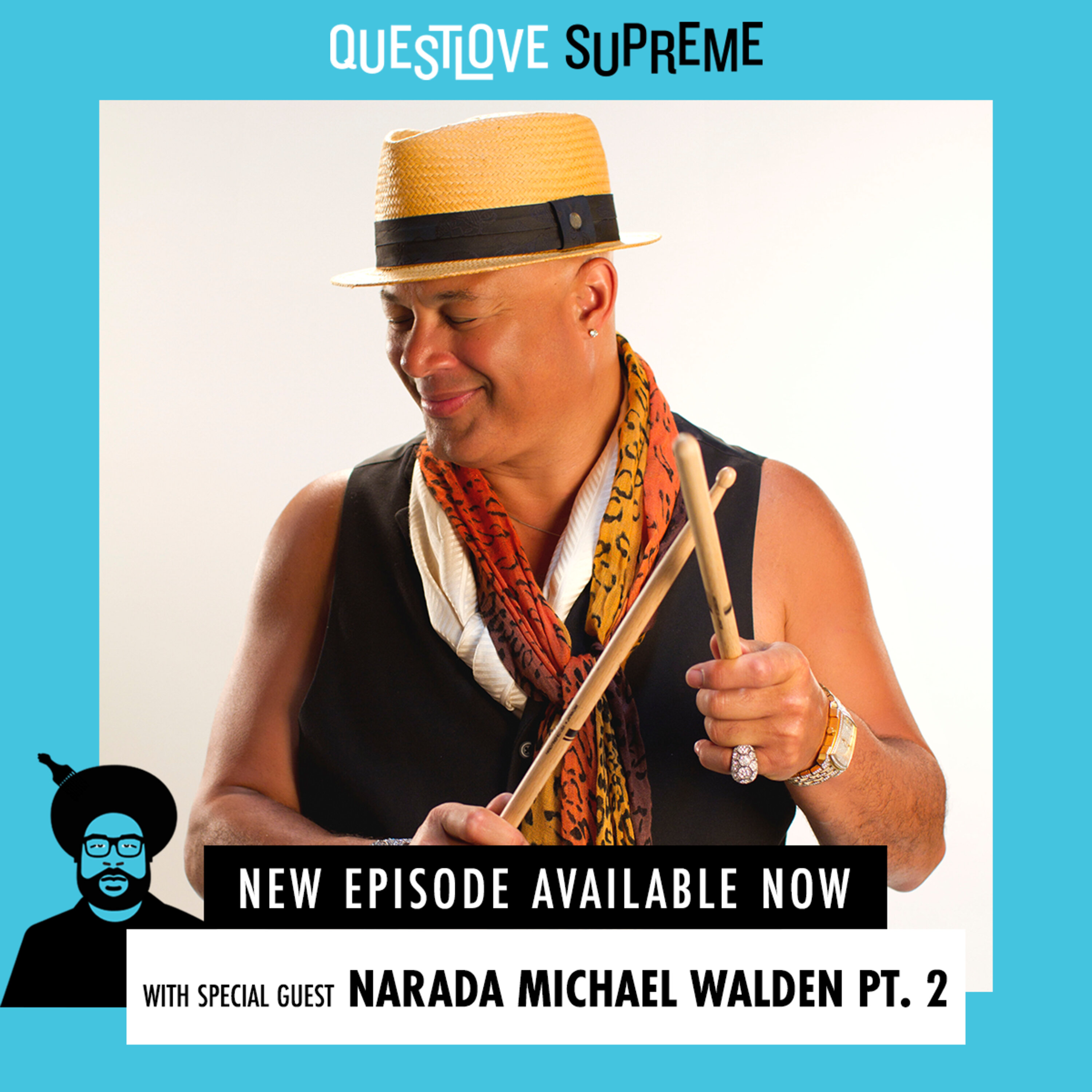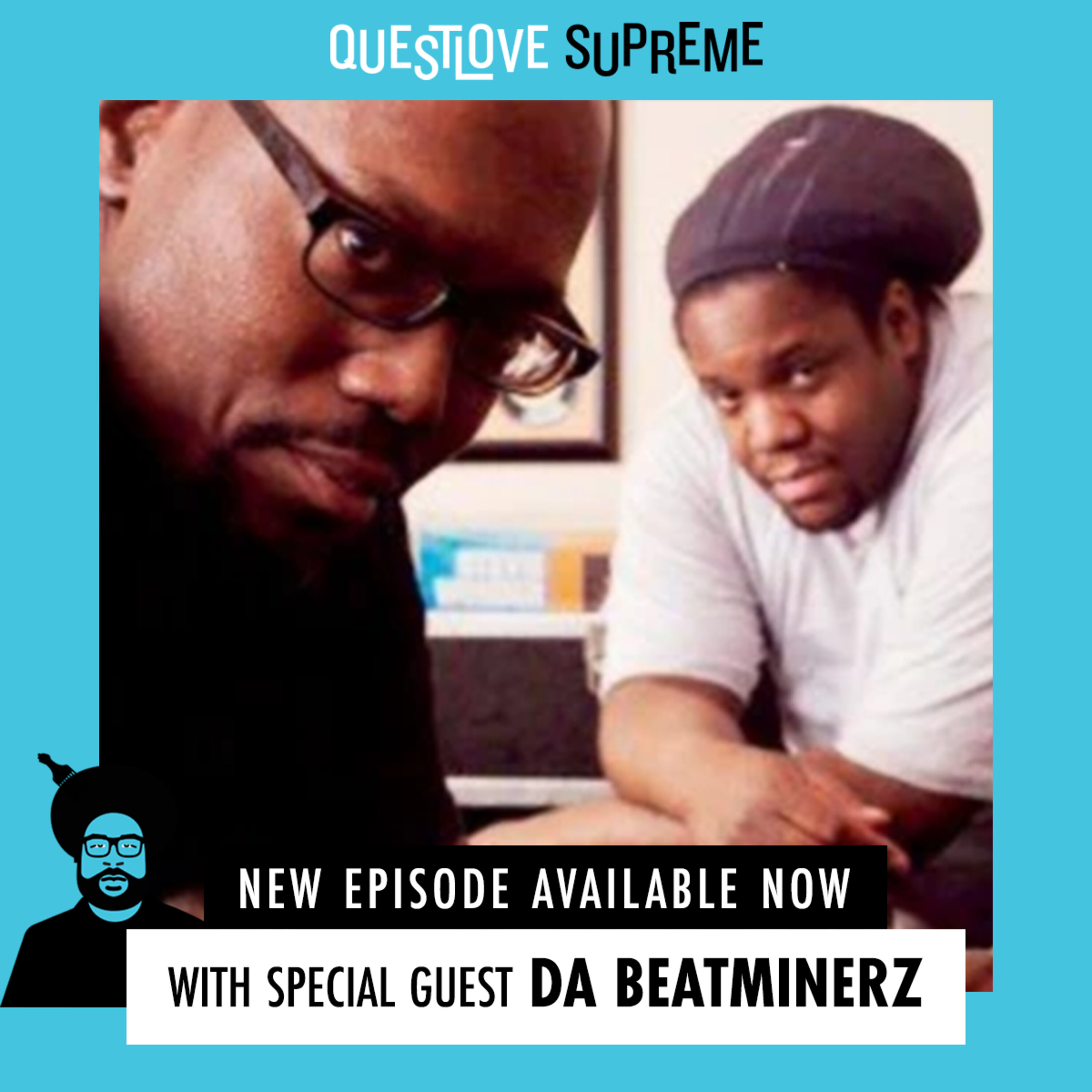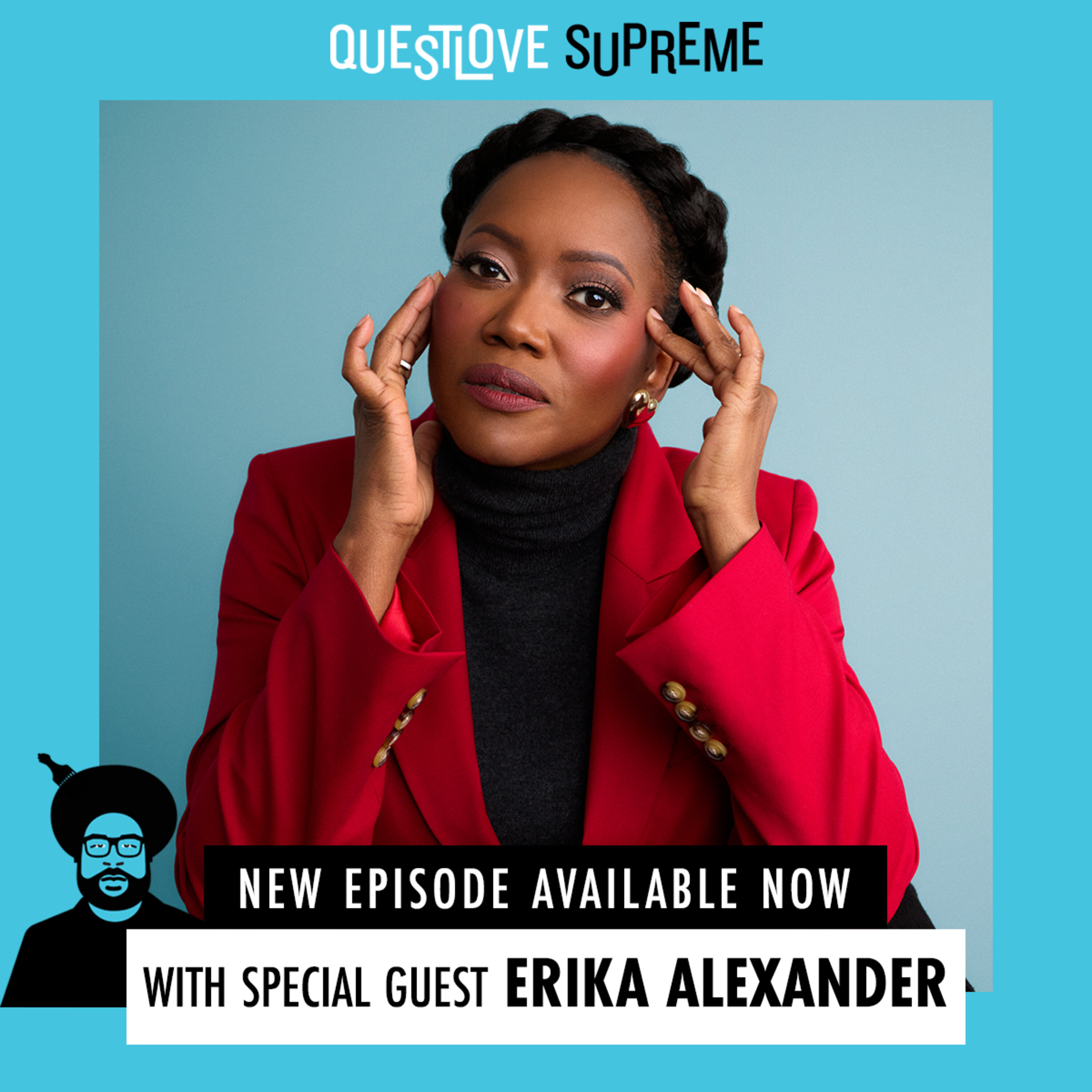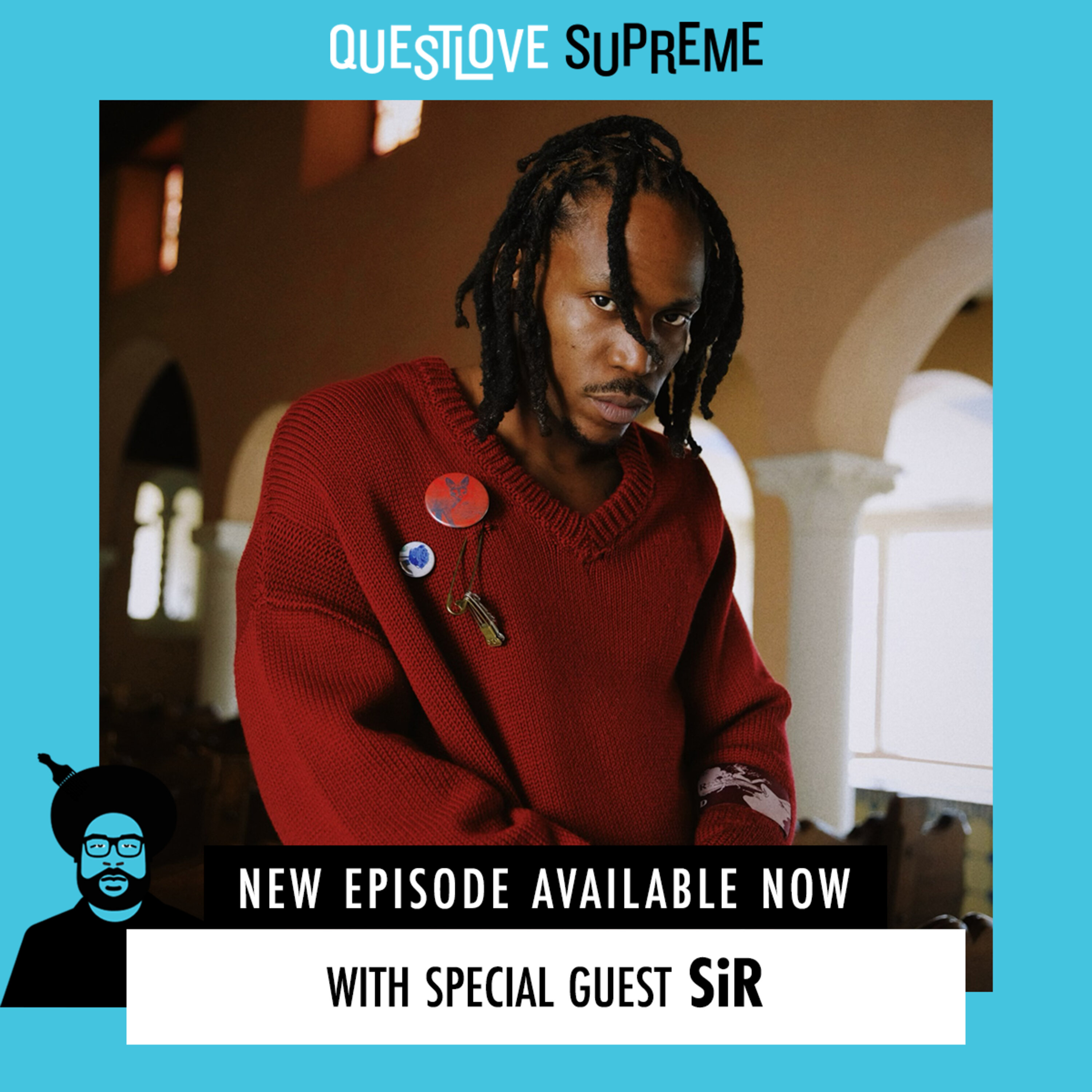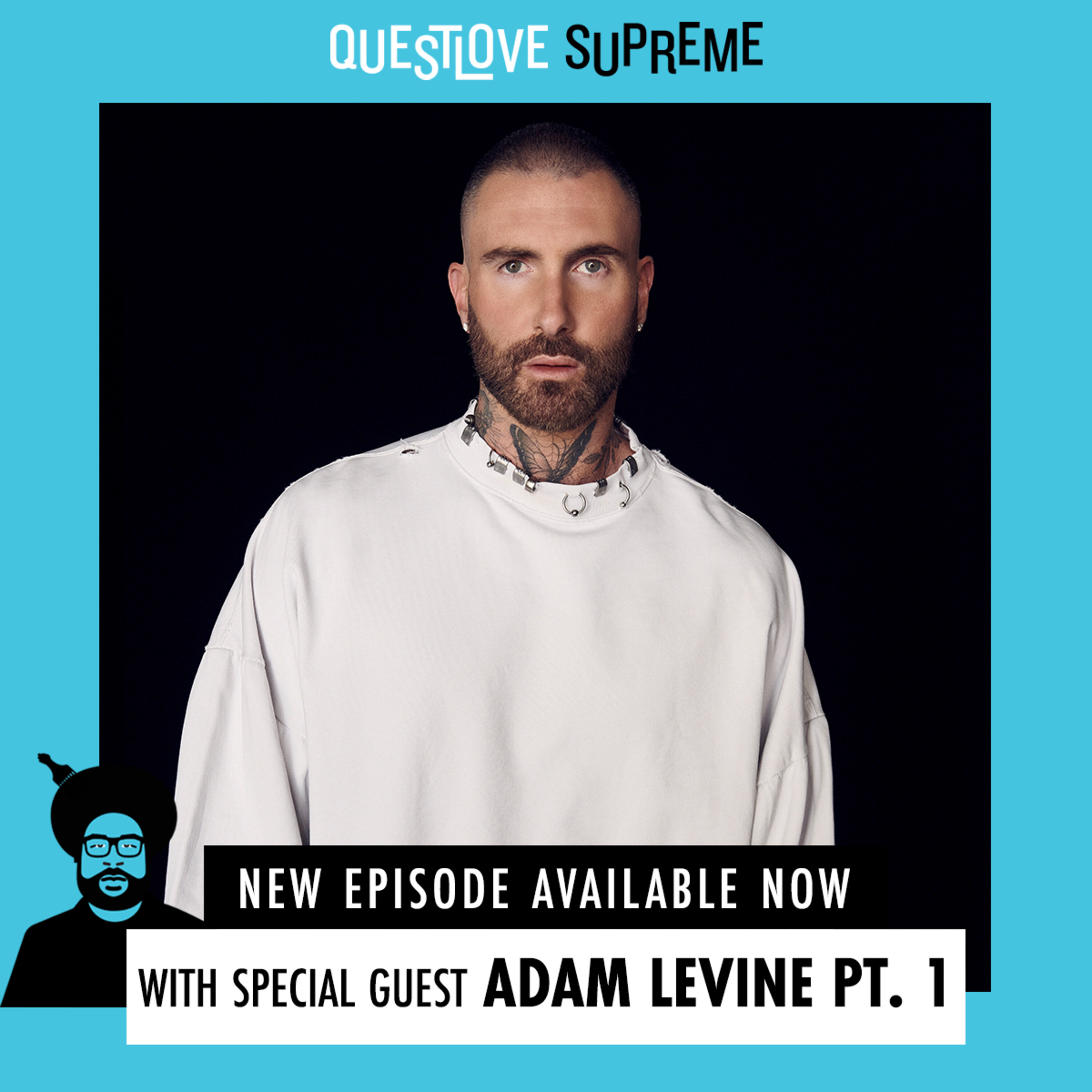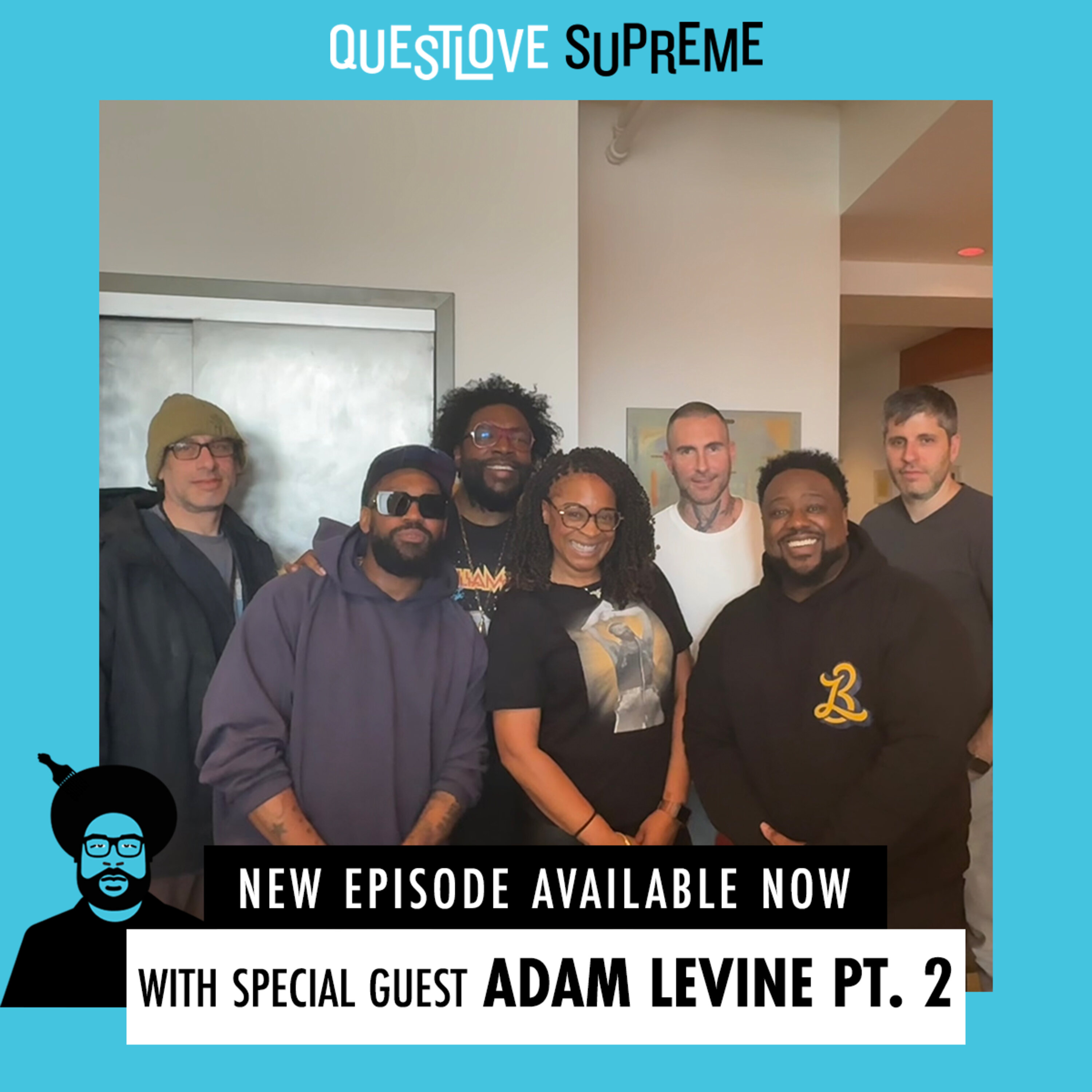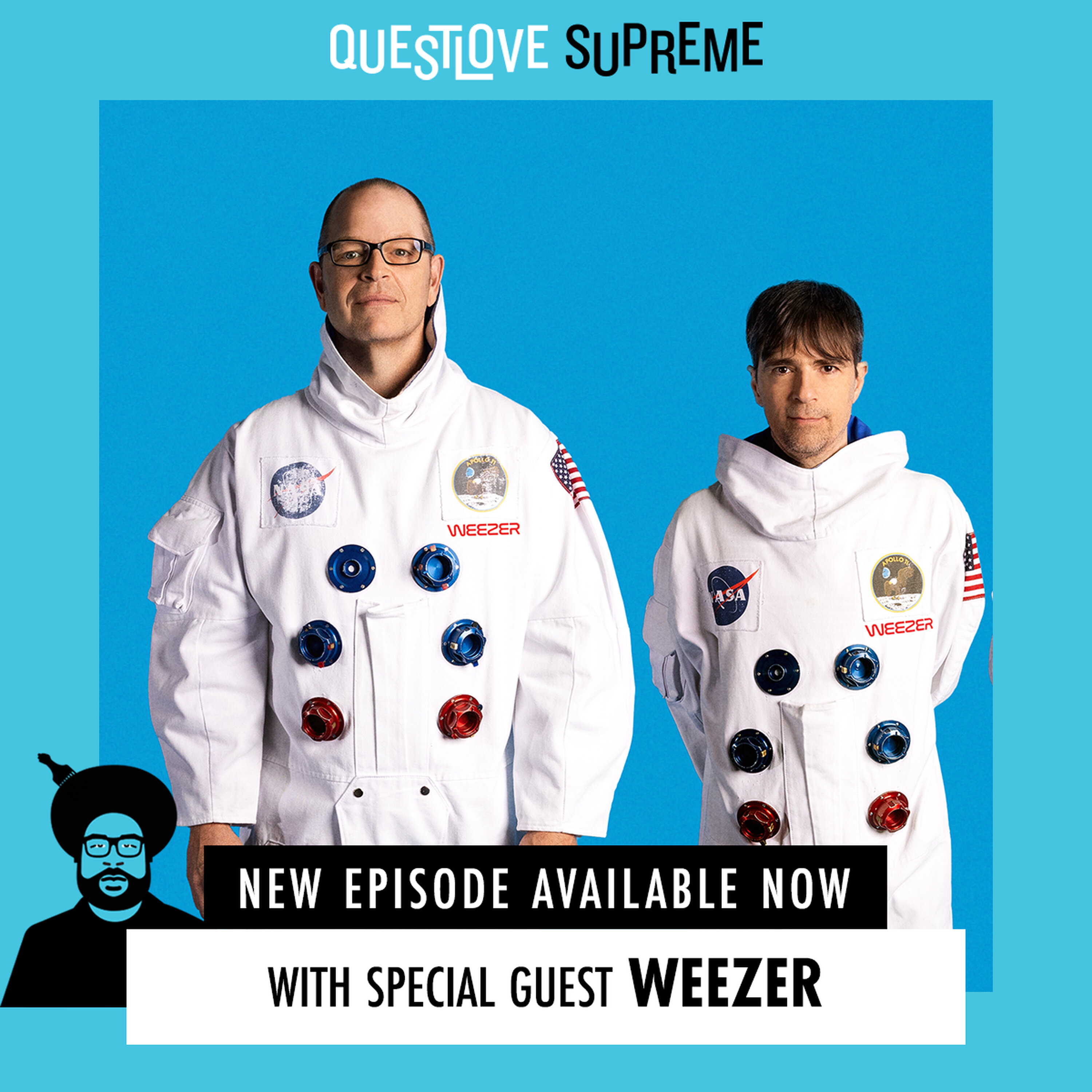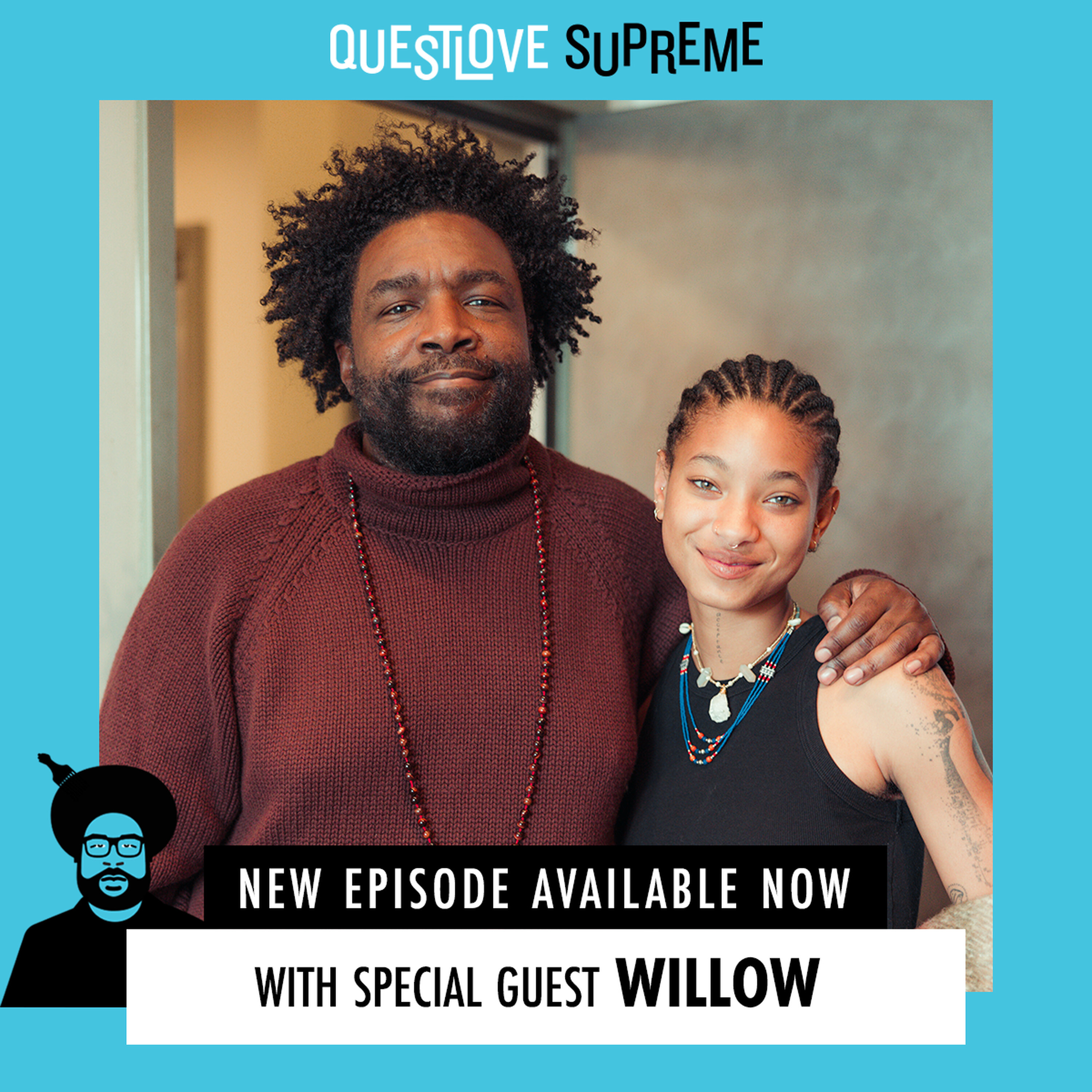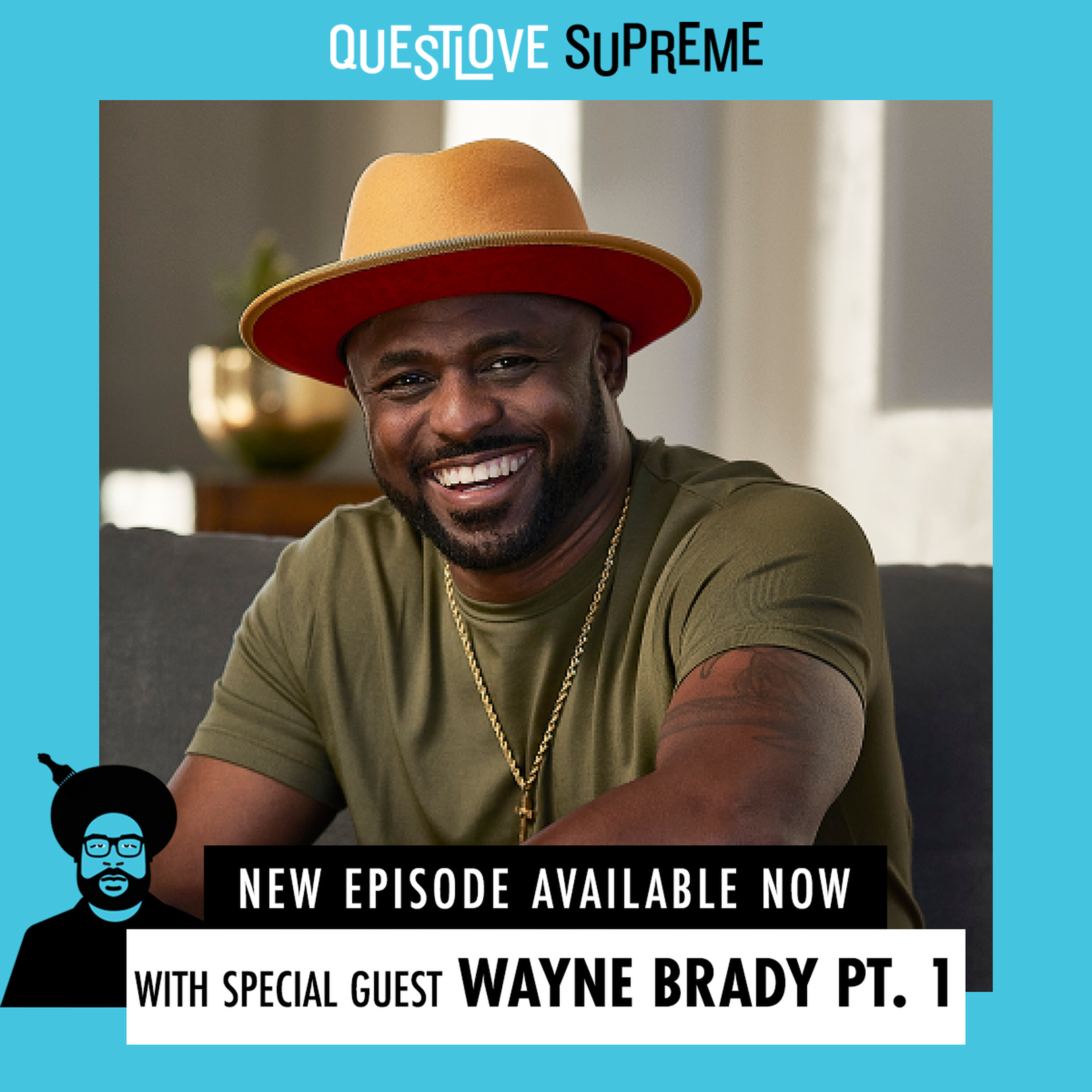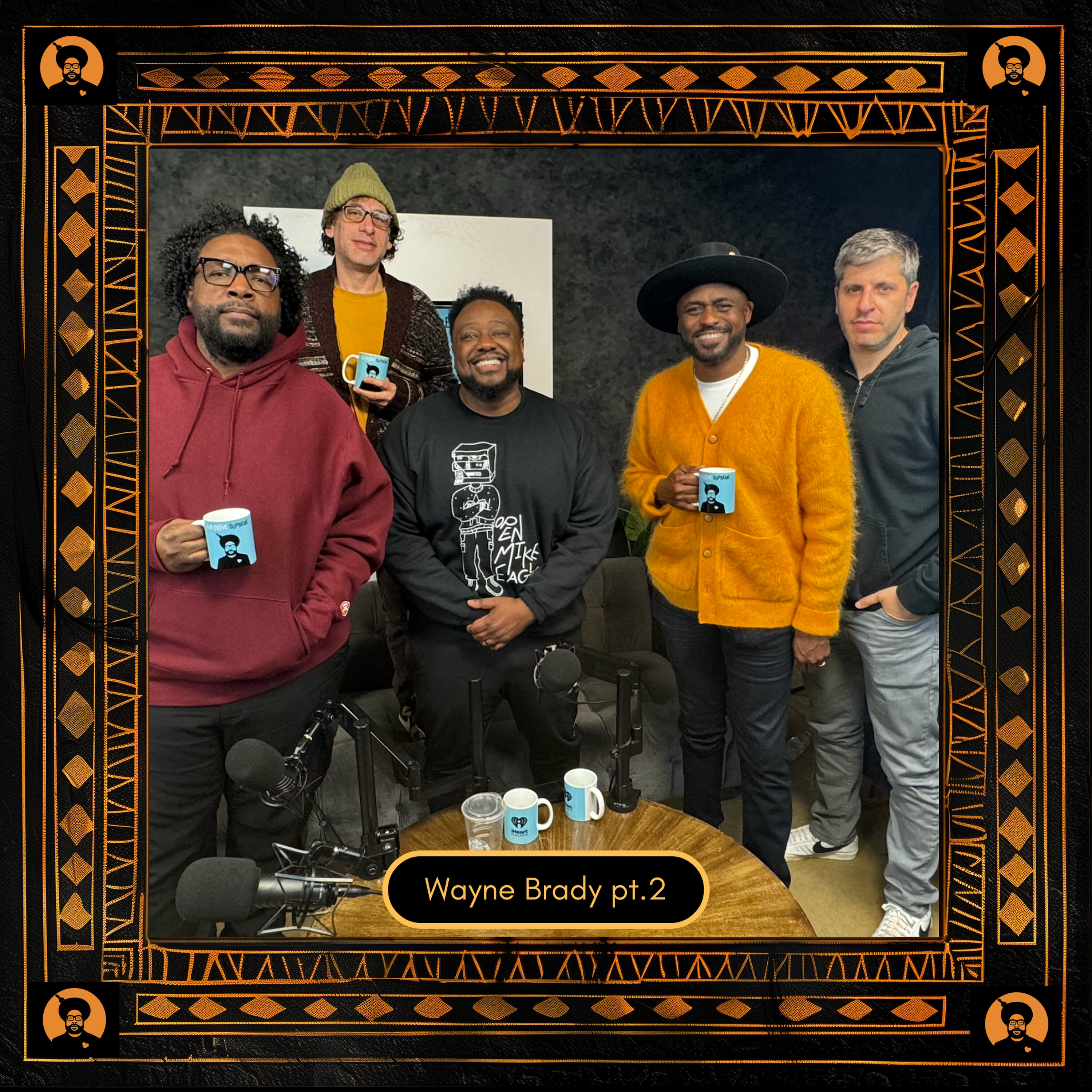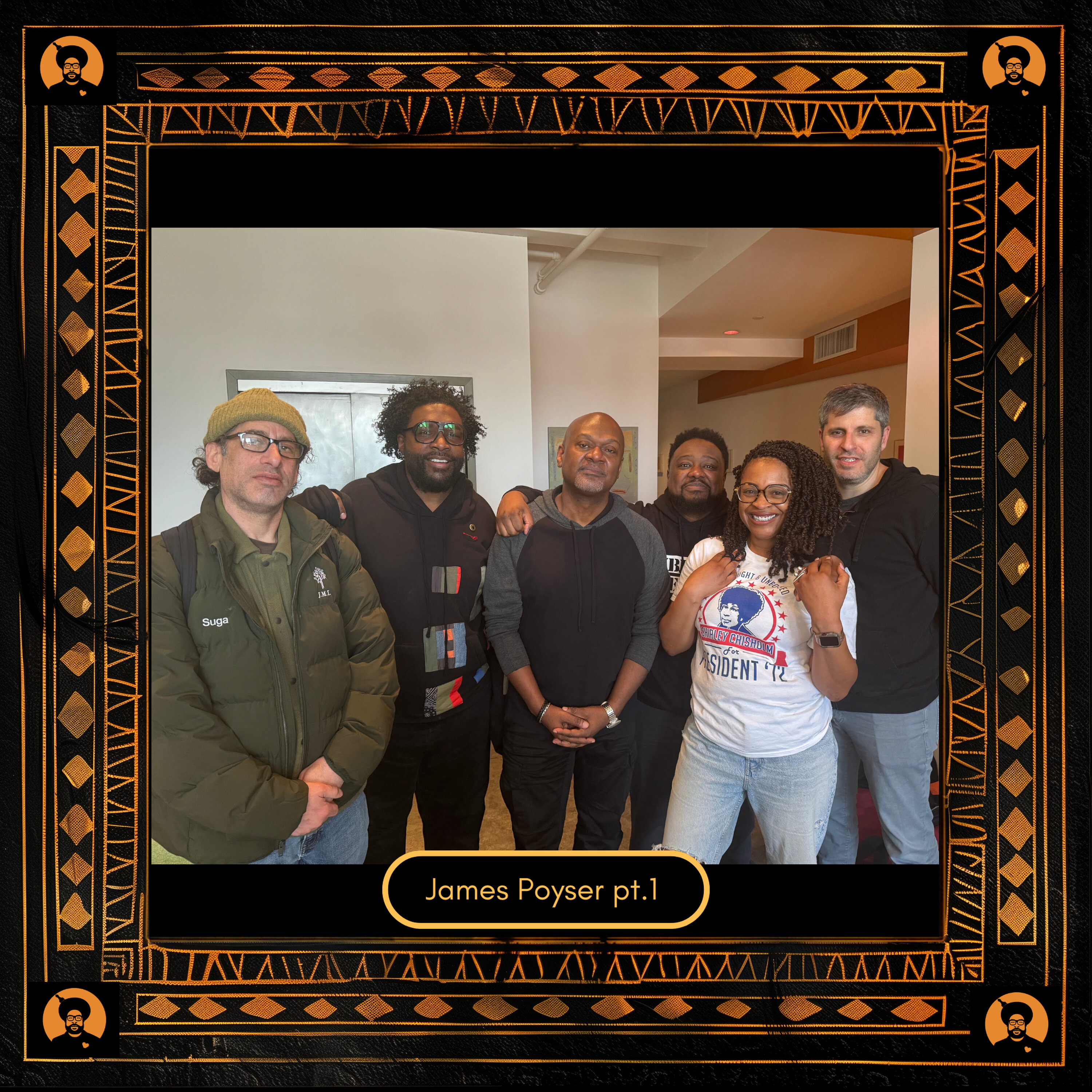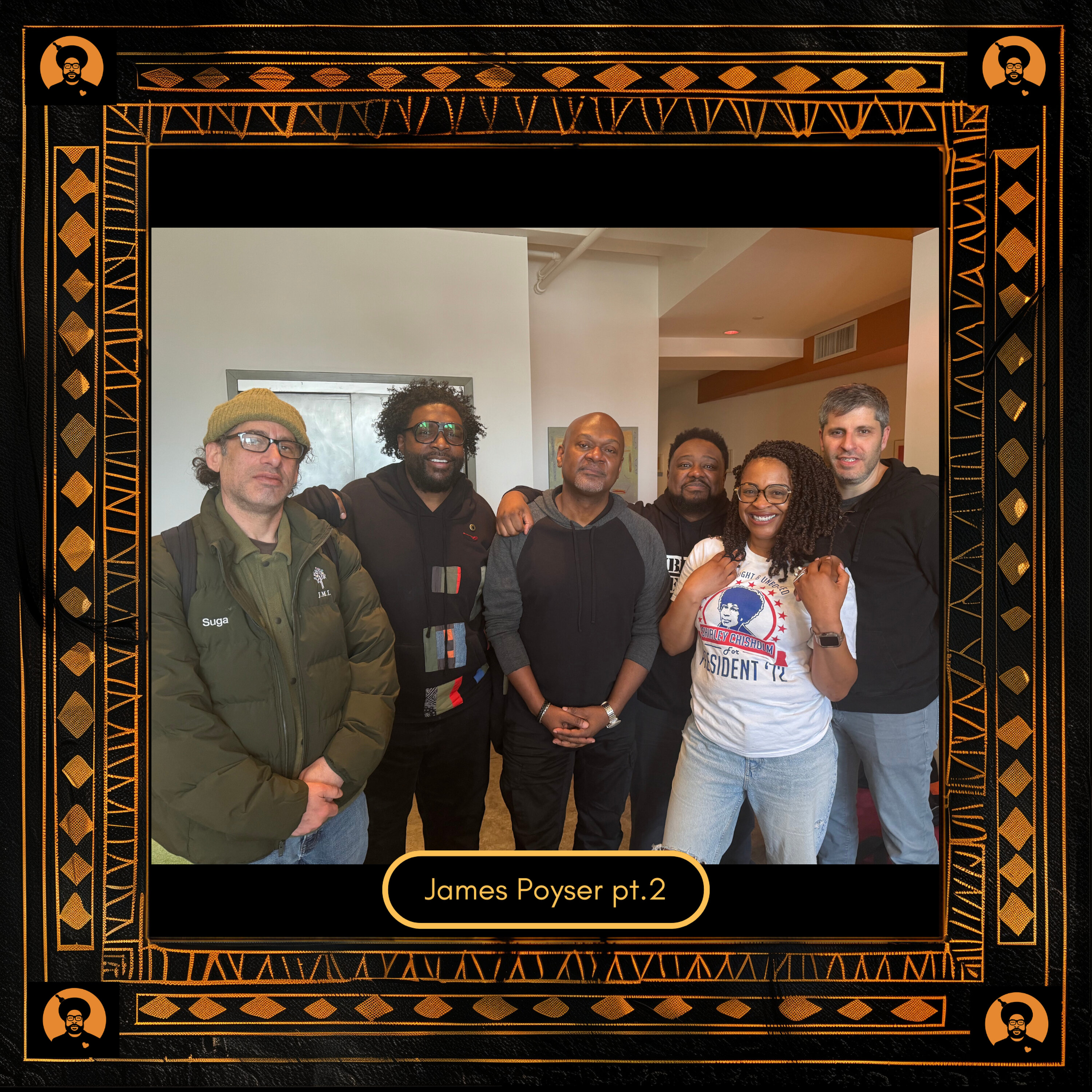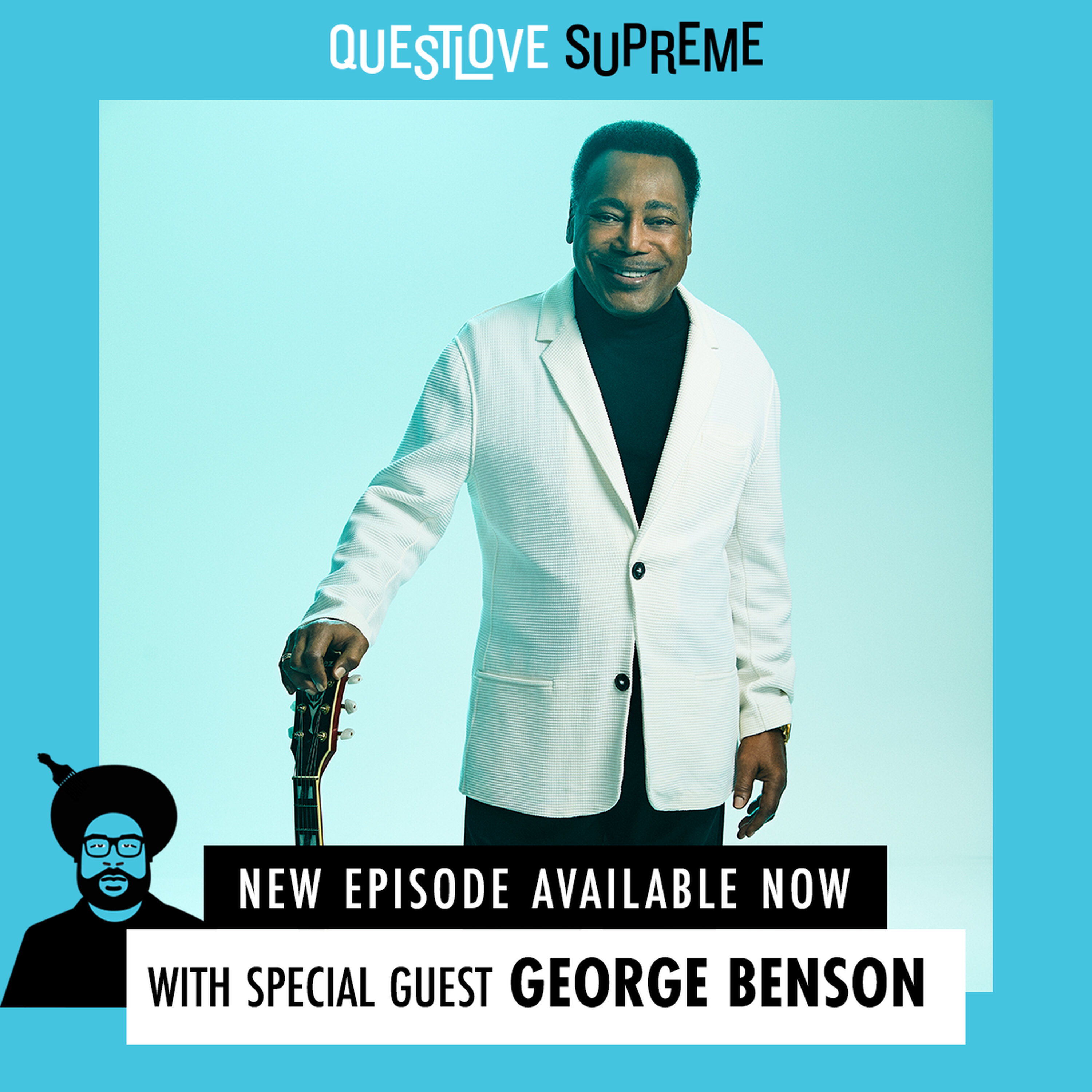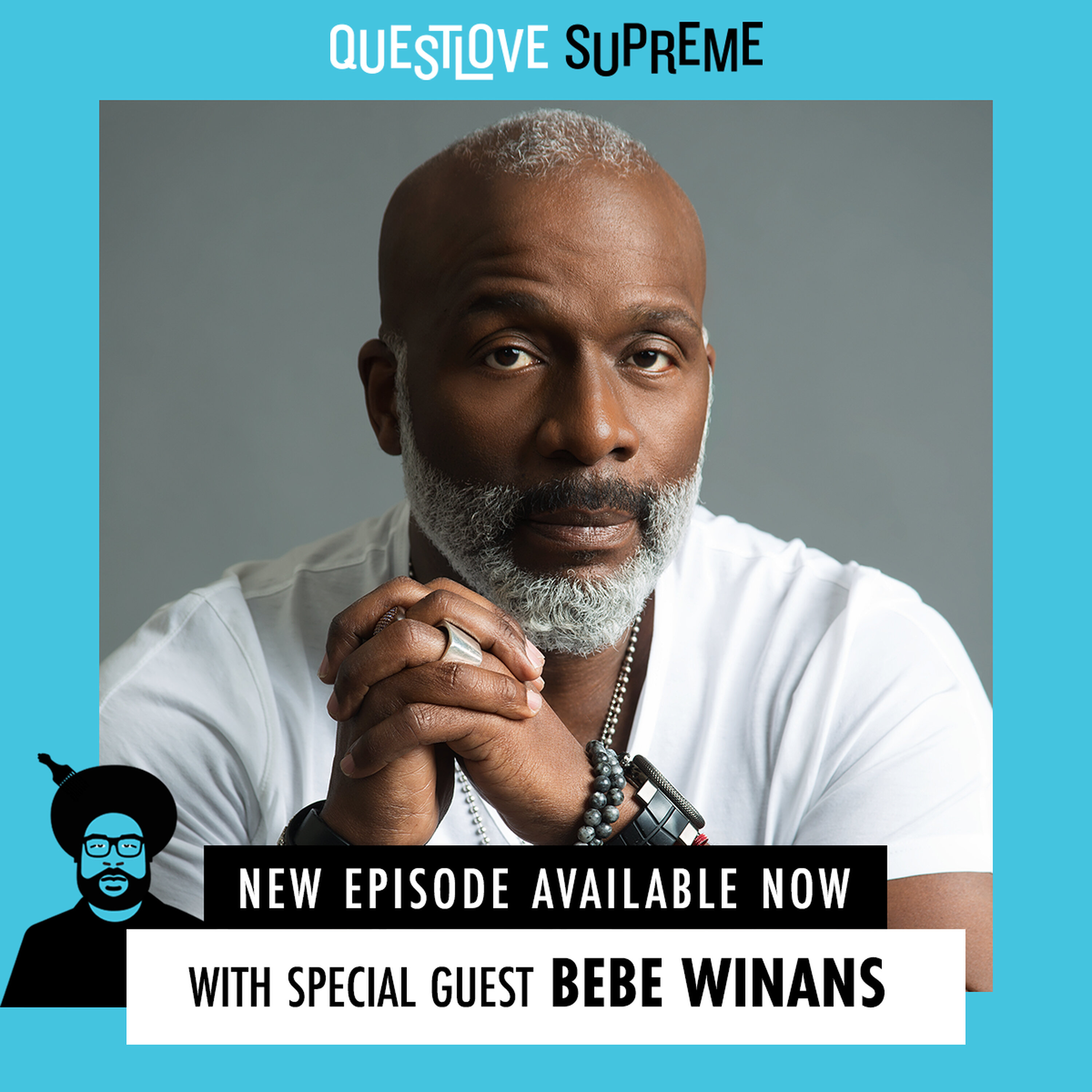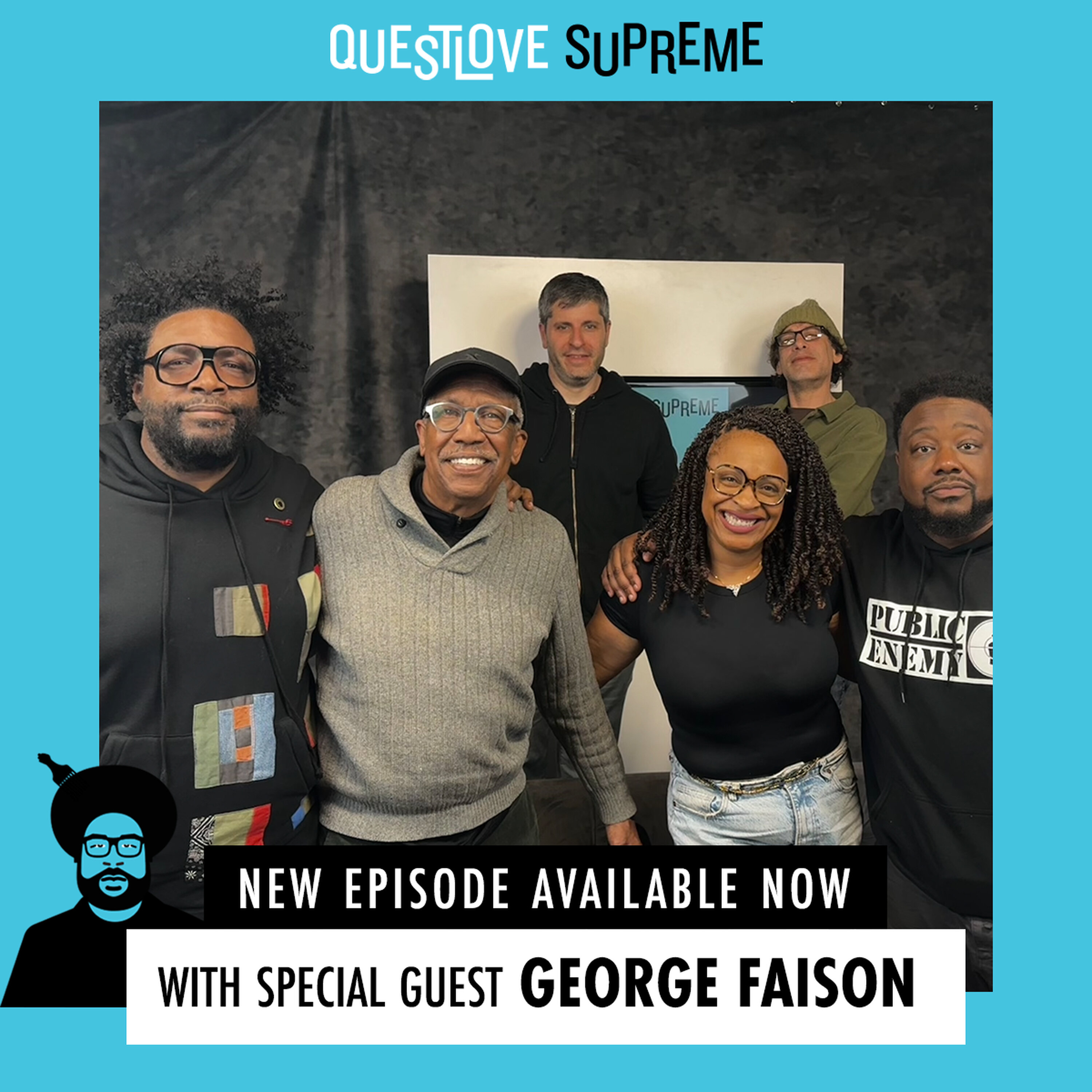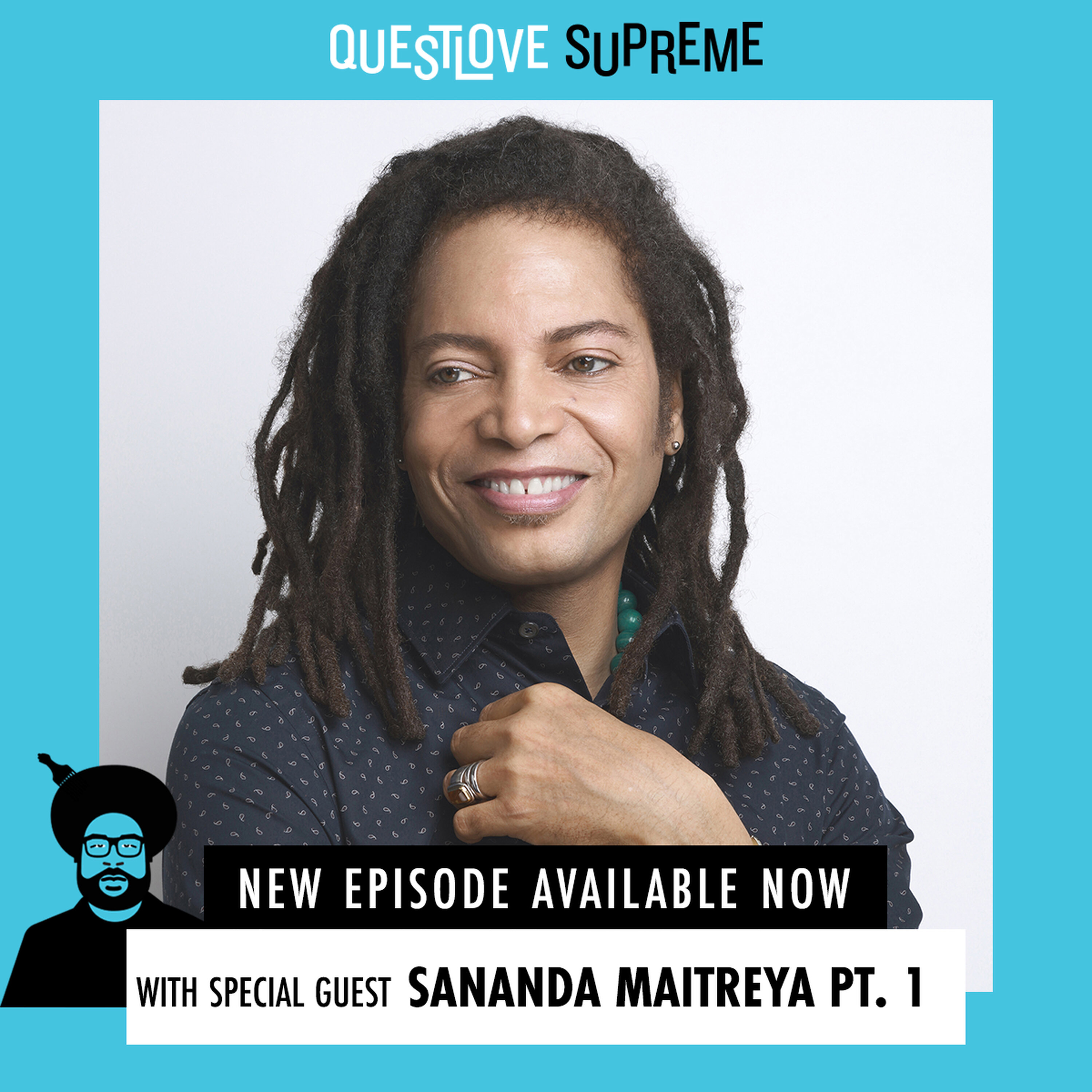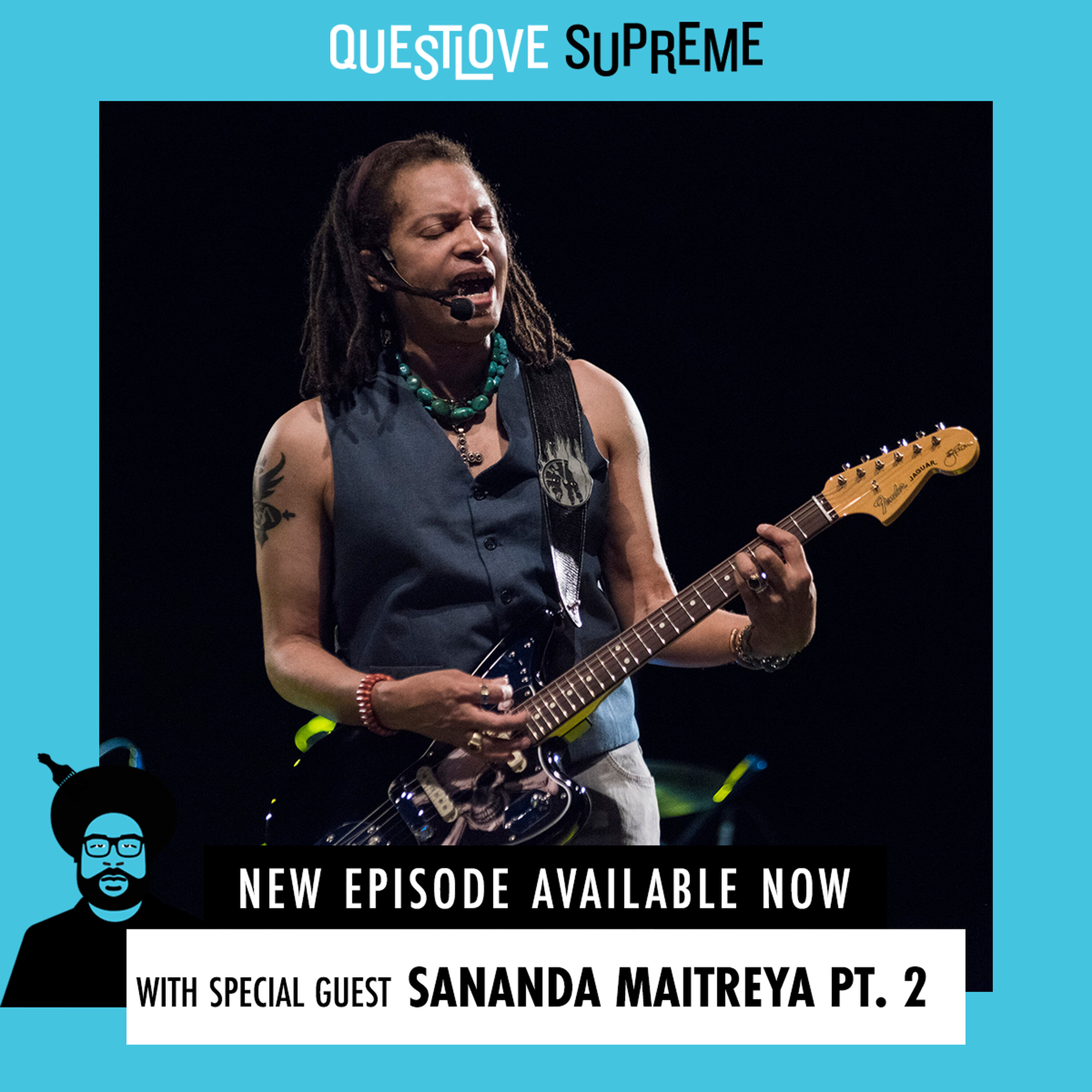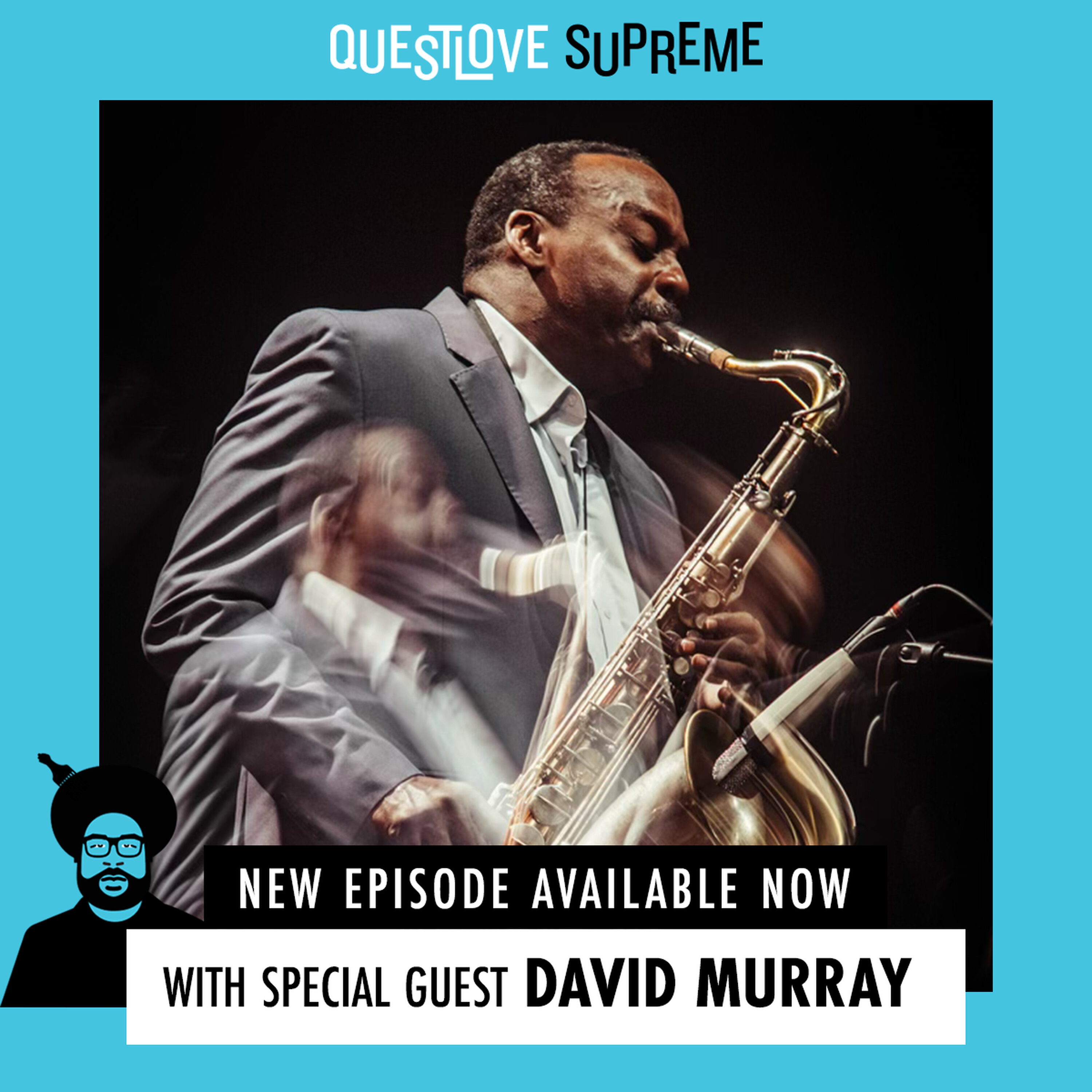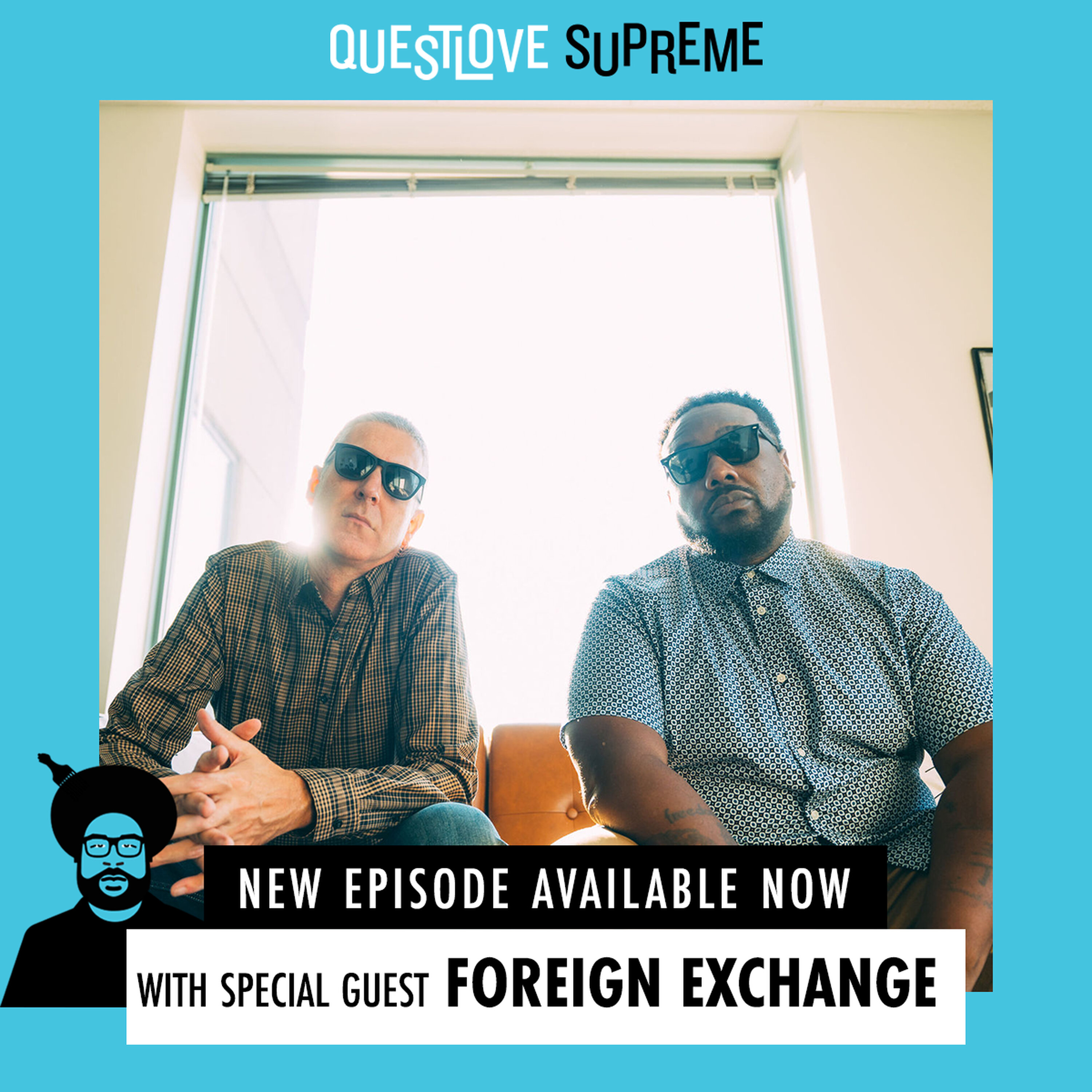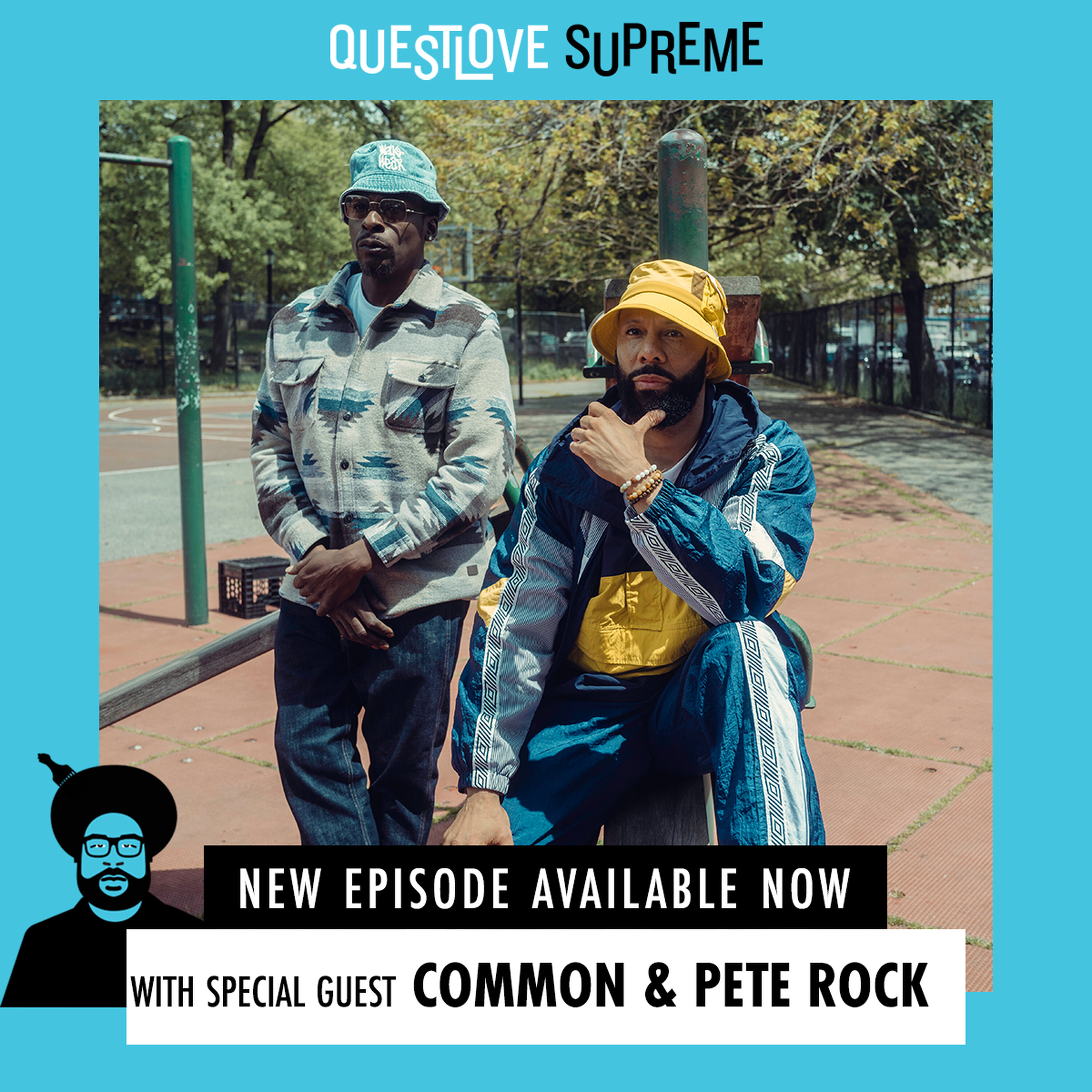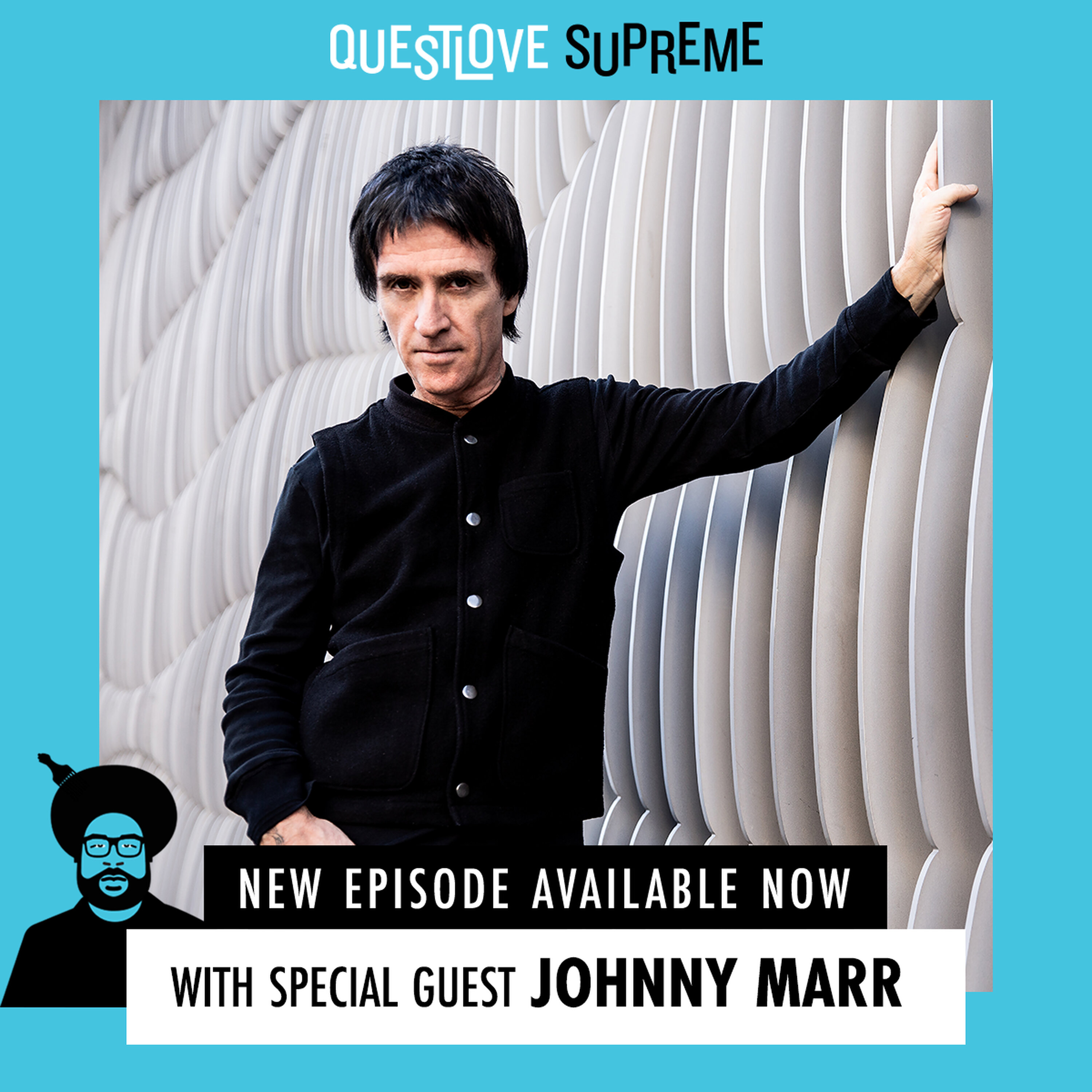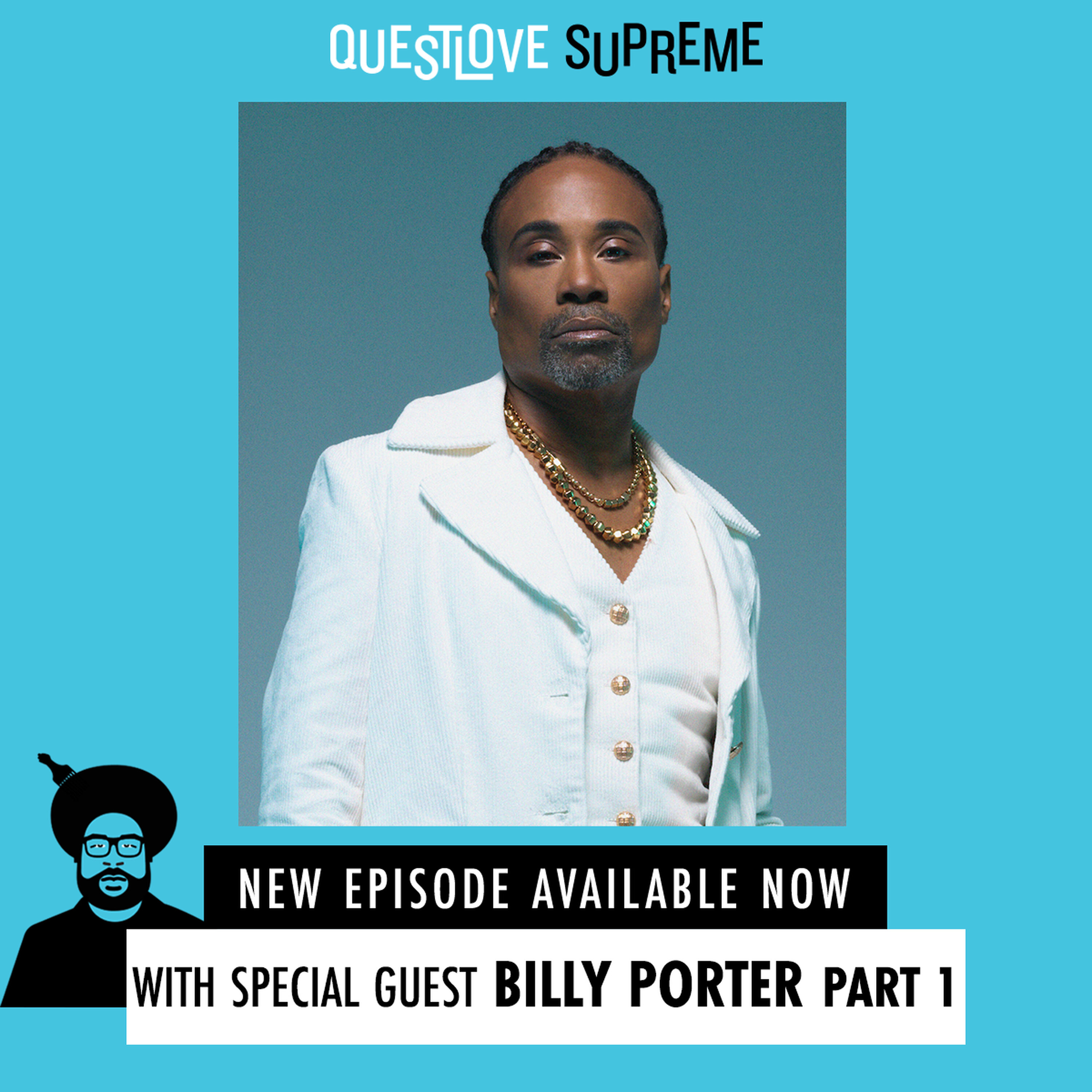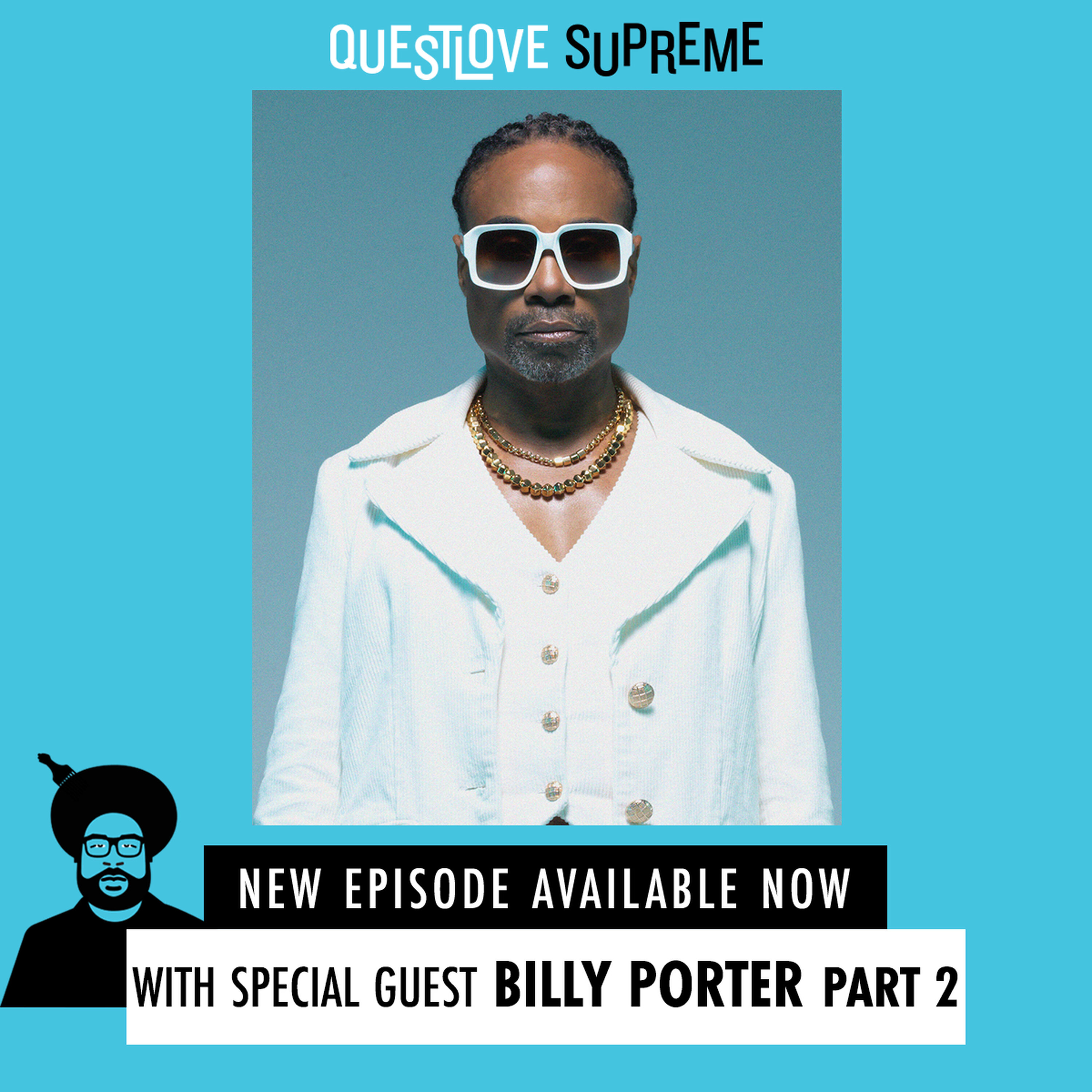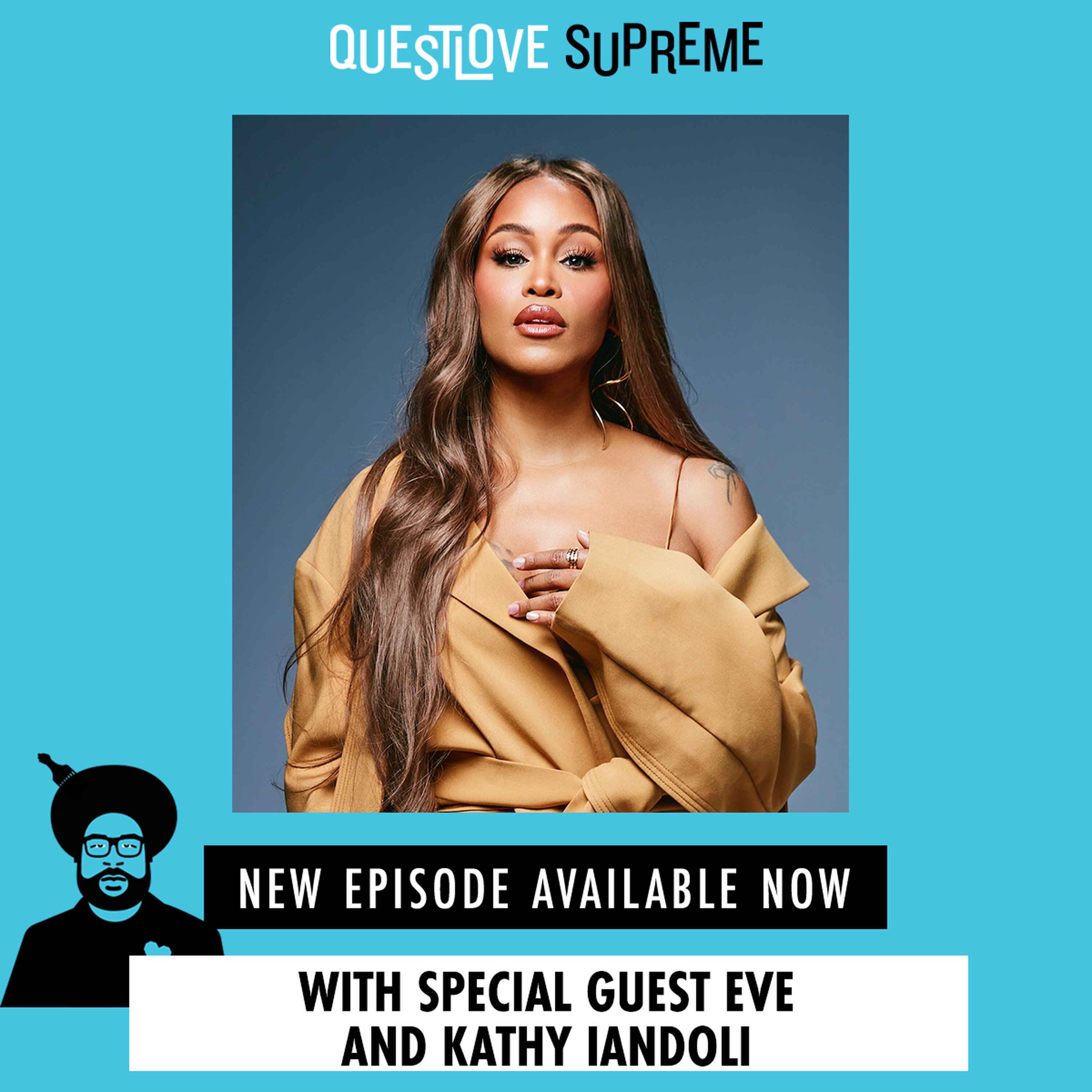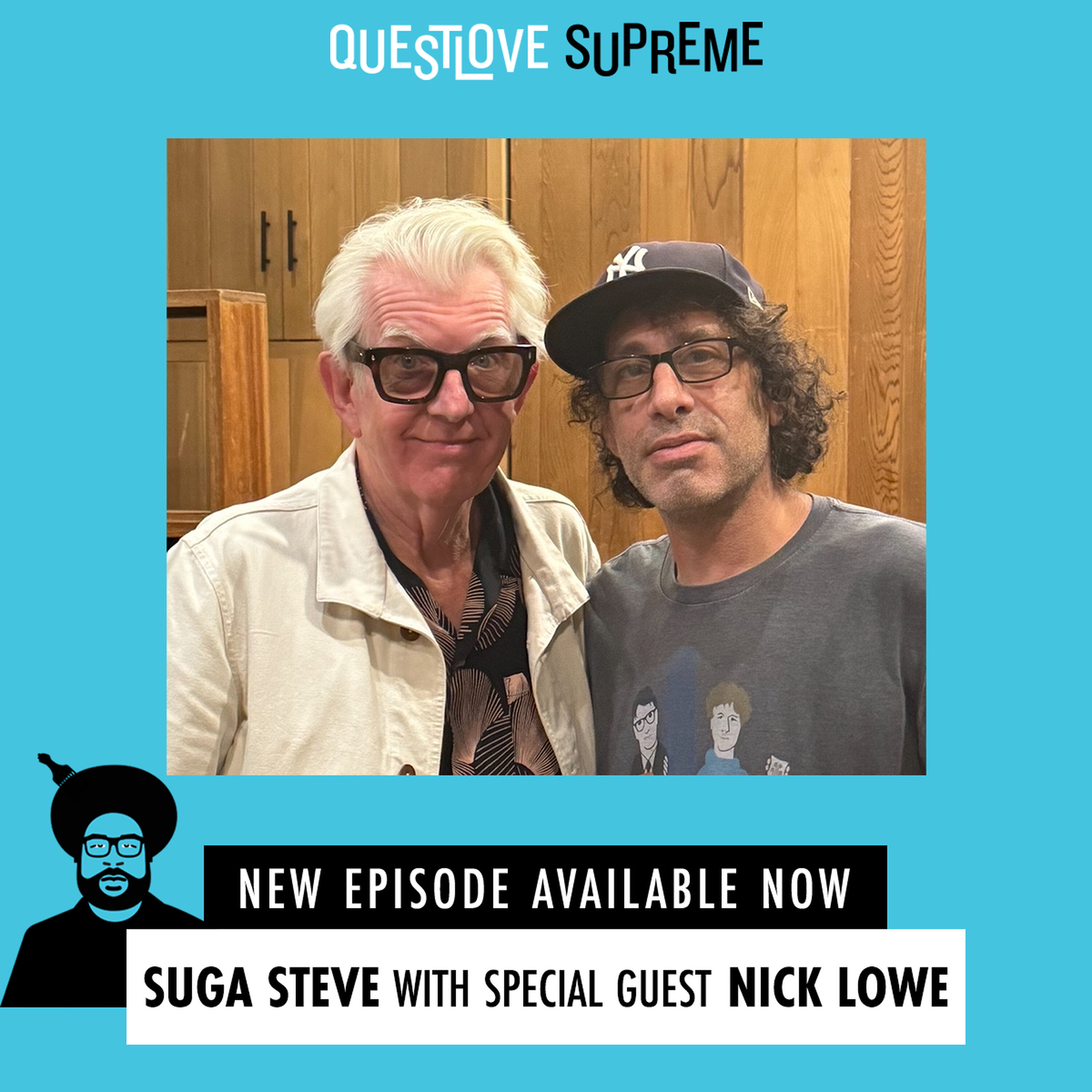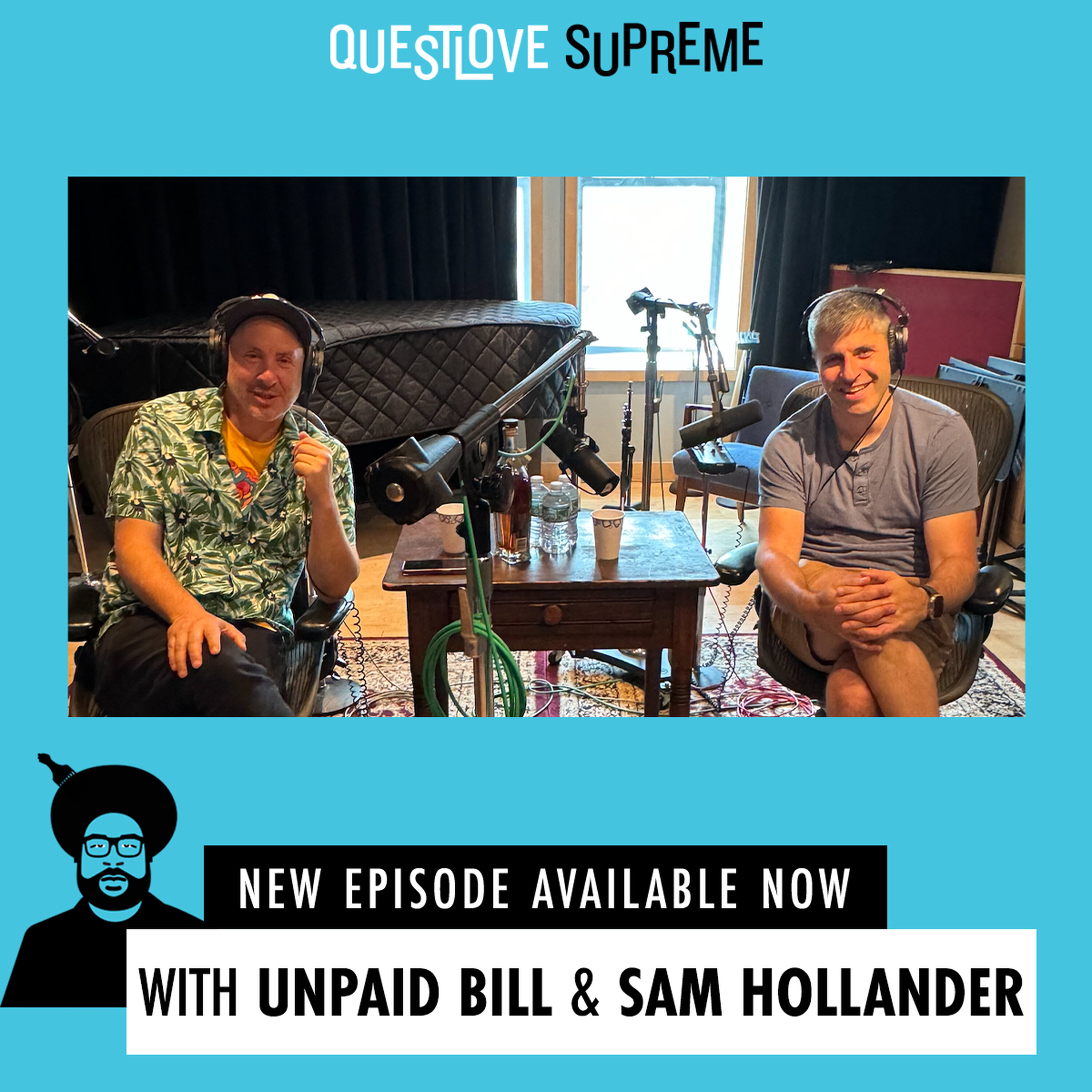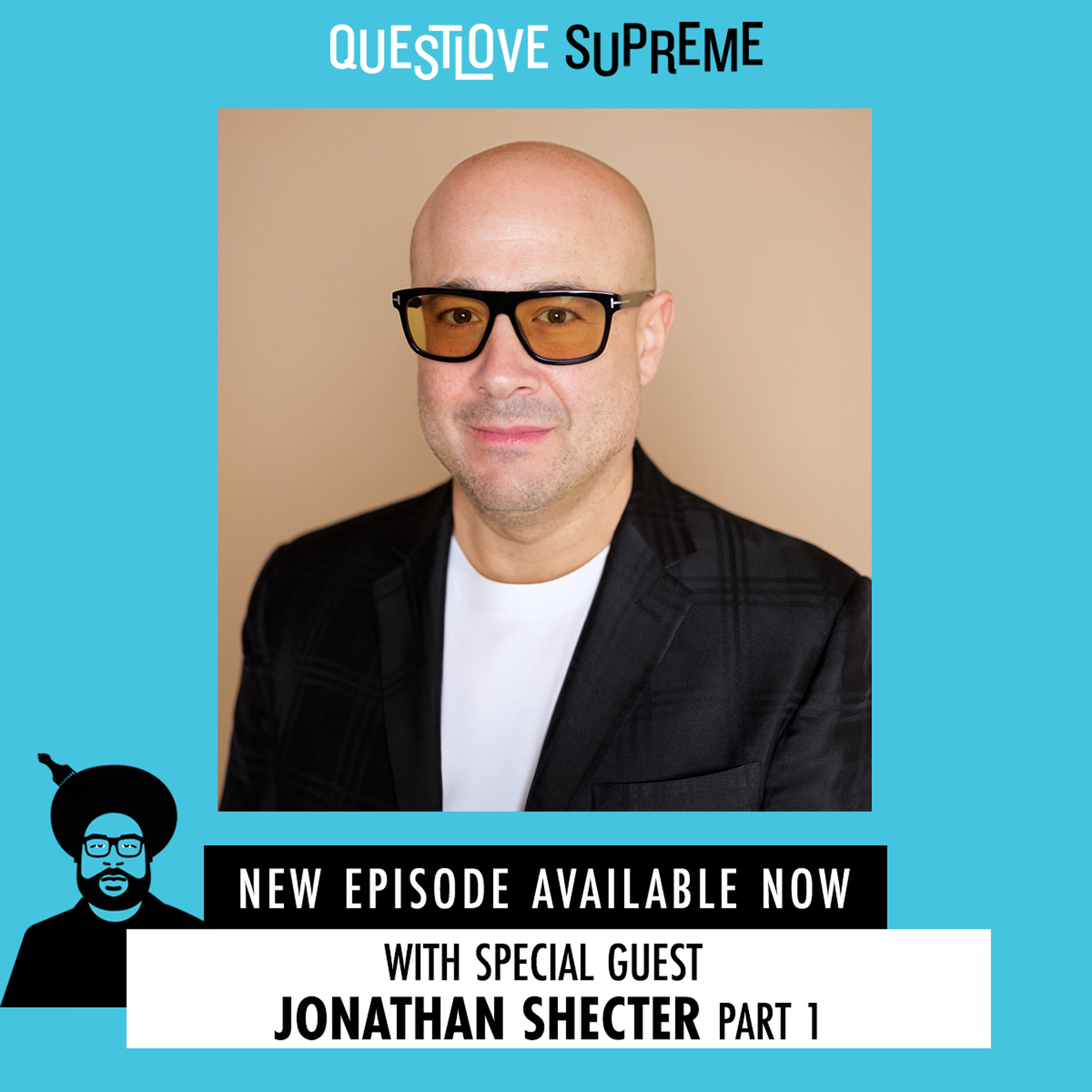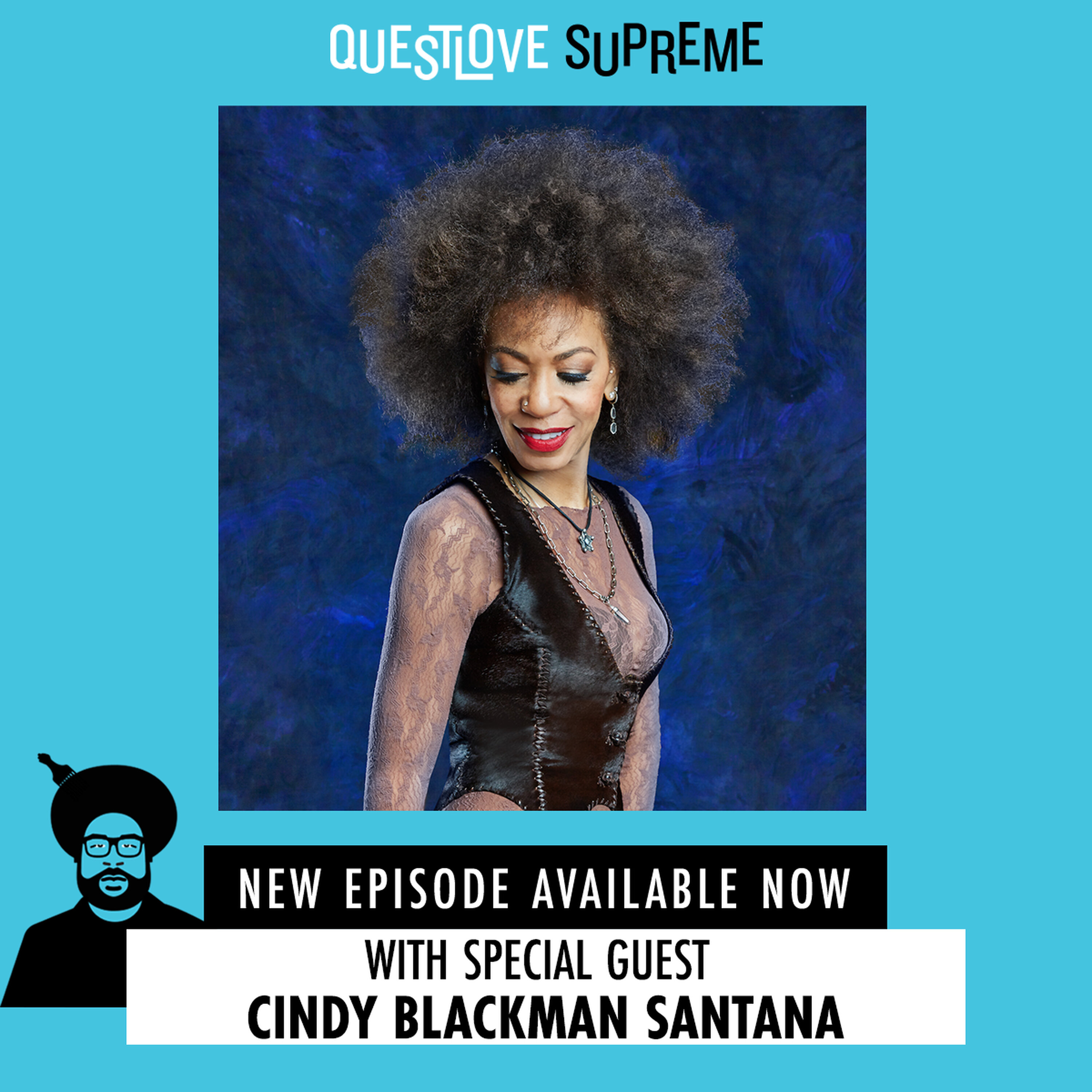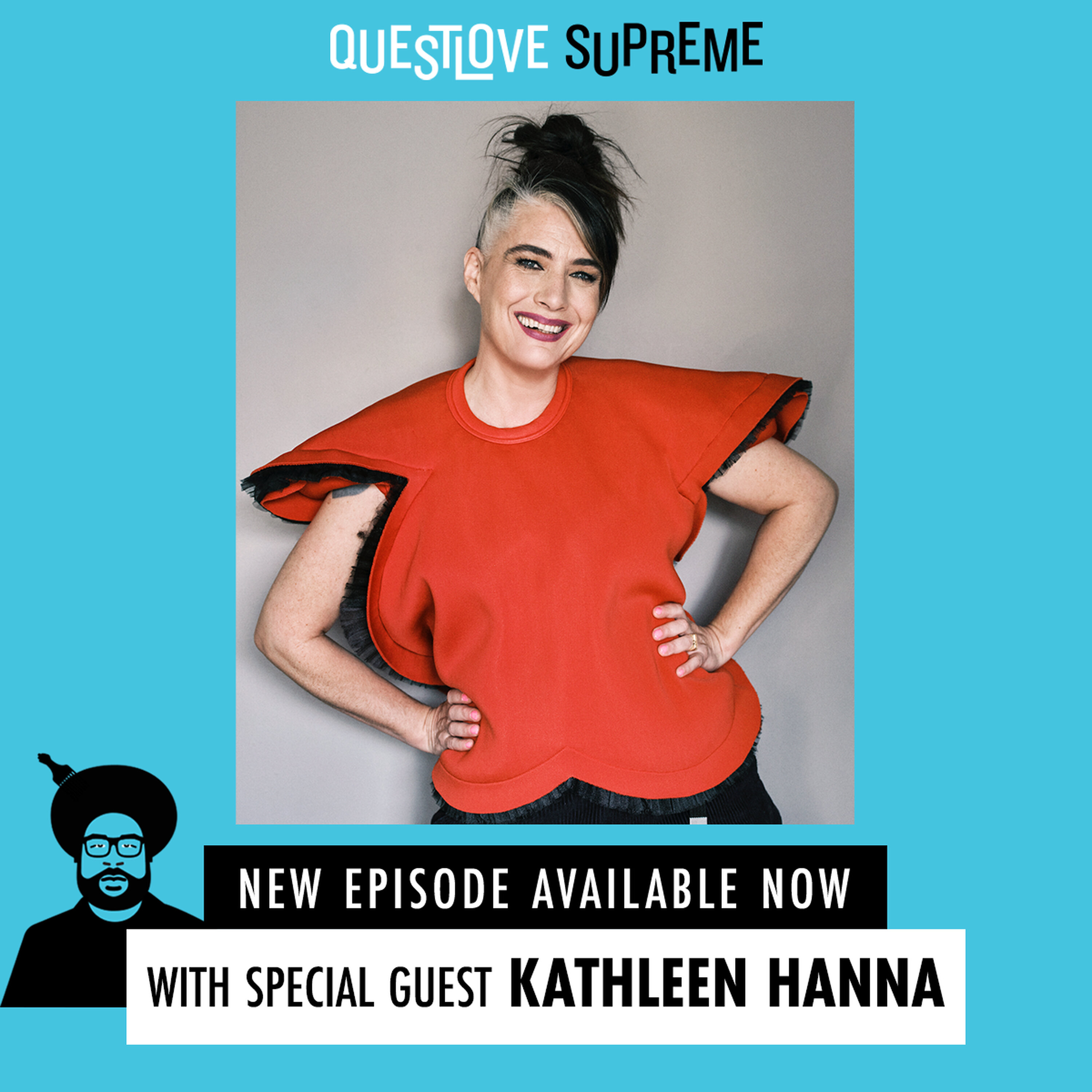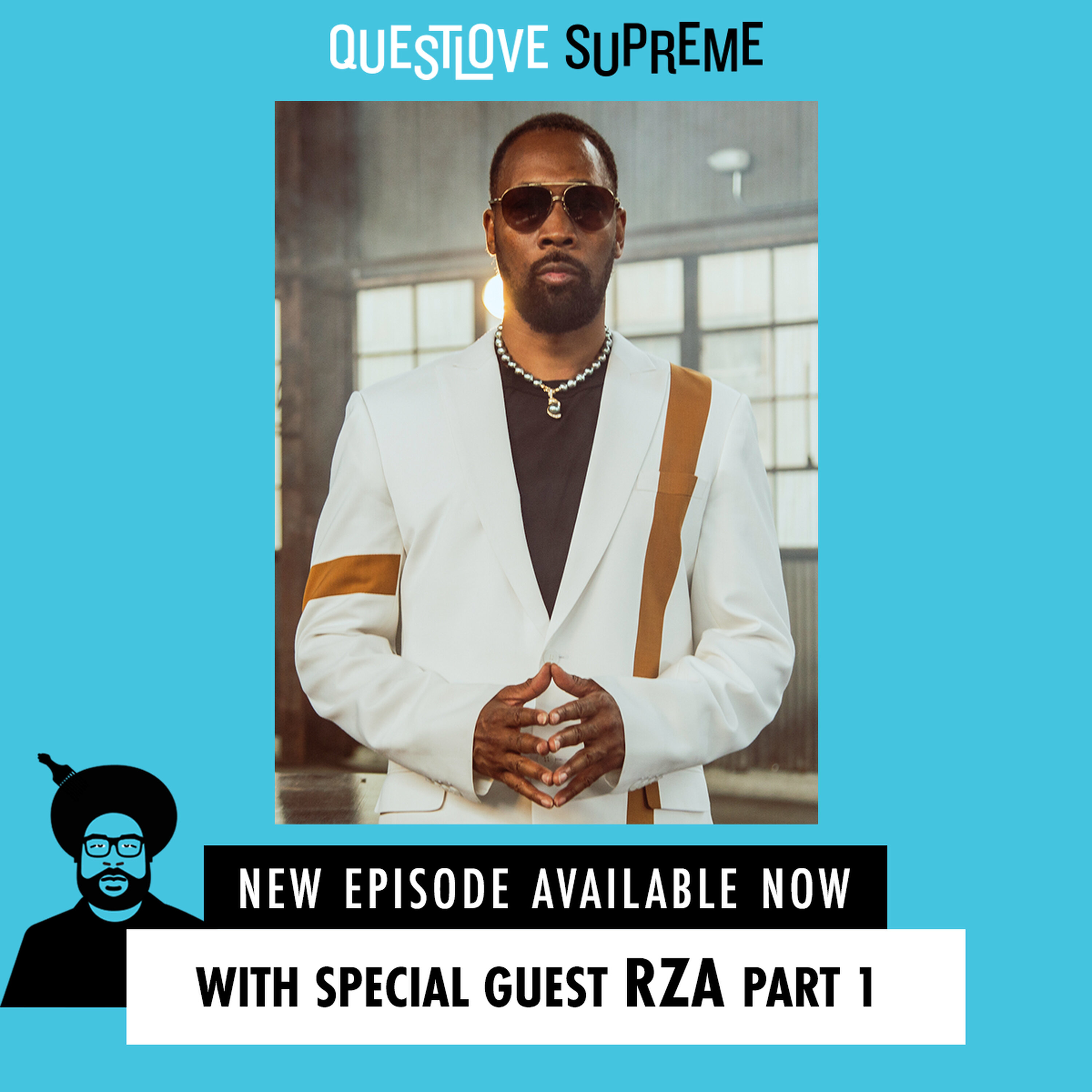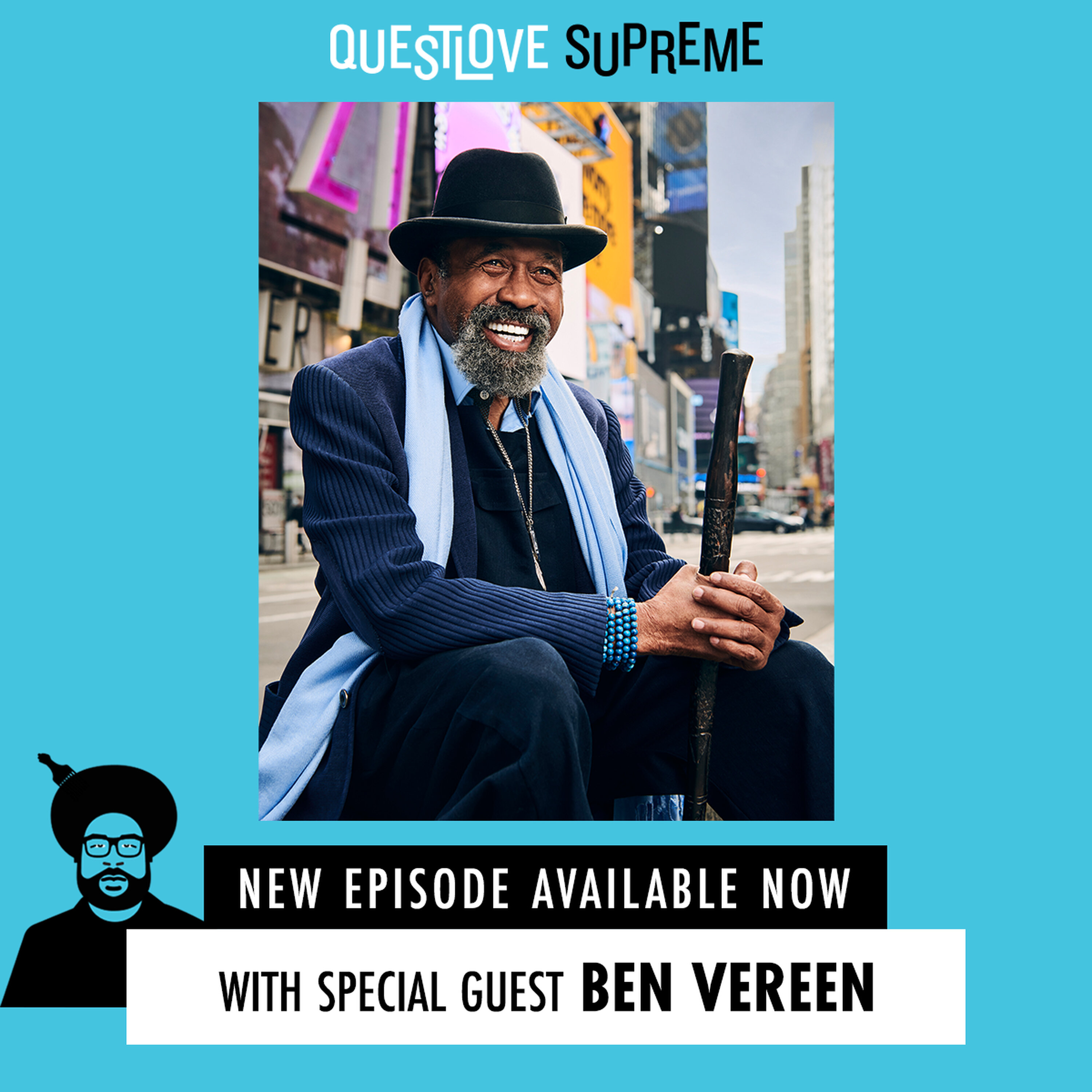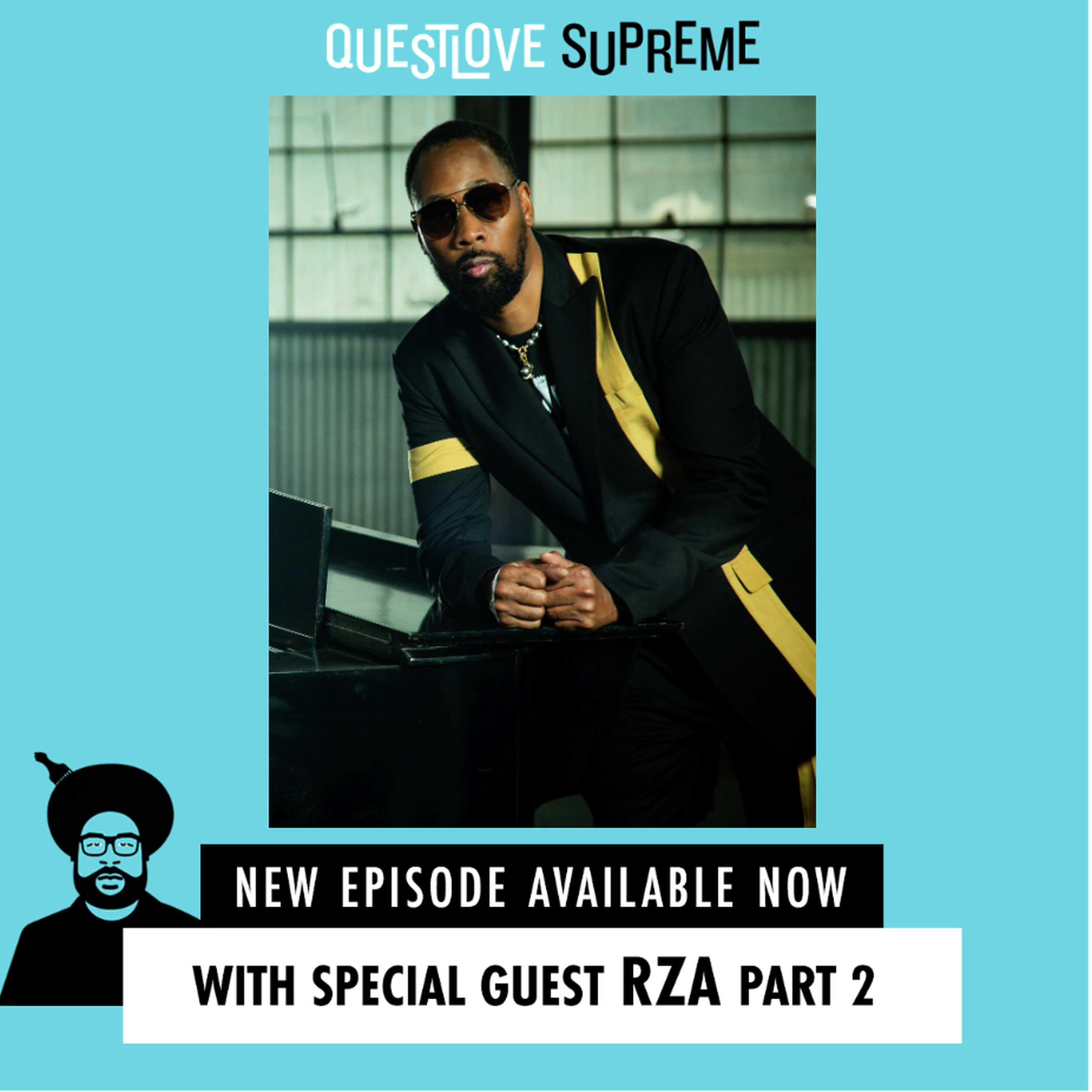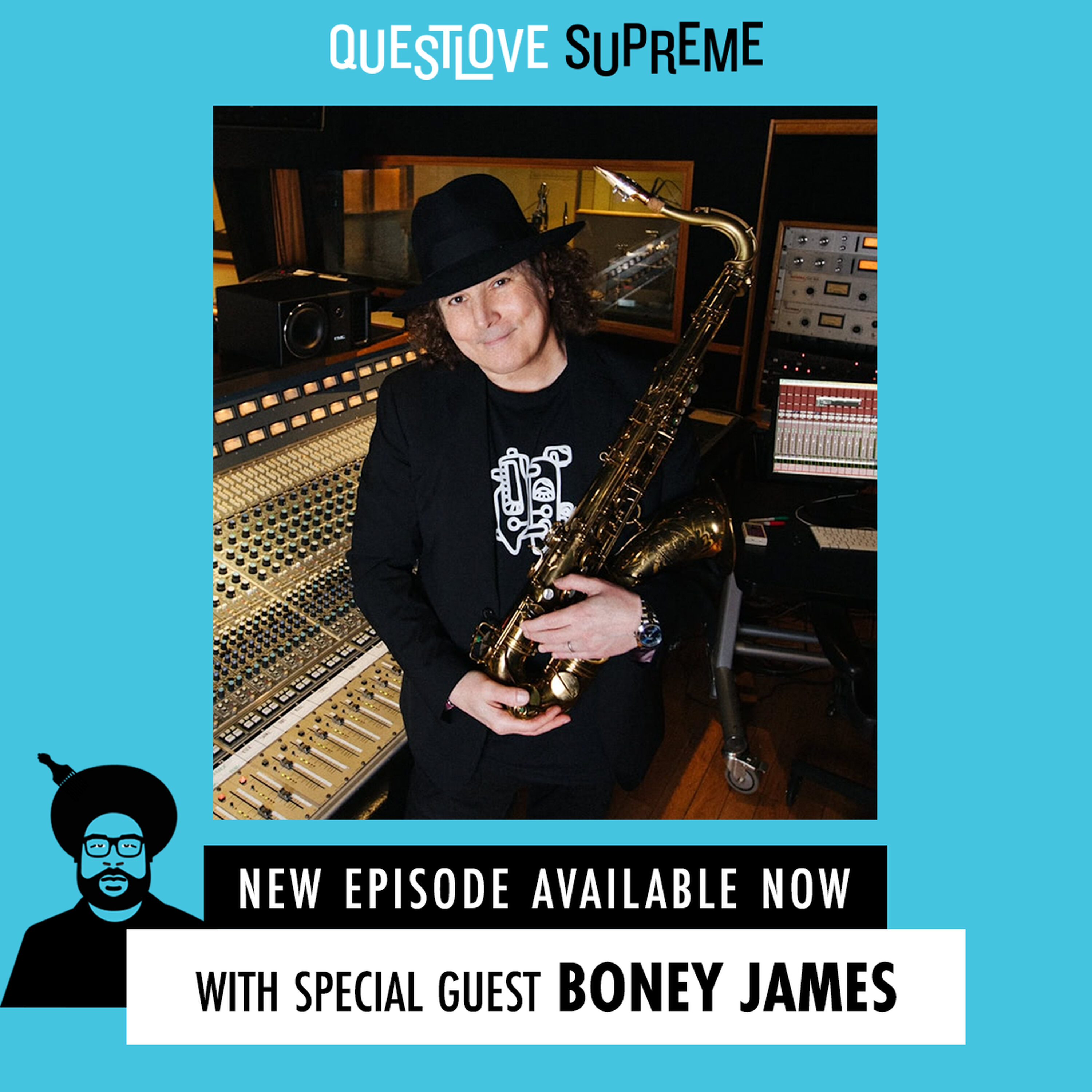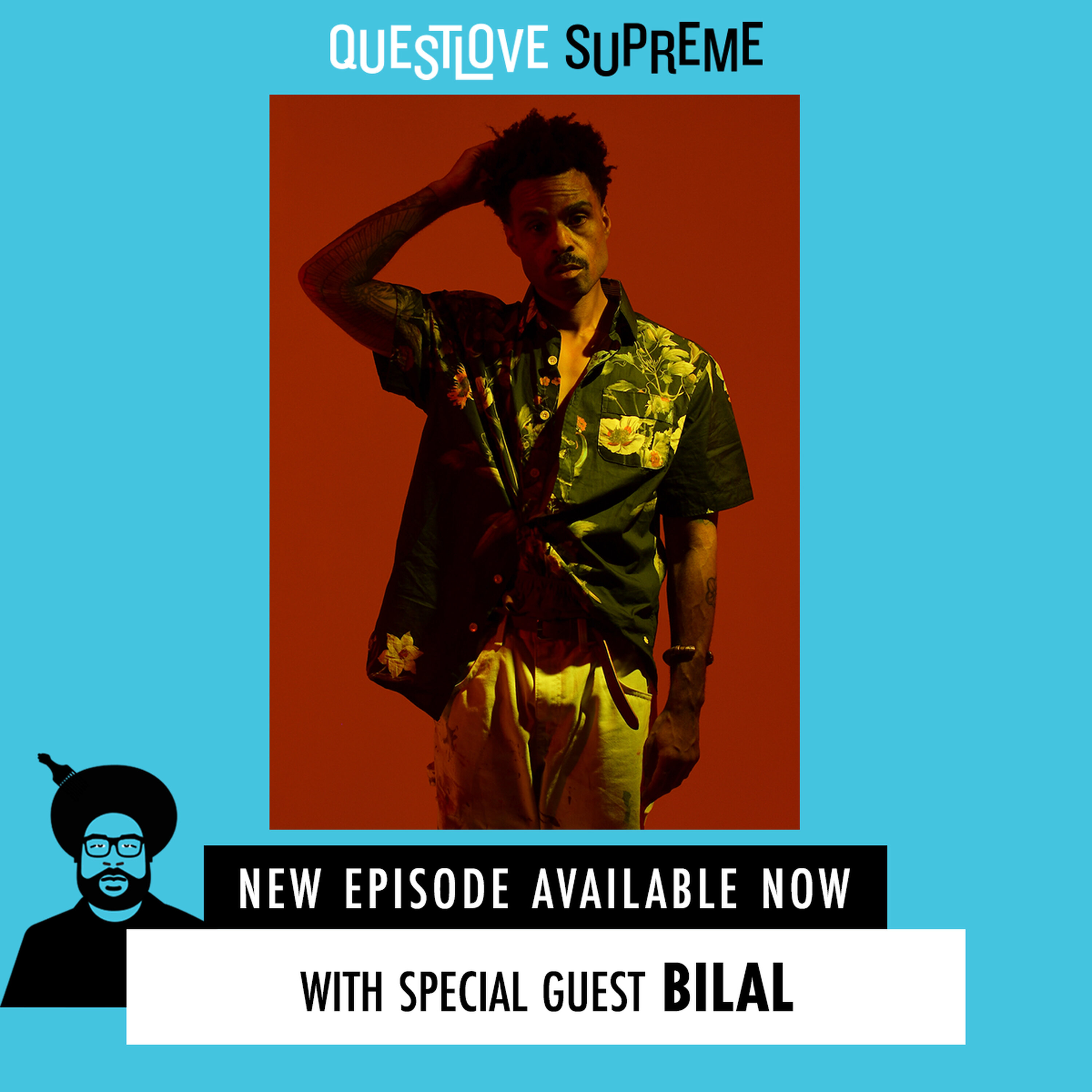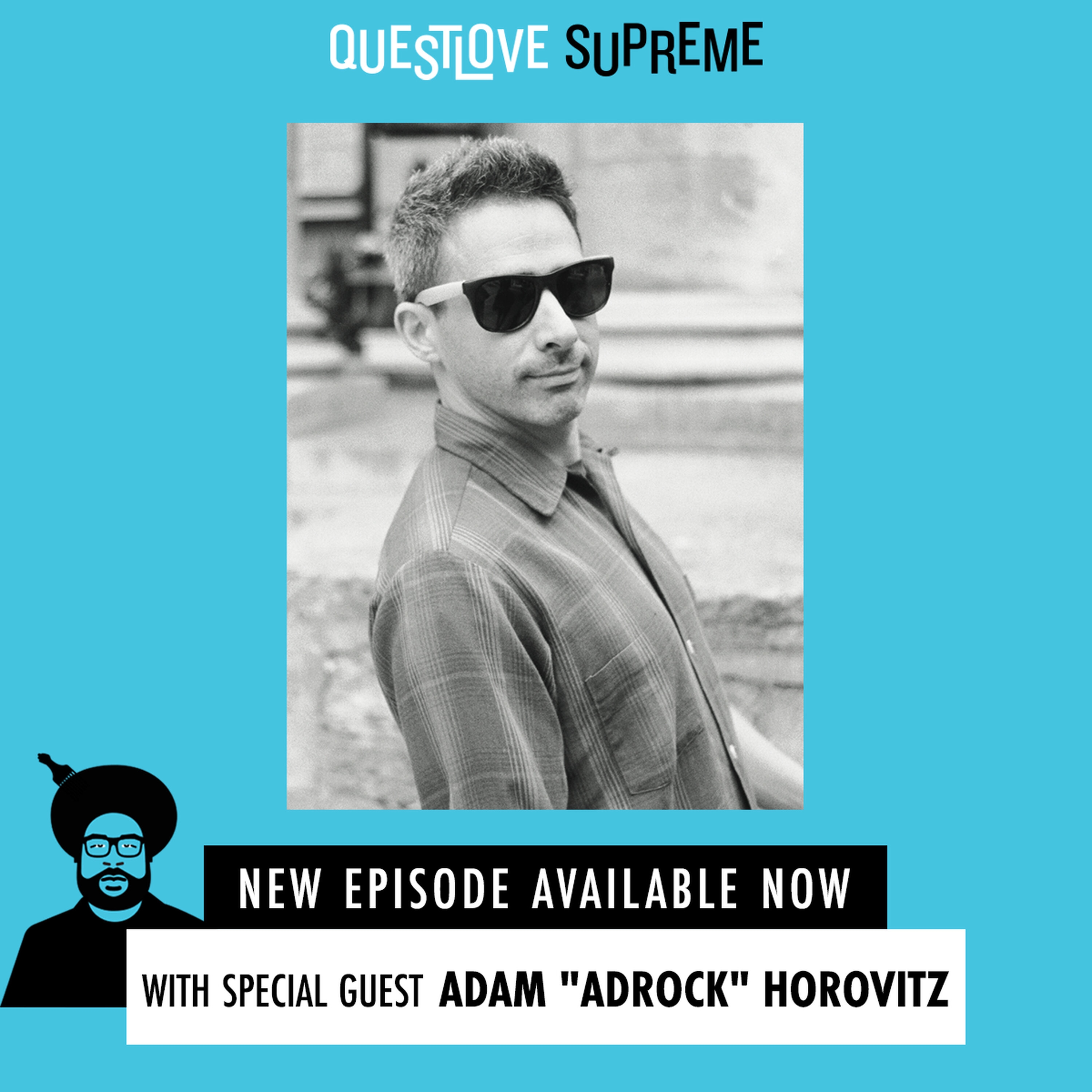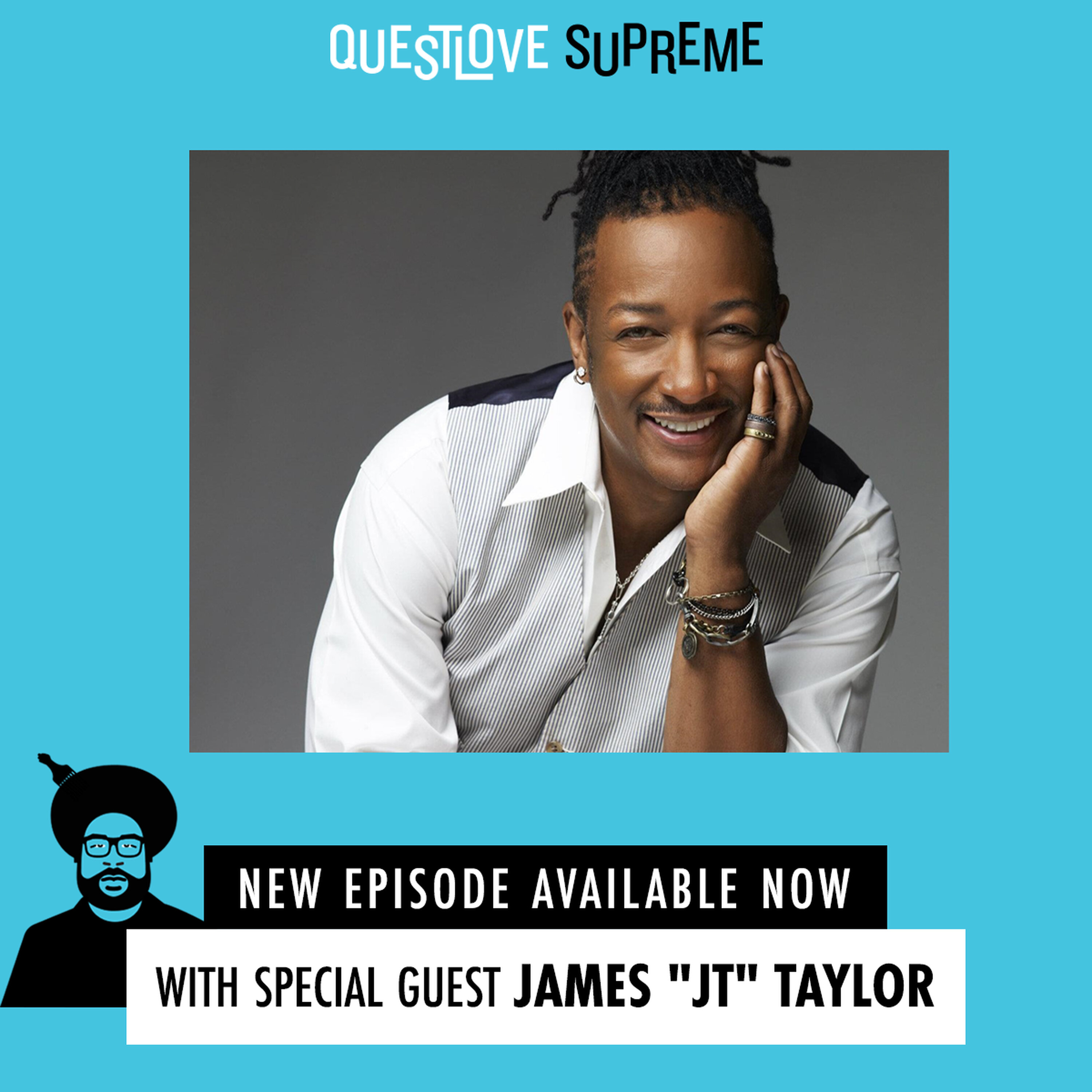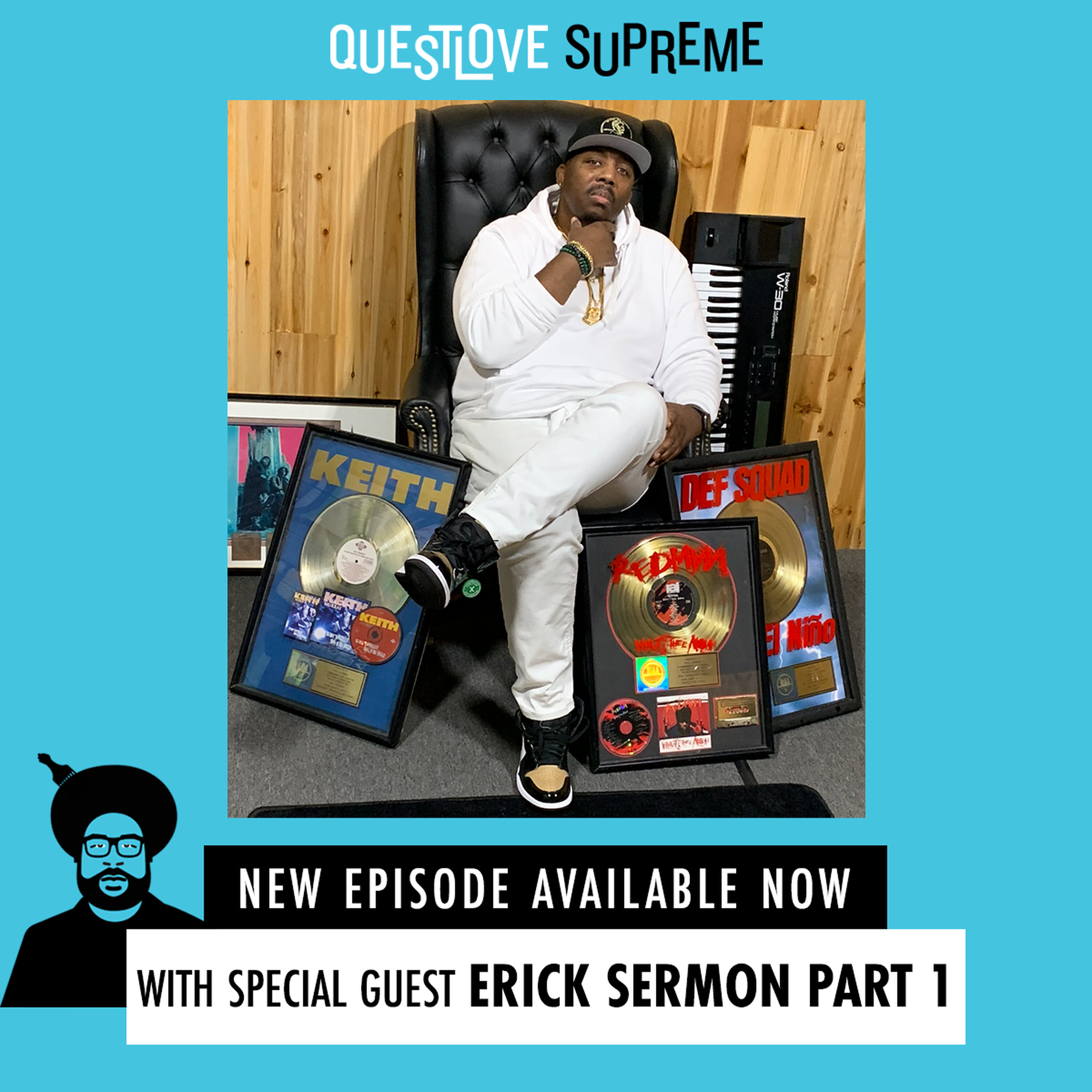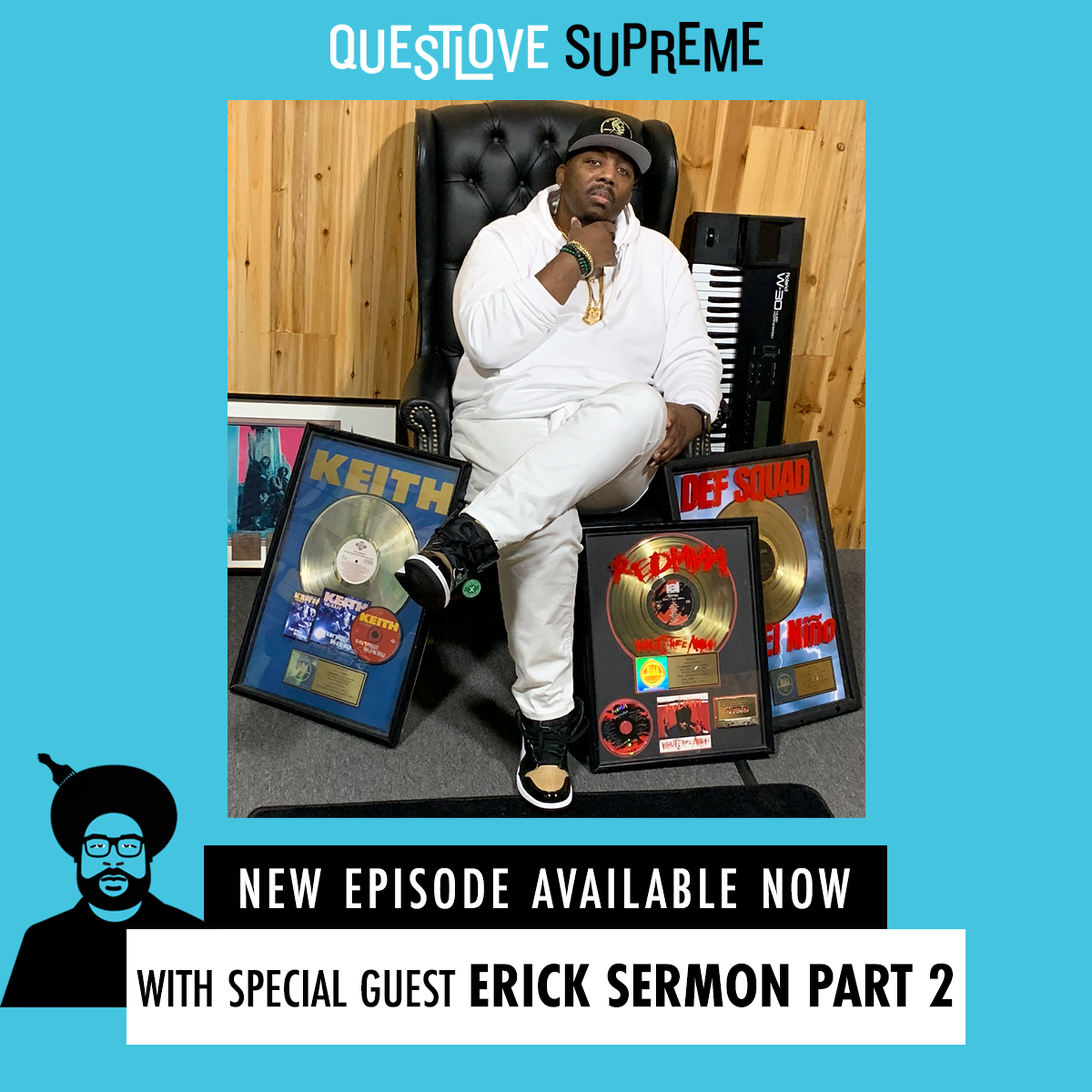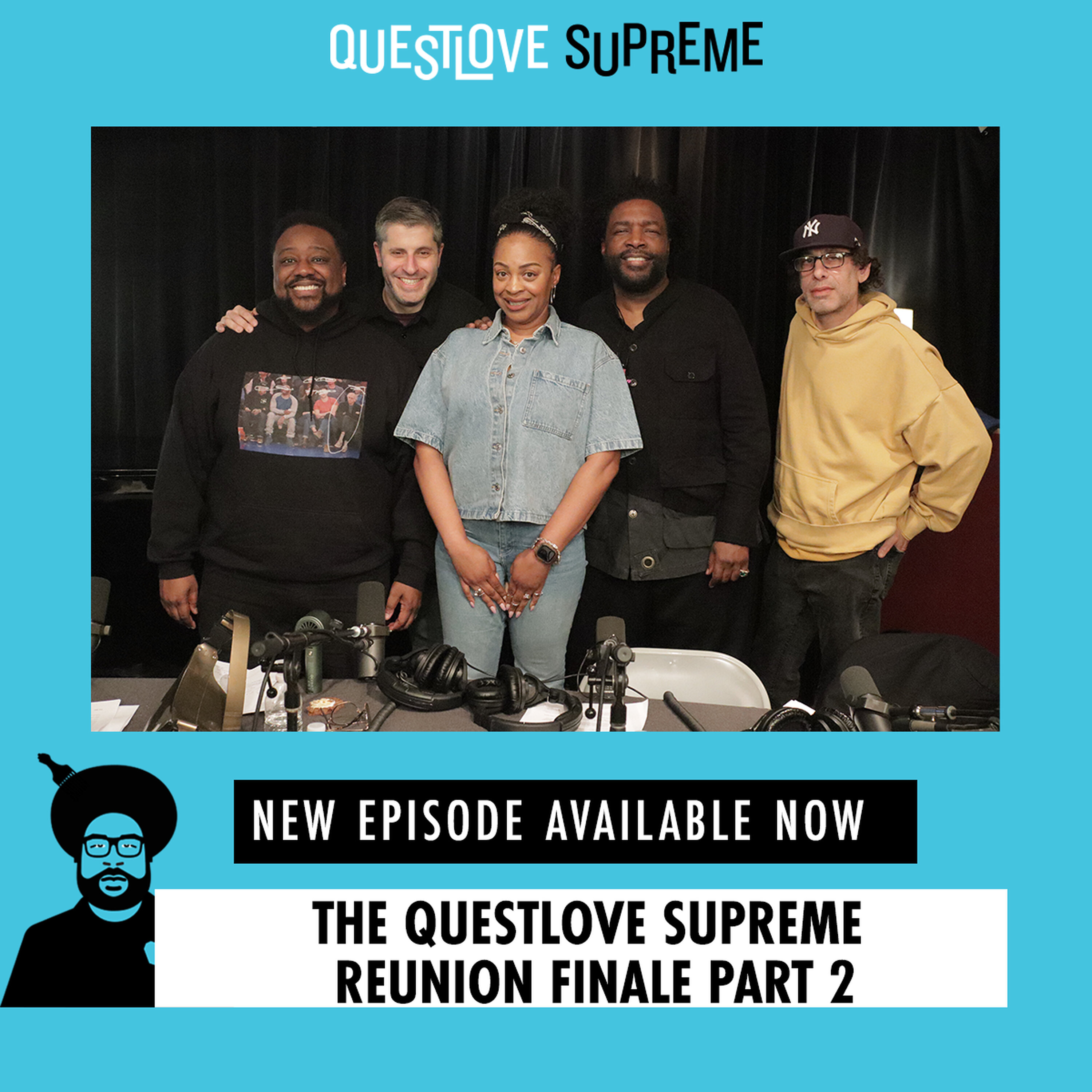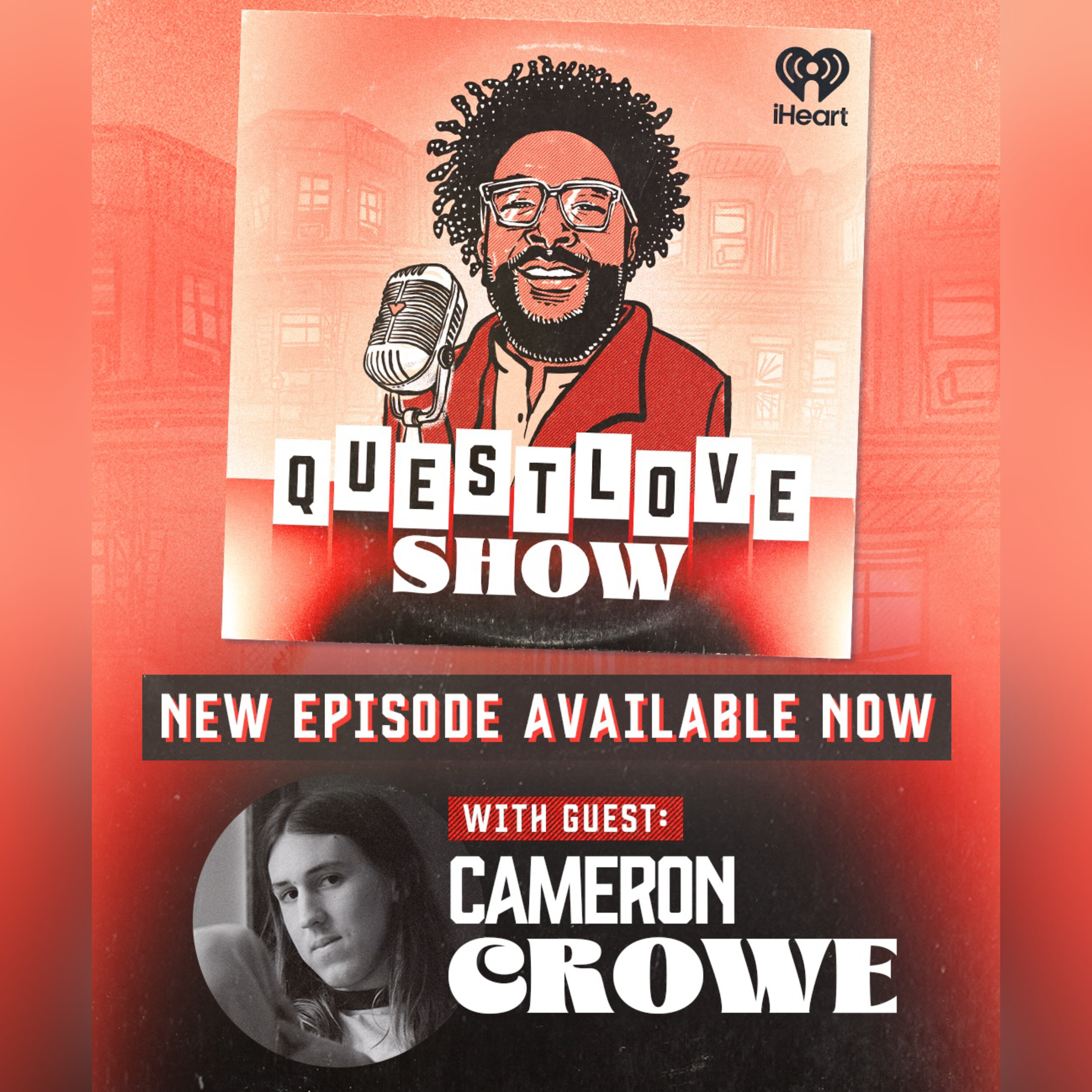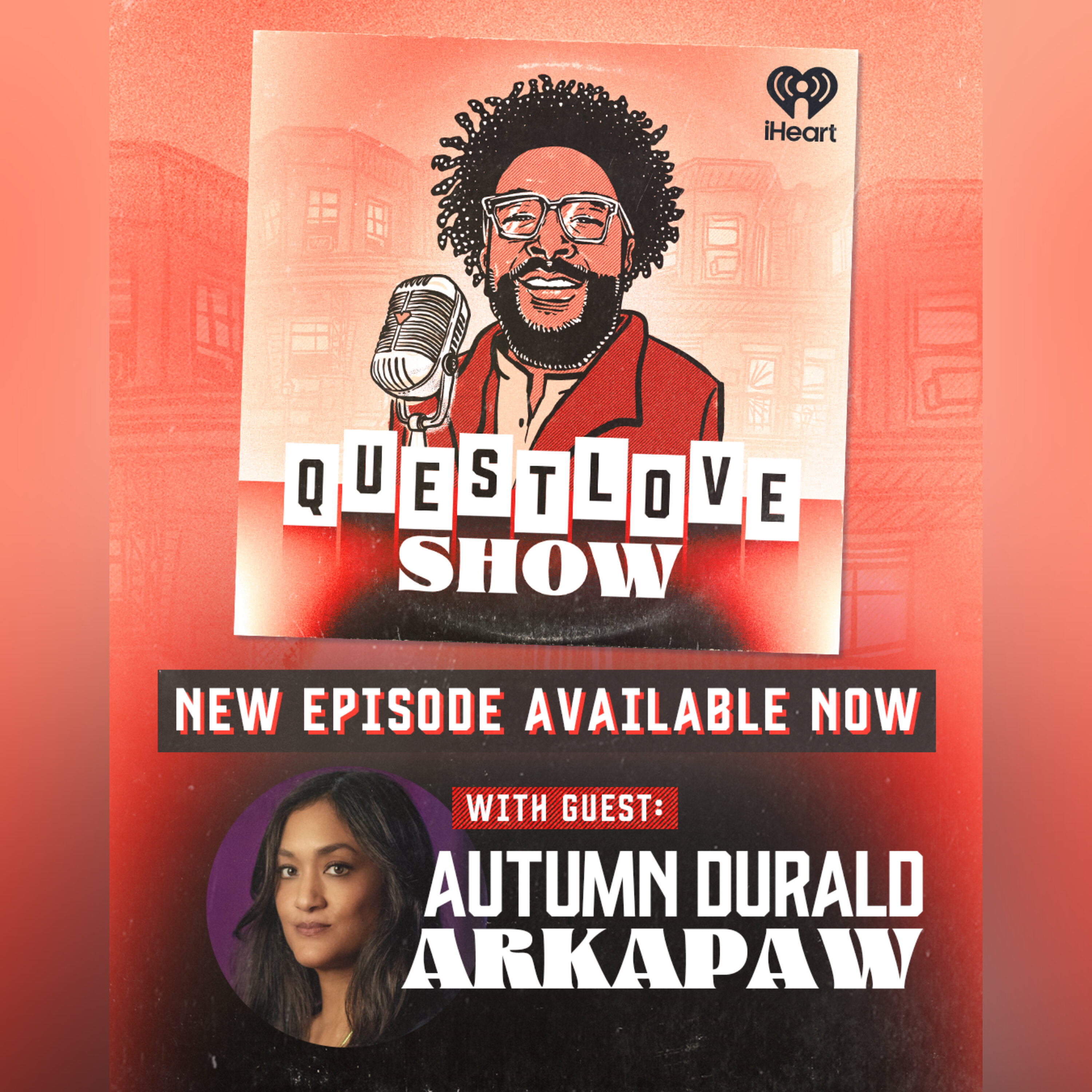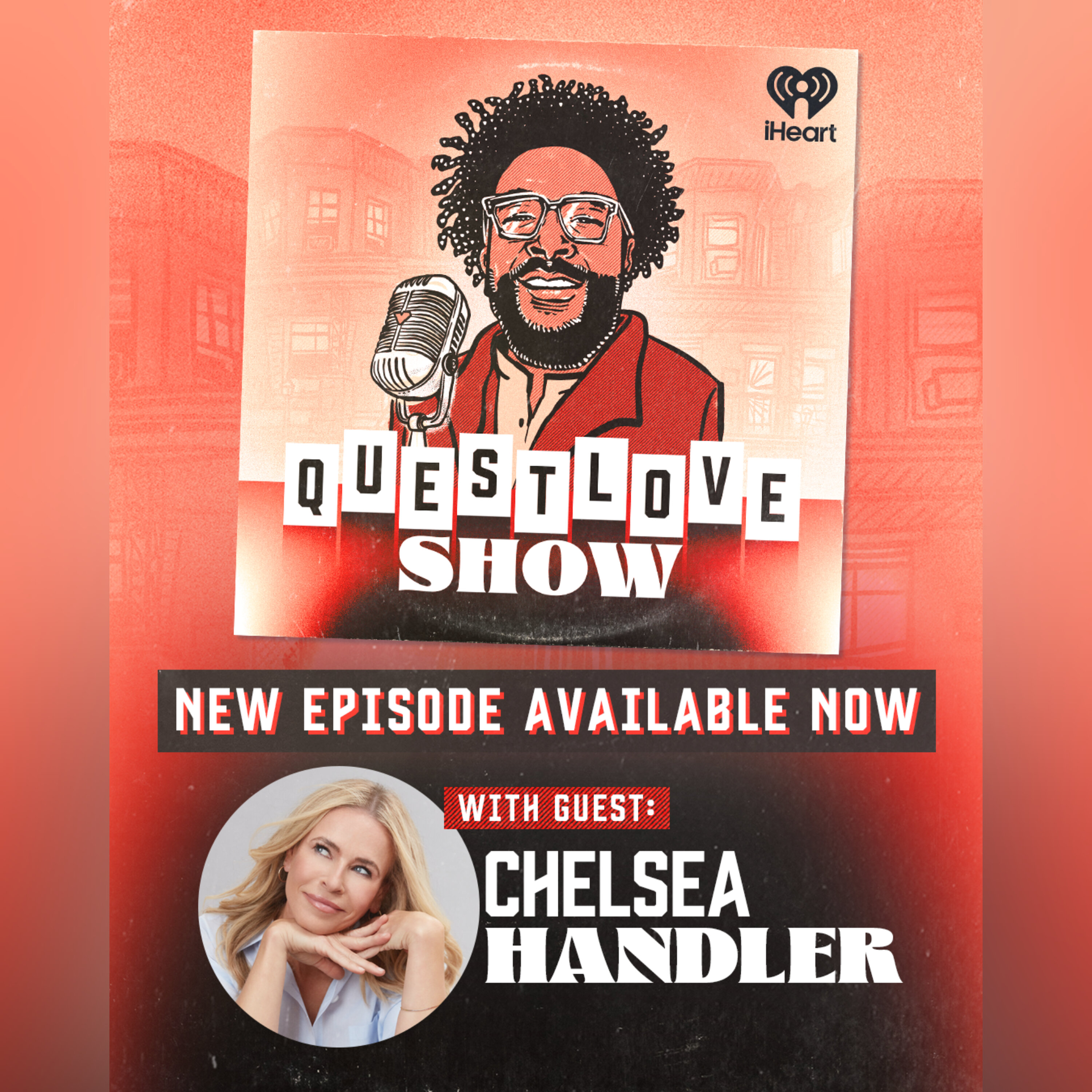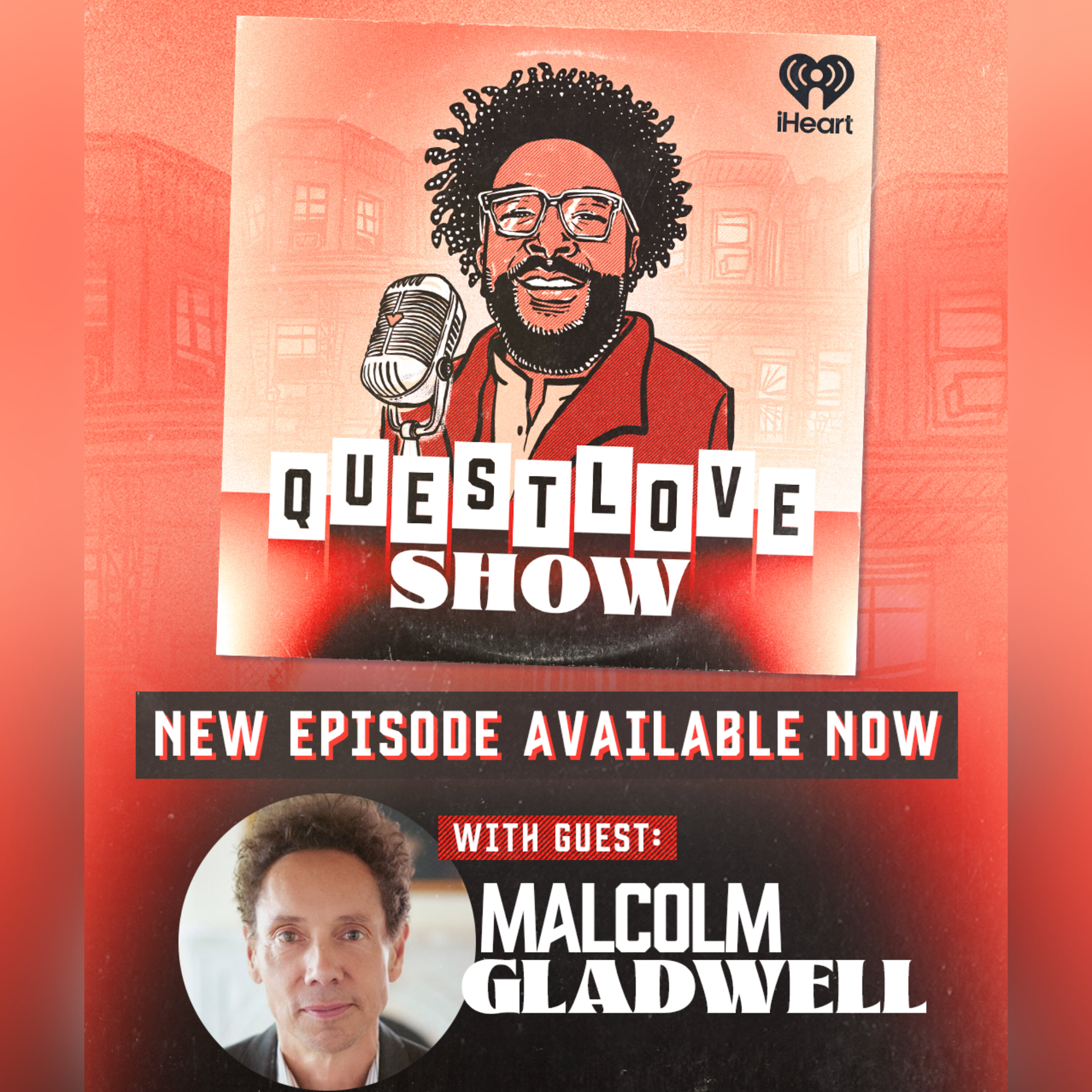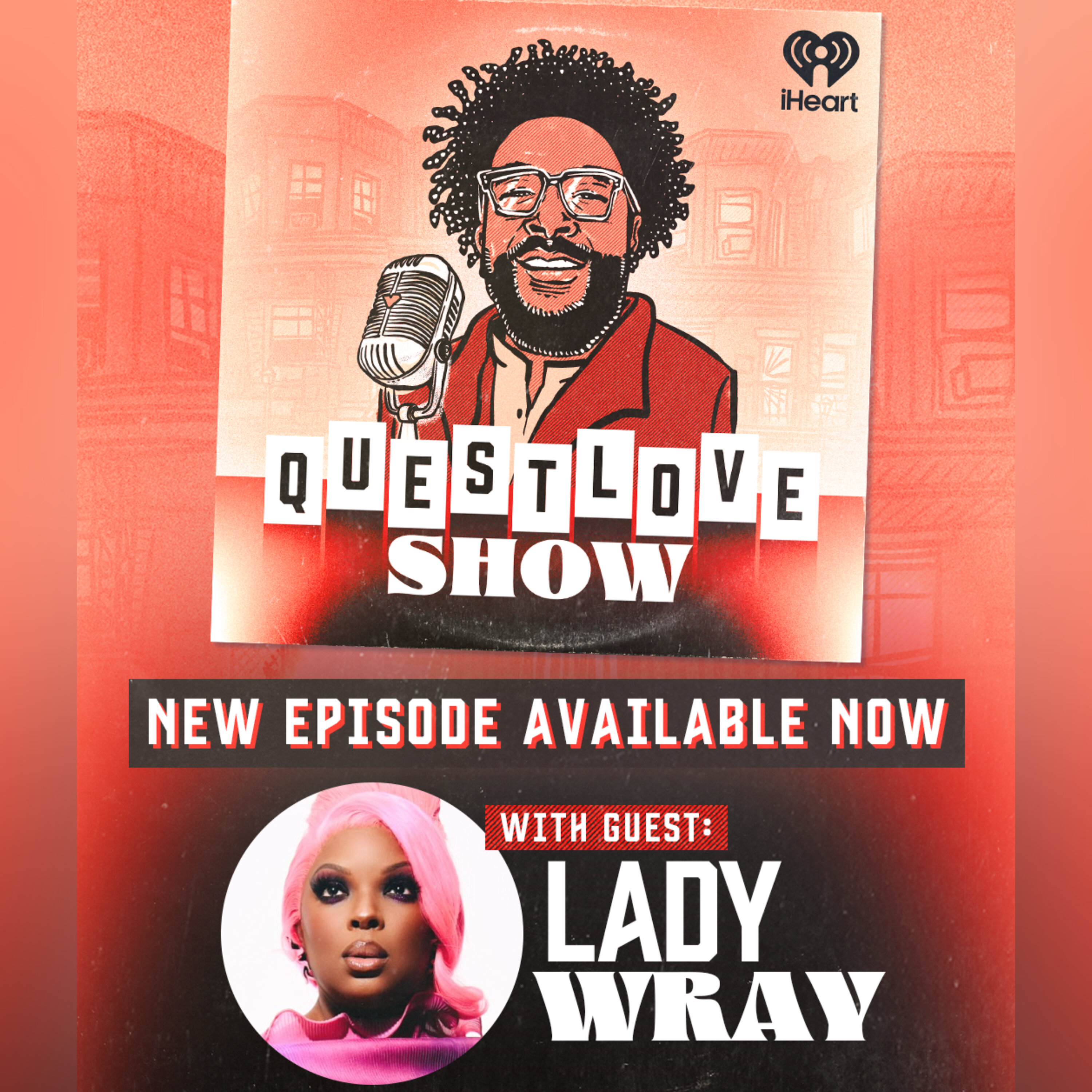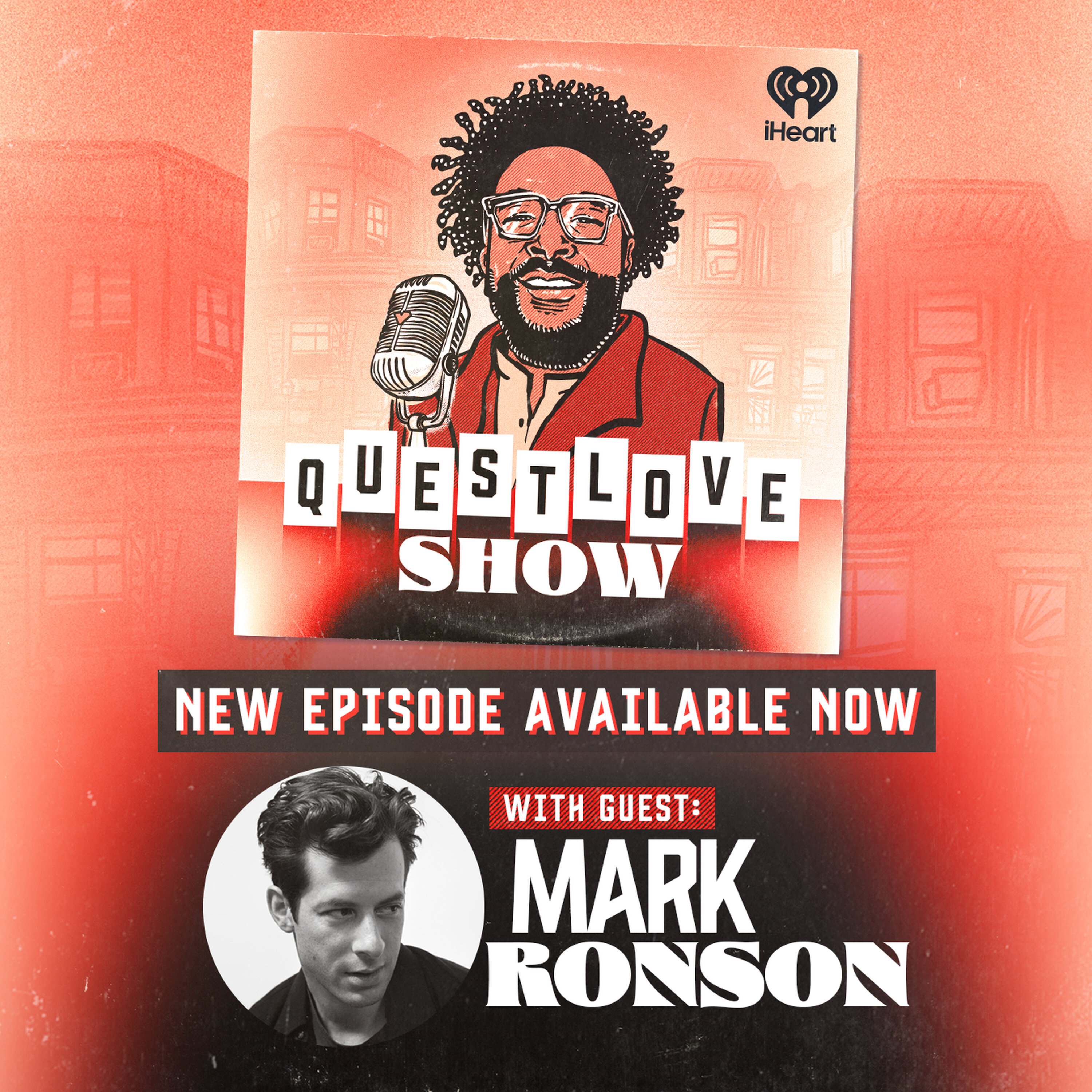Sananda Maitreya Part 1
In a special one-on-one conversation with Questlove, Sananda Maitreya discusses his early days. This conversation includes praise for Stevie Wonder as well as crediting Rod Stewart for his trademark rasp. Sananda speaks about time in Harlem and his ambitions as a boxer. Sananda also talks about performing at the 1988 Grammy Awards, with Michael Jackson, Prince, and Smokey Robinson watching from the front row, revealing some extra detail about that set.
00:00:00
Speaker 1: Quest Love Supreme is a production of iHeartRadio.
00:00:09
Speaker 2: Okay, I'm gonna try to not geek out as I normally do in these introductions, but and I will.
00:00:16
Speaker 3: Also try to hide my abundant enthusiasm before talking to such a pillar of culture.
00:00:23
Speaker 2: As just know, it is so weird that our very first exchange is going to be in front of millions of people. I will try to keep my composure of my professionalism. All right, ladies and gentlemen of Questlove World listenership. This is one of those air quote dreams come true moments for this podcast. Our guest today has a profound effect all my life, ever since his nineteen eighty seven debut, which yielded five singles that propelled him to the top of the charts. And it can't be overstated how impressionable he was to me in my life at that particular time, because I was just about to graduate high school and I was deciding for myself, like what is it that I want to do with my life? And clearly I didn't want to live my dad's dream of you know, respectable politics and entering the world of classical music. But reading our guests mind blowing interviews and mind you Like, you know, a lot of my idols and hip hop really weren't given the platform of a village voice, or of a spin magazine or of a rolling Stone. So reading his mind blowing interviews really had an effect on me. Reading his lyrics had an effect, watching and perform Hearing him sing had an effect his arrangements, his production and fun. Fact, a lot of you are going to be mind blowing. That are Roots fans. His liner notes, okay, his liner notes, credits, yes, credits and liner notes. I literally didn't know that these food delivery box could be an instrument, like so just his sixth sense of humor in music and on his line like literally longtime Roots fans who still to this day, despite the fact that I have written eight and I'm plugging My hip Hop's History came out last week, but my eight New York Times bestsellers, despite the fact that I have eight books, Roots fans complain to this day that and despite the fact that there are no more tangible well not no more, but you know, tangible objects like cassettes or LPs or CDs or a trex is not the primary way that we consume music. To this day, they still ridicule me for not doing epic liner notes, not knowing that our guess is single handedly responsible for that side of my life. Yeah, I'll definitely say forty percent responsible. I don't want to dismiss you.
00:02:54
Speaker 3: I have to cut you off now before you You're embarrassed both of us.
00:02:57
Speaker 2: No, no, man, let me, let me. Let me just gonna get to the end, because I know when love is projected, we somehow try to avoid it, like the Matrix. I get it, and if the other Team Supreme people were here right now, they do the same to me. But I think it's important that we give flowers and really show respect to the gods.
00:03:18
Speaker 3: So I really appreciate that.
00:03:21
Speaker 2: But literally, because I was aware of his life transformation after his first five records, it wasn't until D'Angelo and I were making Black Messiah around like twenty eleven, twenty twelve that D'Angelo will hit me to the fact that I missed like seven or eight albums and not believing what I heard, I pulled my phone out and realized the mountain of music I missed, and I have not been the same ever since. I have always wanted to say this, Welcome to questlove supreme. Wow, Sanata Matreya, thank you so much for doing this.
00:04:00
Speaker 3: Thank you for having us. And also let me say that we're basically two geeks speaking to each other because a lot of what makes us, speaking of us both collectively what we are is that particular attention to detail that being a geek bestows upon you, because when you're a geek, it means that you're paying attention to extra things that others are not. And then when you have a chance to contribute yourself. I mean, I often have said to people if I write certain things, while I do a certain things a certain way, I said, these are for the people who.
00:04:39
Speaker 1: Are like me.
00:04:40
Speaker 3: When I could thrill a second engineer on a Stevie Wonder record when I met him like fifteen years later, because I actually knew who he was by his name, okay, and the fact that you knew what Stevie record it was and everything, and they were like so thrilled. It's like, Wow, what a gift to give back to someone simply because I was a kid like you who devoured everything. Okay. I feel a p Funk record if it was a Beatles record, didn't matter. If I got for me, the only thing I missed about the old vinyl days, really is this artwork space. Yes, you know, the presentation. You had to make a title, you know, and bring a completely different stamp on the world before. Unfortunately, we began to put thoughts in your head as to the context of the song by the videos, Whereas once upon a time, it was the song meant what whatever it triggered in your imagination, that was the video that was created.
00:05:39
Speaker 2: But oh yes, I want to share something with you that I don't think the world news and I can't say her name properly, but there's an artist right now, a very significant artist who is held back releasing videos, yes, or a particular album, an emic album. And I found out maybe four months ago, went to go see this particular artist in concert, said how great the show was, and noticed that I saw certain visual clips that weren't out in the world. And this artist tells me, hey, you know, you're actually partly responsible for this, and I was like, what do you mean. So when this artist released a record, I said, you know what I love about this album is that because there were no videos initially, because of course I thought there was going to be an onslaught of videos that I said. It took me back to the time where I explained to this artist when the album came out, that I had a when Stevie Wonder's Journey Through the Secret Life of Plants came out that for me was my dark side of the moon. Like my dad hated that record, so he was like, here, you take it, and I took it, put the headphones on and just closed my eyes and imagined, you know, and basically said that I don't want videos for songs in the Key Life or any of Stevie Wonder's seventies records because in my mind, I have a picture of what I see, yes, because synaesthesia is real, and I, you know, I was just making a passing comment that, you know, it's great to experience this record without the videos telling me what to think. And I didn't know that I held that much weight. And I guess on the ride home that must have been a straw that broke the camel's back to say, hey, we're gonna not release videos because I want people to experience the music.
00:07:40
Speaker 3: And I remember getting Journey Through the Secret Life of Plans as a Christmas present one year for my aunt who worked in sears so yes, and so she got it for me. And I remember I was just on the cusp where I was allowed to listen to stuff inside the house that wasn't gospel. But I remember going out to our car and with my littc casette and just playing it because I absolutely I mean, if it's not clear, it should be that Stevie was one of the absolute pillars of my entire consciousness as a musician, as an artist, as anything that I perceived myself to be. He and the Beatles are kind of just right there at the foundation of how I started to envision music. So I loved that album saying well, you Loe, that doesn't mean And the thing about Stevee was he was like the Beatles were for me. He was a master class in all of it, songs, arrangements, instrumentation, He was a master orchestrator, Like they told him this motherfucker, you know. And it was like just the way he brought further dimension of consciousness into the music, just by his understanding of sounds and how sounds trigger us alone, it's just not enough it's spoken about that. Sometimes I wish our brother Stevie was was white, just so that he would get much more intellectual appreciation. Yes, you know, because he really the only peers for me he had on the level that he existed was the Beatles, was like Brian Wilson, like these these extremely rare contemporaries who are like the Schubert, Beethoven, Mozarts of their time. You know. So I'm with you all. It's interesting that we have that journey through the secret life of plans connections. And also before we travel further, I want to thank you so much for just your contribution that you've made since the roots and since first coming out and just expanding your whole empire of consciousness onto you know what for me culminated in this Oscar that you I was so happy that you won and you make such a memorable year as well.
00:09:57
Speaker 4: Yeah, that there's a life changing year for me, man, because I really appreciated.
00:10:03
Speaker 3: You know. One of my claims to Pride is that I was born the same day as Sly, So you know, I remember Ifroen Prince saying, you fuck are you're born the same You and Slive born the same day. You know what I said?
00:10:17
Speaker 2: You do that?
00:10:18
Speaker 3: Yeah, yeah, yeah, yeah, wow. No, I'm not sure if Sly knew it.
00:10:23
Speaker 2: No, no, no, but Prince knew that.
00:10:25
Speaker 3: Yeah.
00:10:26
Speaker 2: Oh okay, wait, I gotta ask one question. There's so much I want to learn about your story and your journey, but I've been dying to ask you this question for at least three decades. Okay, yes, and you already mentioned his name, so I had to ask. Okay, February of nineteen eighty eight, mm h, you are about to walk on stage. Yes, And Smokey Robinson's in the audience, Stevie wonders in the audience, Bono's in the audience. Michael's in the front row.
00:11:00
Speaker 3: With the red fucking jacket that you couldn't miss if you were Stevie wonder Yes.
00:11:06
Speaker 2: Princes in the front row. I think that's the first time where I tried to like channel vicariously. How does a person give a pitch perfect performance when literally the pillars of gods are literally like in the first three rows watching you. And the thing is is that I know Michael has an attitude because like that was also a weird night for him. Yeah, that was sort of the very that was the seed of the beginning of yeah, his you know, his future and also.
00:11:40
Speaker 3: The beginning of mine.
00:11:43
Speaker 2: In soundcheck. I always wanted to know this because when I do award shows and I go soundcheck, you know, they put those big giant cards on the chairs and you.
00:11:50
Speaker 3: See name, name name.
00:11:53
Speaker 2: So when you're sound checking, you see, like, who's going to be watching you? Because you still gave a pitch perfect before?
00:12:00
Speaker 3: Thank you?
00:12:01
Speaker 2: What was that day like or was it just so numbing that it wasn't a footnote for you at all? Or well?
00:12:07
Speaker 3: First of all, the thing is is that at some point you do feel that parallel realities are real. You know. I used to explain at the very beginning what freaked people out most around me was that I had told them exactly what was going to happen, and it did because I had this sense even then that what I was going to do I had already done. But this was just kind of a time shift. Or because this dimension is at a slower rate of frequency than the dimension in which I've already done this, it just takes time to manifest. But I just had this but I've done this already attitude that informed so much of where I was coming from. And I say that because sometimes I mean still to this day, I can be in the vocable singing, and I have this almost outer body experience where I hear that the voice isn't coming from me, it's coming through me. And I'm basically literally capable of standing in that space where I can see the difference between something that originates from you and something you're just bearing witness to as a witness to a process. And a lot of times that happens when it seems like the reality that you're about to walk into is already so surreal that you might as well just have that kind of other dimensional experience. I said, say this, you grew up watching the Grammys. You grew up dreaming that one day would be you okay, and then but what you didn't dream is that damn there, like you said, every one of your like heroes and this in the front row. And at least it distracted you from the millions and millions and millions of people who are watching it. That was like the good thing they distracts you from it. But during the sound check and what have you, I just don't pay that much attention to those things. I really don't. I focus out, I get my game head together, I understand what I have to do, and I know what I have to do to achieve that level. And one of the things that I did have to do was I always shut people out before the gig. I never saw anyone before a gig, and of course you get a reputation that people don't understand as being aloof for arrogant or whatever.
00:14:30
Speaker 2: You meditation.
00:14:32
Speaker 3: Meditation, Yeah, to put yourself, put your game face on, getting that zone, call your spirit together and all of that. But here's the secret is the killer. Fortunately that gig was in between a tour that we were doing anyway, we were already touring the States, and before I left London, a fan of mine from California had said, I'm going to be like shipping you something that will be waiting for you when you get to whatever. My first destination was Miami or Orlando or some Daytona, Florida, Okay. And so I got there, which is where I took the band to do production Mirossalsuse. I grew up in the Daytona Beach area and I wanted to return there for production mirousals for the American tour. And so when I got there to Daytona Beach, what was waiting for me but a nice stick packet of shrooms. Okay, So I took the schedule, which I remember was forty dates, and I picked about eight to a dozen, eight to a dozen that I'm gonna do shroom here, I'm gonna do it shroom here, I'm gonna do air. And it was like it was just a crazy great experience. And I had no intention of doing that that night, But when I was sitting in the audience and I could see all the silhouettes and all people in front of me and just the spectacle that it was, I just thought I should be high. I mean, this is not right, and I'm just being honest. I was never like a cocaine guy or heroin guy. I was. I was in the like even as a child. I understood if it kind of gave you a different perspective on some shit.
00:16:13
Speaker 2: I think it brings you closer to God personally. Yeah, I'm a new microducer. I started microducing, and like before twenty twenty nothing, I didn't drink none of that stuff. And then you know, once I started meditating and all that shit, you know what I mean, Like I started yeah, microdocing.
00:16:32
Speaker 3: So as I was getting closer to being called if I'm not mistaken. I think even Madam Whitney performed that night, okay mistaken. It was just an onslaught of like just genius bitches. And I was like, okay, look. I turned to my baby mama, my English daughter, Sarahina, and I say to her, yeah, hooked me up when of them rooms buds right, because she she had brought a few emergencies. Just break just take emergency, I'm saying. And I just said and she was like, looked at me, like are you sure? I was like no, no, no, give me. So I took one, went to bathroom booming. Next thing, you know, I was able to get out of my head and leave that performance because you know, it was also important for me to address my the heroes that were present that this is the effect that you've had, This.
00:17:19
Speaker 2: Is what you dude. I said that. I said, Wow, I wonder if they're sitting there thinking I felt this, No, but not that, but I felt like, because the thing is it's also your thing is so deep, like it's not your version of the microphone tricks, isn't James Brown's Joe text? Like literally, people don't know that Joe Tech started that shit, Like the pioneer never gets the credit. There's always the second person that sees it and perfects it. Yeah, and James Brown is world famous for his derivative borrowing, but you know, yeah, he's still the god. But even to the level where you started doing a microphone like in your history of performance, I was like, oh wow, he even knows Joe Texa's level of microphone mastery.
00:18:09
Speaker 3: And a lot of that stuff is channeling really, because it is a collective, whatever name one is comfortable giving to it. You know, if I'm in a certain comfortable space, I don't mind calling it the Holy Spirit, because ultimately that's who I believe, that's who I know. I'm belonging to the service of. Okay, I do believe that many of us artists, this is precisely why we're here. I mean, I'm asked often, why are you so prolific or how you create so easily? I said, that's a simple I've never seen myself as separate from the music. I'm an extension of the music. The music is not just a concept. It's a real spirit and it can create life, just like a lot of other spirit has the power to create life. So I just believe that I'm a form of music in a human life, and therefore there is no separation between me and the mus and the music. It's just at one with my expression. And this is basically what I've always known that I was in the service off because I don't really believe all of these gifts of mine. I believe that I have been, that this is my karma and this is my service, and we're selected for our fidelity because everything that I have, everything that I've endured and been able to endure with whatever grace has been I've been able to summon from the reservoir of mercy, is simply by understanding that you know, I was taught in Sunday School seeking first the kingdom of having in its righteousness, and all these things will we added onto you the way I've lived that, the way I've interpreted that my life is the muse telling me listen, is the deal you served first and foremost to the utmost of your fidelity. You serve the music, you serve the inspiration. Hear it that you're giving, and we will look after your life. We will find the right woman for you. We will find what you need because we know what you need and we know we're not gonna give you more than you need to be a distraction from the work that you're taken upon yourself to do. So you know all of that's a part of it, and you know that's that's what we're in the service of. So basically, yeah, it's their moments. When it's the same, it's like I rarely will drink or whatever, but if I feel like I need, as any performer, to drink, to take a shot of whiskey, to just kind of like center myself in the in the purpose thereof that you do what you gotta do.
00:20:45
Speaker 2: For our listeners that are not aware, where's your beginnings? Like, where were you born?
00:20:51
Speaker 3: I have the great, great fortune of being stamped by arrival in the great Borough of Harlem, h and the magnificent year of nineteen sixty two, the year of the Fender Jaguar, the year of the New York Mets, the year of the Rolling Stones. Okay, there you go, nineteen sixty two, and then I was basically we were actually from my people were from Newark. I also proudly claimed that East Darns connection, because, as you would know, East Darnes has produced an abundant amounts of bitches that were like making sense, you know what I mean? Yes, I think even Shaq Shaquille comes from Eastars And even my mother's history is kind of wound around Madame dion Warwicks, what could have been, what happened, what would happen if type history. So we came from that area. But my mother was the beloved eldest daughter of the big pastor of Newark, the Pentecostal Church, and when basically my father seduced her, you know, it was shame upon your family and all that bullshit, And so basically she was kind of banished to a cousin in Harlem who also knew how to take care of her, to look after because my mother's mother died when she was thirteen. So we were banished into Harlem to live with a cousin. And it was basically two years after that we moved back to Jersey. So that's where I began. And I'm proud to say I was born in Harlem because it's just one of those vortexes on the earth that if you have that fortune to be able to do something with that stamp, you're a blessed person.
00:22:31
Speaker 2: Indeed, what was your first musical memory in life the Beatles.
00:22:37
Speaker 3: I was two years old, and it's the first not only musical memory, it's my first memory. I would imagine the thought. I almost vaguely think I remember a picture of my father being banished from my life, my biological father, But obviously I would have suppressed that if it was a negative emotion. But at the age of two, I remember she loved you. Yeah, yeah, and oh you no no no, no, hope, you don't understand. I want to hold your hand, and she loves you. That that is the earliest memory I have, and I just think it's so awesome that it was a musical memory as well, because nothing you know that that was the music that woke up my consciousness to the fact that I was existing in that life. So that was my first memory. I also remember seeing Breakfast at Tiffany's on television when it came on in nineteen sixty four. I think was also too or somewhere around thereabouts. And I remember my mother buying me some Batman cards because that was my first hero is Batman. So those memories around the same time, but they were all the East Orange, New Jersey memories.
00:23:50
Speaker 2: How long were you a resident in Harlem.
00:23:52
Speaker 3: I think no more than two years.
00:23:54
Speaker 2: I think my first two years just the general Tri state area. Like how long were you there?
00:23:58
Speaker 3: Well, we were there until I was about six or seven when we moved to Florida for the first time. Then we moved back to Jersey. Then we moved to Chicago, and we moved around a lot. I was my stepfather was a first evangelist and minister and then later became a pastor and all that, so we were moving around a lot. Plus it was just the way I guess the organization he was a part of was growing the time. But obviously things happened to us for a purpose which hopefully we can extract the better reasons of.
00:24:33
Speaker 2: Were they musical family as well? Like do you have siblings that sing as well?
00:24:37
Speaker 3: Or yes, everybody kind of sings, but my mother is mainly the one who sang. And it was apparently her mother who I sounded most like or looked most like, because her mother was I'm quite sure there was some hitten Sephardic Judaism that was hit in the situation, coming back from the times of Spanish and the Reconquisto whatever.
00:25:04
Speaker 2: Hell, it was the family tree, Yeah, I get it. Yeah, yeah, But there.
00:25:09
Speaker 3: Are a lot of similarities apparently between me and her mother. But it is my mother whom I get kind of that impetus. She was she grew up singing in the church.
00:25:18
Speaker 2: And most of my the artists that I interviewed that or at least of a certain age, kind of have the same story in which quote unquote secular music is contraband or not look favorably upon. So how are you consuming well, you know our listeners not like being a Prince fan was almost like detrimental to my life. And it's funny to hear him say, like, your parents were right to punish you for owning these records, but like were you allowed to purchase albums or how did you Some artists would say like, oh, Marvin and Stevie were allowed, but nothing else, Like how do you consume music? Are your friends in school telling you like what's hip or no?
00:26:04
Speaker 3: Basically, you know, you're in a culture whereas everything is around you. And what I wasn't allowed to do until I was about fifteen or sixteen was to listen to music in our house that I had from the outside. But at some point, you know, on a Saturday when in my area, Soul Trained in the American bandstand were back to back. Yeah, So, if I remember correctly, Soul Trained came on at twelve and twelve thirty American bandstands, and I was allowed that at some point, provided you know, I kept the noise down and what have you. But you know, you just heard everywhere else what was happening, what was around you. And there were people that were just ubiquitous that you couldn't you know, you couldn't avoid certain people. But the profile in my home was my mother was a choir director first and foremost by inclination, so we tended to listen to like a lot of choir music. There was like a lot lot of James Cleveland. There was a lot of like, uh, like Albertina Walker AND's Andrews, that whole that whole caravans Am Betrided, which should a documentary in and of itself, the minutia of the genius of black culture if you just did the caravans and you know, and Anaz and Shirley Sees and all those people, because Shirley was also one of the two women who had the most influence on me as a singer.
00:27:24
Speaker 2: O God, if I if I hear no charge one more time, it won't be a moment too soon, like every every day that sons on an ausehold.
00:27:34
Speaker 3: But she was in the James Cleveland and all of this stuff. And you know, obviously Aretha's genius album Amazing Grace. I kind of got bored with choir music. It was that was beautiful. I got. I learned my lessons. I was absorbing everything, of course, but my jam was like the quartet singers. Them like like them dudes in the deep from the Deep South, and they just come into church and just kill it, kill it. And it would always be some dude with some like voice. I could cut glass. And there was another dude that you suspected probably we was on the on the gay spectrum, you know what I'm saying. But my brother was holding it down, you know what I'm saying. He had a beautiful voice. And then woman was just like fall out and stuff. And it was. But see the church conglomeration of situational congregation, we were with the Pentecostals. That was more of the Baptists and the Methodists who would have like the quartet scene. The Pentecostals was more about choirs and and all of this kind of stuff and nobody's stealing the light from the pastor he did.
00:28:36
Speaker 4: So then, oh wow, I did not know that. Okay, there's some of that, you know what I mean, which is why, ironically it was Rod Stewart, one of my great heroes. Shout out of respect to Rod.
00:28:50
Speaker 3: It was Rod who turned me back on the Sam Cook because I knew Sam Cook vaguely as a legend in our community from the Soul Stirs, but I didn't paid that much attention to it because that music wasn't mainly played in our home. But one of the things I've always loved about Rod and the Stones is neither one of them ever wasted any breath, you know, not reminding you of who these heroes were that changed their lives and were not shy about letting you know who they were. So Rod's guy was Sam. Oh this muddy and I've always heard some Bobby Blue Bland, But the point is he was real about that shit. So it was when I fell in love with Rod and realized Rod was in the direction that I was going to be taking my own situation. It was you know him, and I just started listening to Sam and going oh shit, yes, yes, yes, yes, I missed this, this is what But it was good that I got it when I got it, because then I was not only able to listen to the pop stuff and appreciate what an underrated, one of the all time underrated, great foundational pop songwriter as he was, because you know, if we forget how foundational he was to the writing what we call pop songs, not just soul or R and B whatever, Sam Cook and Buddy Holly were right there formulating what became pop music. And interestingly enough is you know they were friends, they were very close friends. But yeah, so it was Rod who took me back to Sam, and that's when like the door opened up again. I thought, yeah, And I always felt in my heart if Sam had lived, he would have been doing what Rod wound up doing. And I have I always felt. I even said this to Rod, I really feel like you have a walk in you know, because when we when we love people and we know people love us, the different layers of our physical existence, of the different layers of our existence, the frequencies that stayed closest to the earth, you know, the dnsest as obviously we burn it or we bury it. Then there's this magnetic field that goes to the people who love us and who we know we can leave some of this too. They will continue some of our work or our spirit, or will take some of our cross upon themselves, and they will continue forward with that vibe.
00:31:09
Speaker 2: All right. So for me, like I'll say, like a never dull moment in Lantic Crossing, I like my two favorite ride albums, But for you, like, what's your go to albums of his?
00:31:20
Speaker 3: First of all, let me give him exes his flowers. The man has an unerring ear for songs. He's a great producer whatever whoever's producing him, or he's just got an unimpeachable ear for songs and great musicianship. For me, he's never made an album where I just thought, well, okay, that's a waste of time. And he's made tons of them. But I would have to say around that period, but loose and fantasy free. Tonight, I'm yours.
00:31:50
Speaker 2: Ah tonight, I'm yours. Do anything that you won't be.
00:31:52
Speaker 3: But check this out. The story was I was in the military. I was stationed in Handout, Germany. The base no longer exists. Third Arm at the in the barracks. Across from our barracks was a big rec center and at the very top was some broom closets, and I went out and bought the cassette of Tonight I'm yours because up to that point I had like this nice sweet choirboard tenor okay, and my determination was I wasn't gonna come out of this closet, No pun intended.
00:32:24
Speaker 2: Until you sing like Rod or something. Until I sang like Rod, Wait what?
00:32:29
Speaker 3: Until I had that voice ye had Because I had this, I had the sweet, nice Michael Jackson, E Stevie type of vibe cultivating a long way. Frank Sinatra was another huge influence. I had all that, but I wanted that other thing.
00:32:44
Speaker 2: So the rasp comes from because you do have like three distinctive voices, your rasp voice and then a very sweet falsetto, and then you're your natural tenor. So you're saying that Rod Stewart is the impetus of that that grap what, Yes, yes.
00:33:01
Speaker 3: All that Maggie may wake up Maggie Young. The first cut is the deepest, for real, all that, all of that stuff. Baby Jane Okay, one of my.
00:33:13
Speaker 2: Favorite songs, Yes You're right, Okay.
00:33:17
Speaker 3: You think I'm sexy, It's just come on, man, do you think I'm sex? He's one of the records of life. It's just.
00:33:23
Speaker 2: Has he ever told you the Young Turk story?
00:33:27
Speaker 3: No, I don't think I got it directly from him.
00:33:29
Speaker 2: Oh yeah, No, just recently he did a benefit And I'm always obsessed and you do this a lot too. I'm always obsessed with song titles that have nothing to do with what's said in the song. Yeah, And in my mind, I'm like, you're saying young Hearts, right, You're not saying young Turks. And I think Michael Jackson at the same situation when Heartbreak Hotel basically like the publisher and the managers like, look, there's already a song called Young Hearts out there, and people are going to confuse the two and it's gonna make the paperwork difficult.
00:34:03
Speaker 3: And there's also the famous story of Radio Gaga from Queen that he was never singing Gaga, but the record company didn't feel comfortable with him actually putting Radio Coca because he was saying, all he is on the radio is ship in these days. Oh and if you listen now, okay, yoh, then when you don't think you're supposed to be hearing Gaga and you will hear Coca. All we hear is radio Coca.
00:34:32
Speaker 2: Makes sense now boom, all right, look at you are your schooling.
00:34:37
Speaker 3: We have to converse more often.
00:34:39
Speaker 2: Yes, oh no, no, this is the greatest first conversation ever. Our journey through life is so parallel, from living in America to moving the Kennish town, to all these things. Even as you tell you the story of your family and all that, like, yes, I'm not shared that on the air, but same story. By I think ten, twelve thirteen, you kind of know what your calling is. What is it that you desired to be before you were eighteen years old? Like, what do you think your calling was?
00:35:18
Speaker 3: Well, at various times, I wanted to be a marine biologist for a short period of time, but I was serious about it. I wanted to be a journalist for a very long time and went to university for one year with the intent That explains it getting accredited. Yeah, okay, well there you go.
00:35:36
Speaker 2: Because your lyrics are just absolutely of course you went to school for journalism. I wanted to be Okay, now I get it, I get it.
00:35:45
Speaker 3: Yeah, that was gonna be my jam. I was quite certain in my heart that if I didn't make it as the heavyweight champion of the world, okay, then when I realized that my body type did not lend itself towards me becoming a heavyweight before the fort then I downsized to the middleweight champion of the world. And then I had my epiphany when I won the Golden Gloves for the State of Florida in nineteen eighty during my eighteenth year, when I was beating this kid and his mother was very emotionally supporting him and cheering him on, and I had an epiphetic moment that whatever I went into boxing to accomplish or to ascertain from the experience I had gotten it, I had proven something vital to myself. I was tough. I was just littler than everybody else for a long time, and you know, I needed to do something to assert myself in that particular way. But there was one point when I was hitting this kid in the face pretty easily and to hear his mother's impassion, you know, please to him to do better. I realized in that moment that the spirit it didn't put me on the earth to be hitting mother's children in the face.
00:37:03
Speaker 2: So you were going to be a boxer. You you're a Golden Gloves winner.
00:37:08
Speaker 3: Yes, in nineteen eighty state for the State of Florida. I'll never forget that. It was in Coconut Grove in an arena and Coconut Grove in Miami. But I just remember that that I actually didn't even fight after that fight because the next fight was the fight for the title, but the guy that I was doing to fight had to pull out at the last minute because of some bullshit I I still don't understand. But anyway, that's how I got the title. But that was also one of those epathetic experiences where I realized it was time to leave that part of warrior training alone and come back to the main arena.
00:37:47
Speaker 2: So in some alternate life, like you could have been fighting like Ray Boom Boom Mantini or like.
00:37:53
Speaker 3: Question, that was really good. I was shockingly good for someone who basically pretty much wasn't support in any other type of athletic endeavor. I mean, I was always you know, I was a great I love love baseball. It was my favorite sport. I was a great little baseball player. But I didn't have any ass. You know, I couldn't get the ball much further than saying and so you know these coaches don't have any patients. You know, we just need to fact them up. You know, I'm just this kid. We got all the potential in the world, but you couldn't strike me out. I knew it instantly where the ball was going the meat the minute it left the bat. I wasn't the fastest kid by a long shot on the team, but I knew I was still based. I was all instinct, and everything was just pure instinct. Like basketball. I didn't have any height. I couldn't shoot worth the shit, but I was a great defender, great rebounder, great passer, And the more difficult the shot, the more likely I was to make it. The easier the percentage of shot, the higher percentage shot it was, the lower percentage it was going to get for me. You know what I mean. But the point is that I kept trying to find my athletic new you, and I could never find it until by accident, I discovered that I had a natural instinct for boxing. During the nineteen seventy six Olympics, that great great Olympics, when you had Ray Davis Sugar Ray Leonard. I forget there was like three or four guys on that squad who all went to become to become great champions. But yeah, I was a cousin of mine had come down from Jersey to visit ust In, Florida, and we went into the laundry room after one of the boxing matches and we started piling a bunch of athletic socks on our fists. We started punching each other and I noticed I was really good at it. Next thing, you know, I had gotten the respect that I needed, and I had proven to myself what I needed until I got like I said, I got the sign that this part of your training is over all. Right.
00:39:49
Speaker 2: So now that I know that you are a real sportshead, now I really have to analyze the Kobe and Lebron song because just to see your song titles alone it is one thing, but to experience it, I was like, Wow, this is really risky way to go. But in my mind I always said that serious musicians aren't sports heads. But you know, time and time again, I'm proving wrong. Yeah, you know, so now I have to get serious about my my sports passion. So no, it's just.
00:40:23
Speaker 3: That it's you know, the triangular, the triangulation of singers want to be athletes, athletes want to be rock stars, rock stars when moose stars. It's that thing. It's like we all want. But you know, I had a conversation with someone actually quite recently about the fact that it's still the average guy if you gave him a choice a Musk okay, and Bruce Springsteen Okay, well, Elon Musk and Michael Jordan's fuck Elon Musk. You know what I'm saying. That's just it's just billions and billions never have to work there in your life. But if dude can be like Tiger Woods or Wayne Gretzky or like you know, for just like.
00:41:07
Speaker 2: That summer a hero, yes.
00:41:10
Speaker 3: Those people, you can be rinaldo when all of those people in your nation are cheering for you. There's nothing like that. There's nothing like being you know, like Bruce and you can play for fucking almost four hours and people are still rapturously drenched and ready to receive more from the what you know, the utterances that fall, you know, from the grace of your table. I mean, that's incredible to be able to to to have that kind of position and understand why society or polite society have always been so wary of those of us who practice this magic that they cannot contain because it is a very very very powerful for us, and it can just take your mind somewhere else away. It can challenge the programming. And we know that all societies that are going to ben fit as how it sees itself as a society, there's going to be some programming involved that we collectively agree to undergo in order to be this kind of relatively cohesive thing called the society where we're pretty much all on the same page.
00:42:14
Speaker 2: I didn't ask earlier where are you currently residing? Where do you live?
00:42:19
Speaker 3: Well? The last twenty one years, twenty two perhaps I've been living in Milano.
00:42:26
Speaker 2: Oh, Italy? Yes, okay, man, I've been there a few times. I never knew that. Okay. Or so do you do you still follow Are you still passionate about sports? Now? Do you follow it? Well?
00:42:38
Speaker 3: It's a great distraction for us because you know, we'll consumed this thing of ours like Kosstra, but where this thing is our life. It's like, you know, I say to people all the time, it's not like you know, what would you do. If you weren't doing this, that's not even a question that you know. That's this is what life is is about. For me, it's consuming, it's it's sometimes just so much as it can torment you as a beast. So the other thing, the other things, films, sports books, those are the great distractions that are right there at your fingertips, excuse me, you can immerse yourself in because also with storytellers. So you need to fall back into these other disciplines to not only get yourself rested, to give your mind a place to tune off somewhere else, you know, less challenging, but also just to keep up with with the stories and the things that you know are part of our whole me and you of presentation as artists, you know, you got to just keep your hand involved in the arts and be immersed in it if you want to remain an active participant and relevant to where it is emotionally. So, you know, for me, it's interesting because a person that I identify a lot with is Bosquio. He's one of my three favorite Boscot, Dhali and Picasso are like gods to me. And in fact, I had a project that I was going to call Boscot. In fact, it was interesting because I want to This is something I was going to plan to talk to you about as well, but it got postponed because of the Boscou estate wrongly assumed that I was trying to you know, edge edge something onto my plate from them. It was, of course, and his people at that particular time were not very hip and young. They were more like guardians and gatekeepers, so they didn't get it. But the conceit of the project is that Bosco his secret desire, his unfulfilled desire, was to be in a punk rock band, and that he was in a band, and that years later cassettes was discovered. Yeah, and so with this this in mind, what did those tapes sound like? And that was the conceit of this bout Scout project is to me to undertake to provide the music for the secret music he was making that he didn't live long enough to find the courage to release or whatever to press himself for in that direction. But maybe even so more so than being an artist, what he really wanted to be was a fucking rock star.
00:45:24
Speaker 2: Have you ever met Michael Holloman at all?
00:45:27
Speaker 3: Not that I'm aware of Michael Holloman.
00:45:29
Speaker 2: You know, I do a lot of side projects, and one of my also wishes was to hear what that music sounded like. So I did this at the Brooklyn Academy Museum, I think in twenty twelve. But I had his partner in that group, Michael Hollman, whom I guess our listeners would probably know if you ever google any New York city Breakers footage them on Soul Train or whoever their spokesperson is. Michael Hollman was kind of the official spokesperson for the New York city Breakers, but not many people know that they were the black punk art It's reductive to say wham, but I'm just trying to figure out a duo or whatever. But Michael was his partner in that band called Gray and So I think one of the biggest misconceptions about you was through the gaze and the lens of rock journalists born in the forties. Really, and the thing is, let me give you a preface. So tomorrow, after two years of working on this, my follow up film to Summer Soul is the Sign of the Family Stone documentary.
00:46:42
Speaker 3: Oh awesome, thank you so much.
00:46:44
Speaker 2: Oh You're not ready for this shit. You're not ready. And also I'm kicking myself because you would have been the perfect oh beyond However, this is what I'm learning, especially of a certain generation of like critics, critics that you have to face. Yeah, the Dave Mars generation, the Rolling Stone born in nineteen forties.
00:47:07
Speaker 3: Yeah, yeah, I get you. I get you. To this day, I can't read well. To this day, I can't go.
00:47:11
Speaker 2: Then, brother, I get it. I get it now.
00:47:14
Speaker 3: I mean, just in case there's something besides some more lists that these motherfuckers put together. But anyway, I get it.
00:47:21
Speaker 2: I get it.
00:47:22
Speaker 3: Yeah, but see if I can, for example, even the cultural divide between the stick I was running in England and not having time to recalibrate the fact that the same potion won't work on the Americans because they don't have They're just not as academically grounded for as long a period of time as the English, and it's their language we speak anyway. Plus they have something we don't, which is appreciation of irony. In any event, some of them were aware that I was just dusting off of Muhammad Ali routine, just trying to hype and sell directly, because at the end of the day, I didn't believe any of this shit.
00:47:58
Speaker 2: I was just but I so you're saying that the interviews that you would give like enemy could go down easier there, but here with Rolling Stone, Yes, suddenly you're the most arrogant.
00:48:10
Speaker 3: Absolutely, And then there and then I've always tried to be a gentleman, to be real about my shit. And then there was just one of the first journalists I spoke to my America. She was upset that I didn't try to fuck her, so you know, she wound up doing a smear piece just based on again an interpretation of an act. You know, I'm sure you met him, but Muhammad was nothing like his image. He was trying to sell tickets. He knew whether you came to see him, winna lose. You can't.
00:48:36
Speaker 2: I knew you were doing the Muhammad Ali thing. I knew, and I was sixteen at the time reading that cover story.
00:48:41
Speaker 3: But me thing was interesting QUESTI because I remember it was a young journalist and it was for the cover. I'm I was really excited, and then of course I was too naive to catch this trick. He turns off the tape recorder says, Okay, we're finished. Then he looks at me, and he says, but seriously, how good do you think you are? You really are? And you know, I'm like twenty three some four. I'm not even sure what a kind of question is this. You know, I come from the hood. You know, it's like it's like and and one thing we learn is that, you know, you used to go to like the throing Cookman talent shows, you know, doing Cookman College, and you learn quickly if you don't entertain these motherfuckers, you become the entertainment. Either way, they're gonna get the entertainment either threw you or from you, or you know, but so you you kind of Plus, I was born in New York, and there is a certain swagger. There is a certain swagger that imbuse upon those of us who are born there and grew up there, and and I think all those things together, but you know, basically I didn't believe all that that shit. But any of the interview, the guy asked, so, how good do you think you are? And I'm not sure if he's serious, but I just look at him, says, think I'm a fucking gene, you know what I mean. But I also didn't believe that at the time. But I also did believe that I could get there much easier if I did believe it. It was one of those things where from the earliest moment I heard the word, it resonated something of recognition aside me like, well, I don't know what this means, but I think I might have some of this or what have you. But it's snowballs from there, and as you know, then at some point you don't have to say anything. They start to give quotes to what is a profile and what they feel like people will accept this from him because we're already presenting him as this kind of guy who would say this kind of shit. So yeah, that definitely was a situation. But there's also another element I found, which is when you're erodyite and you can speak for yourself, they get into this savior complex thing. What they want to be the ones to interpret how brilliant they it's on them because they loved it. Well. They often prefer that image of the idiot savancee who is brilliant. But it just doesn't oh, because you know, we didn't have much of an education, and I think I was I experienced being too intimidating for some of them because I was reading the same shit they were reading. I was reading the same journalist, Nick Kent, and all these guts that they were growing up on and reviewing.
00:51:16
Speaker 2: All Right, folks, I got good news and bad news, bad news of courses. It's the end of part one. Good news is that you can check back next week, you know, to where you get your podcasts, depending on when you listen for the great part too. And there we're going to discuss uh Sonanda's catalog, including his new album, The Pegasus Project, Pegasus and the Swan. We also talk about life turning points and uh Sonanda nearly joining an excess. Yeah that all right, see y'all next week.
00:52:05
Speaker 1: Most Love Supreme is a production of iHeartRadio. For more podcasts from iHeartRadio, visit the iHeartRadio app, Apple Podcasts, or wherever you listen to your favorite shows.
















